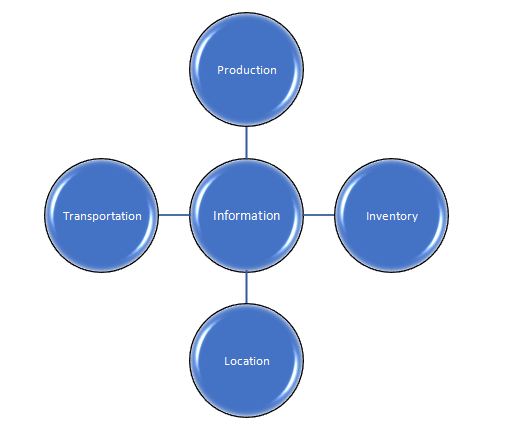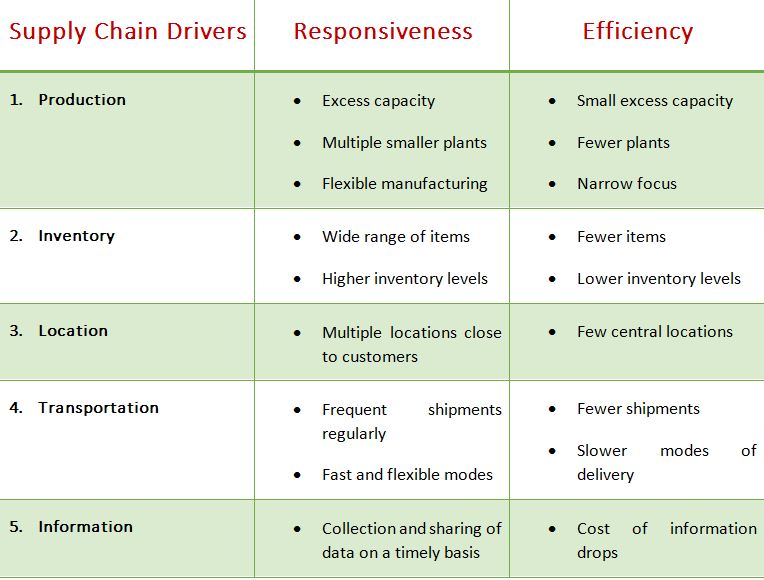Global Supply Chain Development Workshop 7 “GSC Technology”
Executive Summary Video
The Appleton Greene Corporate Training Program (CTP) for Global Supply Chain Development (GSCD) is provided by Mr. Buck BS Certified Learning Provider (CLP). Program Specifications: Monthly cost USD$2,500.00; Monthly Workshops 6 hours; Monthly Support 4 hours; Program Duration 12 months; Program orders subject to ongoing availability.
If you would like to view the Client Information Hub (CIH) for this program, please Click Here
Learning Provider Profile
Mr Buck is an approved Senior Consultant at Appleton Greene and he has experience in management, production and globalization. He has achieved a Bachelor of Applied Science IET/MET in Concentration in Operations Management. He has industry experience within the following sectors: Biotechnology; Manufacturing; Aerospace; Logistics and Technology. He has had commercial experience within the following countries: China; United Kingdom; Ireland and United States of America, or more specifically within the following cities: Shanghai; London; Cork; Minneapolis MN and Chicago IL. His personal achievements include: founded a corporation in 1991 and sold it in 2018 for $400m; entrepreneur of the year Ernst & Young 1998; entrepreneur of the year Ernst & Young 2004; built global manufacturing infrastructure and lead acquisition of 16 companies. His service skills incorporate: strategic planning; leadership development; supply chain; executive mentoring and merger & acquisition.
MOST Analysis
Mission Statement
Technology helps an organization with enabling and sustaining new processes and capabilities necessary to execute the global supply chain strategy. Reviewing existing supply chain technologies and technology trends may trigger ideas about how to connect new technology capabilities with identified Customer requirements. Just keep in mind that the Customer requirements, not the technology, should drive the development of new supply chain capabilities. How effectively some of these technologies improve or even transform an organization’s supply chain greatly depends on how successful the organization is in hiring and retaining people who can understand and use them. Training and talent planning need to be therefore part of any technology strategy.
Objectives
01. Drivers of Technology in Supply Chain: departmental SWOT analysis; strategy research & development. Time Allocated: 1 Month
02. IT Implementation in Global SCM: departmental SWOT analysis; strategy research & development. Time Allocated: 1 Month
03. Key Drivers of digital supply chain: departmental SWOT analysis; strategy research & development. Time Allocated: 1 Month
04. Critical Analysis of Technology in Supply Chain; departmental SWOT analysis; strategy research & development. Time Allocated: 1 Month
05. The Role of Technology in Supply Chain; strategy research & development. Time Allocated: 1 Month
06. Technology Benchmarking: departmental SWOT analysis; strategy research & development. Time Allocated: 1 Month
07. Implementation of Technology in Supply Chain: departmental SWOT analysis; strategy research & development. 1 Month
08. Technology and Green Supply Chain Management: departmental SWOT analysis; strategy research & development. Time Allocated: 1 Month
09. Industry 4.0 and Global Supply Chain: departmental SWOT analysis; strategy research & development. Time Allocated: 1 Month
10. Linking Supply Chain Management and Blockchain Technology: departmental SWOT analysis; strategy research & development. Time Allocated: 1 Month
11. Information Technology in Business Process Reengineering: departmental SWOT analysis; strategy research & development. Time Allocated: 1 Month
12. Achieving Competitive Advantage Through Technology Enabled SCM Processes: departmental SWOT analysis; strategy research & development. Time Allocated: 1 Month
Strategies
01. Drivers of Technology in Supply Chain: Each individual department head to undertake departmental SWOT analysis; strategy research & development.
02. IT Implementation in Global SCM: Each individual department head to undertake departmental SWOT analysis; strategy research & development.
03. Key Drivers of digital supply chain; : Each individual department head to undertake departmental SWOT analysis; strategy research & development.
04. Critical Analysis of Technology in Supply Chain: Each individual department head to undertake departmental SWOT analysis; strategy research & development.
05. The Role of Technology in Supply Chain: Each individual department head to undertake departmental SWOT analysis; strategy research & development.
06. Technology Benchmarking: Each individual department head to undertake departmental SWOT analysis; strategy research & development.
07. Implementation of Technology in Supply Chain: Each individual department head to undertake departmental SWOT analysis; strategy research & development.
08. Technology and Green Supply Chain Management: Each individual department head to undertake departmental SWOT analysis; strategy research & development.
09. Industry 4.0 and Global Supply Chain: Each individual department head to undertake departmental SWOT analysis; strategy research & development.
10. Linking Supply Chain Management and Blockchain Technology: Each individual department head to undertake departmental SWOT analysis; strategy research & development.
11. Information Technology in Business Process Reengineering: Each individual department head to undertake departmental SWOT analysis; strategy research & development.
12. Achieving Competitive Advantage Through Technology Enabled SCM Processes: Each individual department head to undertake departmental SWOT analysis; strategy research & development.
Tasks
01. Create a task on your calendar, to be completed within the next month, in order to analyse Drivers of Technology in Supply Chain.
02. Create a task on your calendar, to be completed within the next month, in order to analyse IT Implementation in Global SCM.
03. Create a task on your calendar, to be completed within the next month, in order to analyse Key Drivers of digital supply chain.
04. Create a task on your calendar, to be completed within the next month, in order to analyse Critical Analysis of Technology in Supply Chain.
05. Create a task on your calendar, to be completed within the next month, in order to analyse The Role of Technology in Supply Chain.
06. Create a task on your calendar, to be completed within the next month, in order to analyse Technology Benchmarking.
07. Create a task on your calendar, to be completed within the next month, in order to analyse Implementation of Technology in Supply Chain.
08. Create a task on your calendar, to be completed within the next month, in order to analyse Technology and Green Supply Chain Management.
09. Create a task on your calendar, to be completed within the next month, in order to analyse Industry 4.0 and Global Supply Chain.
10. Create a task on your calendar, to be completed within the next month, in order to analyse Linking Supply Chain Management and Blockchain Technology.
11. Create a task on your calendar, to be completed within the next month, in order to analyse Information Technology in Business Process Reengineering.
12. Create a task on your calendar, to be completed within the next month, in order to analyse Achieving Competitive Advantage Through Technology Enabled SCM Processes.

Workshop Introduction

Introduction to Technology Supply Chain Management
Supply chain management is the department or division inside an organization tasked with managing processes and supplies through all stages of a business deliverable, product or project. Business manufactured goods follow a defined path through which they move from one stage to the next until they are ready to be delivered to the end customer. The logistics of supply chain deals with handing over finished goods to the customer and taking them from one place to another. Getting through these numerous stages of the delivery process requires expertise of the highest order, which is where supply chain management and solutions come into play. Every aspect of business today is managed to ensure the delivery of goods to the required stakeholders and customers in a manner that does not include any obstacles or hindrances in the way.
What Is Supply Chain Management?
Supply chain management can be described as the approaches used by managements to tackle a number of different and complicated approaches used to integrate the flow of finances, information and materials efficiently across the supply chain. These items are outsourced from a number of places across the chain and require coordination from manufacturers, suppliers, distributors, retailers and wholesalers. Items usually pass through a number of different hands, before they get to the final customer.
Supply chain management is hence tasked with integrating and coordinating the back and forth process that ensues due to the supply chain processes. The ultimate objective behind the management process is to improve the service standard for the customers, without increasing costs by many times. There are many pit stops made by organizations during the supply chain process. These stops start with the design and planning process, which needs to be monitored and executed in a controlled manner. Any issues that might arise in the project are identified in the design and planning process. This process significantly reduces problems and ensures an optimal service standard. Like many other operations and activities undertaken by businesses today, the supply chain didn’t fully form by itself but was influenced by other disciplines around the work culture. The supply chain management process is made of bits and pieces of systems engineering, industrial engineering, operations management, logistics management, marketing, information technology and procurement.
The field of SCM isn’t static at all, with recent updates and upgrades helping organizations grow and develop their operations by great extents. The recent incorporation of technology in supply chain has revolutionized the way organizations approach the management process, and how the supply chain is managed across the ranks.
The addition of technology to SCM processes can help companies distinguish their presence from that of their competitors. From our reasoning in the previous chapter, we do understand that organizations employing technology are more efficient and responsive than those that don’t.
Many Small and Medium Enterprises and other players in the global supply chain, however, find differences between the requirements of the customer supply chain and the tech capabilities they have. This inherent gap can lead to a drop in qualities, efficiencies and a lot more. While there are multiple levels of communication in a supply chain network, organizations should consider the integration of technology across all levels. All levels require the use of additional semantics and a common syntax so that data is interpreted ideally by all stakeholders.
The implementation of these IT systems may require heavy investments in data modeling, data protocols, knowledge base systems and data warehousing. Besides just the investment through money, organizations also need to be prepared for cultural changes that might occur as a result of these changes.

Use Case of Technology in Global SCM
The addition of technology in the global supply chain management process has brought about a number of changes to the process. These changes ultimately help businesses achieve substantial growth across SCM processes. Organizations today can practice more control over their supply chain processes than before. This control allows them to consistently improve their supply chain performance and keep performing for as long as they can.
These new technologies have opened the avenues for new opportunities, and the supply chain industry couldn’t be in a better place. We now have a number of exciting technologies around us, all with a number of proven benefits and advantages.
Data Collection and Information Management
It is clear now that Big Data and the advanced analytics involved in Industry 4.0 are capable of transforming a number of industries and their day-to-day functions. From entertainment to healthcare and manufacturing, data collection and information management practices can help improve a number of processes.
Companies are also gradually adopting big data practices and techniques in supply chain management. The use of information systems can help create a more seamless and flawless flow of operations when it comes to supply chain management specifically. Information is crucial to the performance of a supply chain as it gives managers and stakeholders the basis to make decisions. Information technology or IT consists of actionable tools used to gain awareness of surroundings. Information can assist in the following core functions of a supply chain:
Real-Time Data Sharing and Processing
One of the major challenges of a supply chain network is the ability to integrate information from multiple platforms into a data channel. Real-time sharing of important and strategic information is necessary for the growth and sustainability of a supply chain model. It is also vital to ensure the seamless flow of operations across the supply chain.
The sharing and processing of supply chain data is directly related to various environmental factors, customer demand, partner strategies and even the supply levels coming your way. Transparency is a major point of contention in a supply chain. There are numerous factors you need to analyze and agree on before approving or recommending them. For instance, when optimizing or implementing a new delivery route, you have to consider the time it will take to travel to and from each destination, the starting point of the route, the drop-off point where the route concludes, the timeline for certain events and even external factors such as traffic and weather.
It is necessary for businesses to use information in order to retain control over not just processes, but the goods themselves as well. Having transparency and full knowledge over the sourcing and transportation of goods can come in handy during all future events. Supply chain management data sharing and modeling can help you pull out defective items and track defect rates. This can save a number of headaches and improve your understanding of the situation.
Managing External Factors with Data
Continuing from where we left off in the previous section, seamless logistics can be achieved by dealing with all kinds of circumstances and situations that happen as a result of external factors that are outside your realm of control. For instance, the socio-cultural changes in a supplier’s country can not only destroy performance, but can also hinder your timelines. Furthermore, massive shifts in consumer demand for totally unrelated reasons can put your supply chain in a spot of bother, especially if you haven’t prepared for the negative demand curve.
Big data solutions can come in handy here, as they organize and prepare data related to all external factors as well. You can use the actionable insights generated by these systems to determine just how they impact your productivity and performance. Imagine a system here that can help the processing and building of predictive models for better supply chain management. Using this system, you can better manage social events of the future and reveal the outcomes they carry.
Inventory Planning and Optimization
Perhaps the biggest use case of big data and information sharing comes in the realm of order optimization and inventory planning. Across the supply chain, information sharing systems can propel you into planning, optimizing and forecasting your stock levels to meet the changing demands around you.
This process is more about maintaining automation than running manual checks on deliveries. Big data solutions can significantly enhance information sharing to help and facilitate the process of inventory information. This can help while ordering new items when and where they are needed, shipping out orders and dealing with supply processes.
Let us imagine a manufacturer who develops a product that takes more than five months to manufacture. A big data system will take everything from product manufacturing and demand into consideration before suggesting an appropriate timeline for next order placement. This allows processes and things to run optimally without any flaws or impediments.
Through the use of technology, organizations can initiate an order optimization process without any extensive delays. As soon as one batch of manufacturing is complete, materials for the next batch are to be made readily available. Limiting and completely eradicating the downtime between organizations ensures efficiency of the highest levels.
Enhanced Customer Satisfaction
The presence of real time information systems can also lead to more nuanced advancements in the way things operate within an organization and in a typical supply chain. While information sharing systems improve the efficiency of the supply chain in general, they also help improve customer experience as a whole. Customers feel more satisfaction and are able to perform better over time. Regardless of whether you are delivering orders to retailers or to the direct customer, the sharing of efficient information across your supply chain gives you the leverage to minimize any flaws and ensure the proper provision of services across the chain.

Supply Chain Integrated Software
Supply chain integration software is an interactive and expanded version of a traditional MRP or logistics system that enables the communication and collaboration between organizations and their supply chain stakeholders. An integrated software connection helps improve collaboration standards between suppliers and businesses, forecasts future trends with better precision and accuracy, reduces inventory wastages and shortens the product development cycle.
Integrated software operations are more often tailored to the specific needs of organizations operating in different industries. These organizations can use the tools within this network to run electronic data interchange and modules that can control and run numerous functions. The functions overseen by integrated software include warehousing, inventory control, purchasing and transportation/route setting.
While the customized settings do differ from industry to industry, the operation shares many similarities across the board. These similarities include:
• All integrated networks carry a supplier module that integrates and lists down the different layers.
• All integrated networks carry an operations module, which consists of inbound logistics, purchasing and manufacturing of goods.
• All integrated software operations carry a customer module, which includes the distribution of goods and services across multiple tiers of customers.
• Every integrated software operation carries a return channel for optimization in the handling and delivery of warranty, obsolete, trade-in and defective goods.
These systems are integrated on a function-by-function basis, enabling the optimization of results achieved by each process across the supply chain. Integrated software processes allow for better communication and optimization on a wider scale.

Product Design and Modeling Technologies
The design world is rapidly adapting to the intensifying time to market rates and the reduced times to start a product cycle. Industries are moving forward faster than ever, and organizations can suffer greatly due to the downtime it takes for them to introduce and model products.
Technological advancements such as CAD, CAM, computer-aided engineering, design for manufacturing, design for assembling, simulation systems and modeling systems have all significantly reduced the time it takes for product launch and introduction in a number of developed industries.
Computer integrated manufacturing systems take the vision and capabilities of CAD systems and use them in a CAM environment. This integration can now help businesses unify all the processes involved in manufacturing and generate positive results from them.

Modeling and Simulation
While CAD and CAM systems have been around for quite some time now, modeling and simulation systems are rather new and take the teachings and lessons of these systems forward to incorporate better design and processing. Led by innovation across the defense and aerospace industries and defined by almost 2 decades of manufacturing through CAD and CAM system, highly complex simulation and modeling capabilities are the need of the hour in manufacturing. The United States defense system has heavily invested in a new manufacturing system known as SBA or simulation-based acquisition. As per the system and its objective, all major weapons and arsenal would first be modeled before they are actually manufactured as finished goods. This reduces inventory loss, damages and errors in the manufacturing process. When fully implemented, SBA has the capacity to go beyond design and to model almost all aspects of a typical product life cycle. From the initial concept through to the recycling or disposal, the system will help find the sustainability and impact of products on the world.

Introducing a Culture of Change
A business culture is strategically a balance of two elements – people and technology. Even after the implementation of technology across the board, elements need to work together to set an appropriate business culture in an organization. Technologies do not work independently. Hence, an organization’s success is dependent on their management of people and the ability to create a workforce that can adapt to whatever technological transformation is thrown at them.
Great organizations with significant presence in the supply chain industry have genuinely realized that the greatest throttle in the mission to greatness in global supply chain is not a lack of technology, or competition, product or market situation; but the people that work for them. The people working in an organization form its core, and without their full cooperation and integration, every attempt to infuse technological change may fall flat on its face.
Changing business culture is similar to re-building an organization from the first brick onwards, which is why this can be an intimidating and tiring job. Supply chains looking to develop technologically and incorporate solutions often face resistance in the form of disgruntled employees who aren’t willing to accept this change.
Before we further analyze this resistance, let us first understand why exactly a digital culture is important for your organization and what can be done to harness it.
• A digital culture can assist in the digital transformation and bring better mental agility to a supply chain’s workflow. This change in perspective allows organizations to take charge of opportunities and enjoy better results.
• A digital culture promotes transparency and banishes hierarchy from the workplace. Every employee is engaged in the decision-making process and there is focus on both, inclusive and exclusive growth.
• A digital culture helps add efficiency to processes and improves the acumen workers have over recent technology and innovations in the market. Instead of shying away from change, employees come up with ways to add innovation to strategic processes.
• A digital culture can help boost employee capabilities and increase their average skill-sets. Employees learn how to work on challenging briefs with conviction and presence of mind. They also learn how to manage new innovation and tech updates.

Challenges in Minimizing the Resistance to Change in Culture
Challenging organizational culture and hierarchy can be tougher and more complex than you’d imagine. The challenges organizations potentially face here include:
Eradicating Traditional Company Culture
The biggest hurdle in the way of a digital culture is the presence of a traditional culture that is rigid and reluctant to budge. Traditional business cultures aren’t built on principles of flexibility and can prove to be averse to change. Employees have also become accustomed to the traditional culture and show no flexibility at all toward accepting updates and upgrades to the supply chain – even if it is for the betterment of the organization. In their mission to stick with old goals, employees lose sight of all that matters and the new goals that the business has set for itself. The leadership now has to take conclusive steps on how to gain acceptance for the change and how to mesh it within all nooks and corners of the workflow.
Infrastructural Costs
Incorporating a digital culture or transformation comes with its own costs. The process requires the implementation of a full-fledged infrastructure boosted through the presence of hybrid systems that can work together in compliance. The poky legacy systems and IT cells you have in your supply chain department can prove to be a hindrance in the overall processing and flows of this system. Eventually, when you do think of a wipe-off, the cost overruns can drain your business financially.
Limited Scalability and Resources
Having spent a significant amount of their budget on digital transformation, organizations do not have it in them to ensure scalability and utilization of resources in the digital culture. While in an ideal world, all supply chain businesses should allocate resources to cater to the challenges of a new culture, this happens very rarely. Often, organizations end up overrunning their budget and leave nothing for future complications.
Up Skilling Challenges
Once you have technological and advanced processes in place, you need to up-skill your workers and help them achieve the level of training and expertise required to work on and with these systems. Digital literacy is a massive roadblock today in the implementation of a broader digital transformation and an IT structure across the board. Even the processes associated with a typical digital transformation can be quite challenging to scale and grasp. Businesses have to come up with ways to spend heavily on training and mentorship programs so that employees don’t feel like they’ve been thrown under the bus.
Cultural resistance can be overcome by defining a vision and explaining it at all staff levels in the workplace. Additionally, an evaluation of the current culture can help you identify possible strengths that it possesses. Retain those strengths, so that employees aren’t completely handed over a transformed environment. Throw the junk of the previous culture away and retain the strengths after your evaluation. A separate management team to work effectively on evaluations and analyses of the process can also help minimize resistance to the implementation of technology in supply chain.

Importance of Technology in Business
Technology saves businesses today from investing and wasting a significant amount of time and effort that they would otherwise put into their business. This increased optimization enhances the security and efficiency of different business processes and allows organizations to operate in a smooth manner. The corporate world today cannot deny the benefits that technology offers to it. A majority of all tasks today are managed through the addition of technology. Technology has become a need for businesses today and is actively desired in the world of supply chain. Some of the reasons technology is a need today more than a want include:
Technology Improves Communication
Many companies and supply chains today rely on technology and other applications around them to not only improve collaboration, but to also enhance communication standards across the organization. Several tech aspects are considered by supply chain leaders before they implement technology in full. With new and improved communication technologies available to businesses today, the supply chain is more comprehensive and easier to manage than ever. Traditional methods of communication were centered on the processing of purchase orders and weren’t just slow, but were also costly to maintain in the long run. To take an example of a traditional communication model, the OEM would receive an order from a customer, which would then be entered into the materials requirements planning or MRP system. Based on forecasts from the MRP system, the OEM would send a separate PO forward to suppliers for procurement of material. Suppliers also follow the same protocols upon receiving this order and take their sweet time to get production started. With the current electronic communications technology on offer by IT systems, purchase orders and material requests can flow almost automatically and instantaneously throughout the supply chain system. The entire process is managed at virtually no cost. While the up-front investments required for running these systems can be significant, they reduce administrative and operational costs for a significant period to come. These systems also come with the capabilities of drastically reducing lead times and improving responsiveness.
Technology Improves Efficiency
Technology can significantly improve tech efficiency in the supply chain. Organizations can be a lot more progressive and efficient in their operations when they use technology in their supply chain processes. The current advancements in the world of applied sciences and robotics have helped businesses facilitate customers in the best manner possible. With the recent development of IT in supply chain management, the concepts of supply chain management and design have become even clearer. The complexity of global supply chain management has worked as a major driver toward the incorporation of online communication systems and other instances of technology in supply chain.
The internet has significantly enhanced the richness and efficiency of communications on offer to customers today. With instant messaging and communication on the cards, businesses can easily interact with each other and enhance the communication on offer. This change is based off an evolution in the supply chain toward the development and integration of online business communities. Supply chain management puts special emphasis on the long-term benefits and cooperation of all parties involved in the supply chain process. This benefit is reaped through information sharing of the highest order. The variables involved in order placement and delivery are better communicated through an elaborate and detailed supply chain methodology. A growing number of studies have been conducted on the impact of IT on supply chain management and the growing trend of inter organizational and inter supply chain relationships achieved as a result of superior supply chain management. Information technology appears to be of utmost importance during the spread of these collaborative relationships. The role of IT is hidden from none, as it significantly enhances and increases the information sharing and processing capabilities of stakeholders involved in the supply chain process.
Influencing Decision Making With Data
Data has long been an inaccessible commodity for silos inside a supply chain. Without any intentional negligence of their own, businesses can often end up creating silos between partners, suppliers, vendors and other entities throughout the value chain. Breaking down these silos and using data as a tool to connect and make decisions can help organizations move forward and extend the capabilities of their supply chain. Technologies like automated data collection and asset tracking provide business leaders with unprecedented visibility into both, business processes and the assets used for performing them. The data gathered across these processes can be shared across the board for mutual benefits. One of the greatest benefits expected as a result of the data revolution of today is greater visibility. Most businesses are unable to recognize problems and let them slip away without taking any concrete measures to stop the damage before it is too late. Greater visibility will also enable organizations to respond in a better way to increased demand and achieve more profitable and leaner operations through the creation of enough goods. Silos are unhealthy for the growth and development of a business, which is why there is an inherent drive for global supply chain players to utilize data as a means to break the ice and connect departments together.
Protection Against Disruptions
Disruptions are common across the supply chain model today. Many organizations are affected by disruptions in the chain and are found without a proper plan ready. Technology offers protection from the problems of disruptions in the chain. To efficiently plan and manage the production and distribution of goods, businesses require the external global environment around them to remain predictable and consistent. Consistency is the key to business growth here. Managers can only optimize and add efficiency to your operations when they are sure of what the tides offer to them. You can then optimize your operations for profit maximization. Predictability also includes the stability of demand and supply. Stability ensures that all processes run smoothly without major disruptions. These disruptions can derail progress if not managed effectively. Furthermore, global supply chain progress is heavily dependent on technology today. You need to know the specifics in technology and how they can aid you in improving your processes. By identifying and implementing possible sources of technology, you can successfully improve supply chain processes. As we will study further in this course, technology improves supply chain processes, which is something all businesses require on the logistics front.

Challenges in Implementing Technology
Every business, regardless of its size and structure, goes through a number of challenges when implementing technology across the board. With the changing technological sphere in the world of SCM, there is a constant pressure on organizations to keep up with a dynamic market. However, the implementation of new technology in either of the core processes does not come without its own set of challenges. While the competitive advantage of being technologically advanced does motivate you, there is also the challenge of implementation that you need to first surpass.
Certain challenges most organizations face here include:
Aligning Processes with Technology
Organizations need to view their digital transformation as a journey rather than a destination. Many organizations see the adoption of technology as a destination that will boost their productivity and standards without any additional effort from them. Adopting new technology is no easy feat, and you’re best served thinking of it as an arduous journey that will continue until all stakeholders and processes have been aligned together with the technology. Adopting new technology requires a strong vision and leadership skills. Leaders should be strong willed and should set accurate goals for the rest of the organization to follow. The technology you implement in your supply chain processes would require a human touch, which is why it is necessary to hone the skills of your support staff accordingly as well. New technologies should be incorporated into your current business processes in a manner that limits disruptions of all kinds and keeps them to a minimum. The focused implementation of technology can prove to be more effective and result oriented than just approaching the subject matter without any due background contemplation. Also remember to communicate the benefits of new technology to your team members and other stakeholders, so that they are just as excited about the prospects as you are.
Compatibility Issues with Legacy Systems
Fewer sectors are as excited about the prospects of enterprise technology as supply chain. The industry has long been berated for its inconsistency and lack of development, and technology now offers an avenue for it to escape this criticism. Most managers end up making the dreaded mistake of replacing all systems with new ones. They then start the implementation process from there onwards. As we have mentioned earlier, the process of implementing technology in your global supply chain process is a journey rather than a destination. You can’t view it as an overnight change, since it is a gradual process of updates. As a result of the slow and gradual nature of the process, business managers should try to boost their current systems. The digital revolution of today is all about tapping into external resources or solutions and augmenting your existing IT infrastructure with the resources and solutions you find elsewhere. This saves your internal team from a complete revamp and gives them an opportunity to focus on more strategic initiatives, while a third party can look after the challenges of migrating toward technology.
Minimizing Security Risks
The implementation of technology brings a set of risks with itself. These risks tend to be debilitating and while we do look at them in greater detail within this course, it is pertinent to mention the challenges businesses face in minimizing them. Regardless of whether a global supply chain decides to continue with legacy systems or incorporates a whole new set of processes and systems, it is necessary for the business to take calculated decisions and minimize security errors. For instance, a business shouldn’t hastily implement a cloud storage service to process information without thinking about critical factors such as data encryption and access control. All of these errors can prove to be criminal acts of negligence in the long run. Cyber security should always be a priority for organizations with a global supply chain. With a footprint expanding across the globe, the last thing the firm wants is a cyber attack. The implementation of technology in the global supply chain is no easy feat. An important tip you can follow here is to view the change as a journey rather than a destination.
Implementing Technology in Your Business
Technology implementation is dependent on a number of factors today. Supply chain managers need to be prepared for the challenges of IT implementation, and how they can deter the progress made by the organization. Supply chain businesses also need to streamline their processes in a way that sits well with everyone. Processes should be aligned and modeled in a disciplined manner. Such discipline and efficiency can only be incorporated in organizations through a high level of personalization and standardized procedures. All employees need to be trained in these procedures, so that they’re able to execute them in a sound manner without any errors. With the ever-changing market structure of today, it is important for organizations to be able to innovate and challenge the status quo around them. This can only be achieved through a change in the structure and discipline inside the organization. Gradual steps toward innovations should retain the stability and functioning of all current processes, while overcoming the minor hindrances in these operations. IT implementation inside the firm cannot only overcome this problem, but also give a reasonable solution to it. Currently, organizations with greater employee size and structure have incorporated IT programs in a more significant manner than other organizations that do not have such developed protocols and systems. When measured by the number of employees working in the firm, organizations with more employees were more likely to use information technology to communicate with employees and workers indoors and to also communicate with customers on the current order status and expected delivery. IT solutions have also been used by larger firms to manage customer service functions and to make interactions and engagement with customers easier to manage for all those involved.

Future of Technology in Supply Chain
While the supply chain management landscape has significantly changed over the past few years, it continues to develop even further with the passage of time. This rapid progression allows suppliers to operate and deal with clients in a more effective and efficient manner across the board. In some ways, the changes and recent developments we have seen in the supply chain can be credited to the effort for progression and the never-ending passion for innovation. As is necessary for all industries today, the knowledge of future supply chain technologies can help organizations streamline their future plans and enter the coming years in a planned manner as pioneers of the game, rather than as mere followers.
Some of the trends that organizations can expect in the nearby future include:
Technology Across Supply Chain Teams
The future of supply chain goes hand in hand with the development of technology. From enhanced collaboration between teams to better synergy across the supply chain, we can expect technology to improve communication and collaboration across teams.
Smarter Warehouses
This is something we study in grave detail within our course manual. Smart warehouses form the future of the supply chain and IoT is leading the way forward with gradual technological progressions. The use of IoT in the supply chain allows businesses to become a lot more profitable and goal-oriented than they currently are. Smarter tech solutions in the warehouse also allow businesses to implement futuristic solutions based on innovative ideas. These solutions help improve processes involved with the loading and off-loading of goods from suppliers. Warehouse solutions also make it easier to track inventory and manage any shortfall properly.
Customization in the Supply Chain
Technology will most definitely initiate the trend of customization across the supply chain. Customization in its true form can lead to great value in customers and can also help a supply chain reach broader corners of the world. Companies deal with a wide variety of customers, where each individual brings their own unique needs and demographics to the table. Customization in the supply chain can hence lead to better mapping and need fulfillment.
Better Supplier Relationships
Future tech solutions are bound to bring a massive improvement in the relationships most organizations enjoy with their suppliers. Suppliers are an integral part of the supply chain, which is why it is highly necessary for businesses to maintain decent relationships with them. Tech solutions can enhance collaboration with suppliers and can help businesses understand and work on their needs.
Integration of Supply Chain in Other Operations
The use of tech solutions in the supply chain will further optimize the contact between supply chains and other operations. Technology will stop the formation of silos and will ensure that everyone is on board before key supply chain decisions are taken. Additionally, from marketing to finance, procurement and administration – all departments will be part of the consultation and management procedure to improve supply chain standards.

Blockchain Technology as the Future of Supply Chains
Blockchain technology is the trending technology today and hosts the potential to disrupt and positively impact the supply chain in ways more than one. Blockchain technology is a set of distributed ledgers, built and shared across a network of peer-to-peer cells. A single blockchain contains a record of significant data, which is stored on a single block with a unique participant’s node. Each block on the chain corresponds to a unique time stamp record that verifies the creation and presence of the block. The time stamped record is secured via a public cryptography key. The blockchain centrally limits and eliminates the need for businesses and managers to work with a trusted central entity. As blocks come chained with their hash codes, all information present on the blockchain is considered immutable.
The blockchain can easily execute and finalize computation logic through the creation of smart contracts or chain codes. A smart contract is a trusted bit of information that is encrypted and installed on every node of the chain. Blocks in the chain are divided on the basis of permission-less or permissioned blockchains. The access rights for these chains are different. Both types of chains can either be private or accessible to the public, based on the owners of the infrastructure and the data sources. While permission-less blockchains are easily accessible by all people on the internet, permissioned blockchains are private and require users to register and be approved by a network administrator before they can access the files within.
While blockchain technology does enforce a substantial amount of transparency, users can still benefit from pseudonyms. The pseudonyms in transactions allow users to settle transactions between alphanumeric addresses exceeding 30 characters. While blockchain technology is confused with bitcoins and is known to be directly related to cryptocurrency, many users fail to see the other purposes it hosts. Blockchain technology is not restricted to the world of bitcoins, or any other asset for that matter. Users can secure both, their tangible and intangible assets, through the increased productivity and facilities on offer on the servers. Any asset that entails any value can easily be transferred onto and off the ledger. All such assets are digitally represented by the name of a ‘token’ on the blockchain ledger.
While blockchain is known to be a general-purpose technology with enhanced security and a productivity booster, many authors and researchers argue that it will change industrial organizations across the globe. Davidson et al even argued that blockchain hosts the potential to foster economic coordination and help collaboration.
Linking Supply Chain Management with Blockchain Technology
Blockchain technology provides a number of key features that can eventually enhance collaboration between all members of a supply chain. These features include:
1. Transparency
2. Validation
3. Automation
4. Tokenization
Transparency relates to the availability of information across the blockchain for all users of a certain chain. The shared ledger is aggregated from a number of different sources and can include all participants of the supply chain. All these participants come together to draft an excellent input of shared information.
Validation is achieved through consensus-based verification and the immutability of records. Information is validated across the supply chain and relevant action is taken to source from validated and verified information.
Automation comes into the picture through the ability of supply chain partners to execute smart contracts from the verified information present on the blockchain. The verified information is referenced automatically, and lasting contracts are created based on what’s entailed within these documents.
Tokenization Blockchain technology also allows tokenization through the creation of tokens that represent specific claims on valuable assets shared between all members of the blockchain. Based on all four of these key features offered by BCT, organizations are able to build and enhance the abilities of their supply chain.
Enhanced Supply Chain Visibility
Poor end to end visibility and transparency is one of the leading causes of inefficiencies in the supply chain. These inefficiencies, and a lack of proper communication, lead to what is popularly known as the bullwhip effect. Blockchain technology allows supply chain businesses to share real time information about the status and location of an object between two partners of the supply chain. The product could either be shipping between a supplier and manufacturer or in the process of being shipped by a manufacturer to a retailer. In any case, the use of blockchain technology can help businesses streamline their operations and maintain positive contact between each-other at all times.
With the extreme convenience of internet of things or IoT and sensor technology promised by AI, all measurable conditions such as the temperature and condition of the product can be tracked across all facets of the supply chain. The enhanced data security allows businesses to improve their data accuracy and to also collaborate with other stakeholders to find the best fit possible.
Supply Chain Integrity
Blockchain Technology or BCT allows businesses to track objects back to where they come from and unearth their origins. BCT gives all kinds of organizations the opportunity to go back in the supply chain through a ledger of immutable and transparent records to find the origin of all assets and materials in the manufacturing process.
The ability to track the origins of products back in time gives businesses an exciting opportunity to certify the authenticity of assets and the processes that were used on them during the manufacturing process. This entire process helps enforce the idea of responsible sourcing, during which supply chain managers and business owners are extremely careful of where they source their goods from. Additionally, sourcing and procurement managers would be even more wary of finding and preventing any fraudulent activities during the sourcing process. Applications centered on BCT can not only help track the origins of products during their time in the chain but can also go back in time to trace asset ownership after the sale has been made. This can come in handy to provide after sales services and also to ensure warranty. BCT enhances the integrity of a supply chain as well by confirming the validity and authenticity of documents and processes inside the chain. These legal clearances include clearances for freight by customs and other minor clearances that are often ignored by supply chains.
Supply Chain Orchestration
By combining the automation of smart contracts with the transparency and validation of BCT, businesses get to encounter and operate a highly orchestrated and managed supply chain that works on pre-specified principles and rules. This immensely helps increase the speed and eases the coordination of information and other corresponding decisions between partners involved in the supply chain. BCT and the impact AI has had on it allow businesses to work with as little downtime as possible. In the case of a machine failure, the machine can effectively order the given spare parts from a supplier, inform downstream parties in the process and request a maintenance service, all on its own. Obviously, these decisions are based on data and can be trusted just as much as the word of an experienced repairman.
Supply Chain Virtualization
Virtualization is a well-known and popular approach taken by supply chains in IT infrastructure and systems management. The virtualization approach helps improve the flexibility and utilization of all IT assets inside the organization, helping businesses achieve the most from the amount they’ve invested into their IT systems. Supply chains can tokenize the physical assets involved across the process and can maintain a list of technical equipment and inventories. Shifting the acquisition/sale process of IT assets to BCT has a number of positive benefits for businesses today. All orders should be issued in the form of tokens and should be circulated across the chain. The virtualization of IT assets would allow businesses to fully utilize all capital assets in the supply chain and help them monetize their returns. Virtualization also comes with the capability to increase the flexibility of a supply chain and reduce the risks in general.
Supply Chain Finance
The BCT comes as a natural fit when it comes to supporting financial interactions and transactions in a typical supply chain. The close tie BCT has enjoyed with cryptocurrencies makes it ideal for maintaining and upholding financial records. By incorporating blockchain technology in the financial management process of the supply chain, businesses can reach settlements on multi-tier transactions faster than before. Secondly, the records are clearly validated and tokenized on the blockchain. This allows and helps businesses reduce transaction costs and the financial costs they bear in full. Blockchain technology promises a lot of potential for supply chains over the globe and can well be the technological advancement of the future.

Challenges with Blockchain Implementation
Blockchain implementation does not come free of risk and carries a few challenges of its own. Some of these challenges and risks include:
Failure to Secure Support From Top Management
This is by far one of the most common problems faced by global supply chains today when they look to incorporate blockchain technology into their processes. Since supply chain processes have a serious impact on the objectives and finances of an organization, it is necessary for businesses to acquire sponsorship and leadership from the top management. C-level executives from the top management can run the value-chain, sponsor projects, drive enterprise-wide accountability, achieve cross-departmental and cross-functional commitment and also allocate proper resources to insure the successful implementation of technology. One tried and trusted solution here is to create an executive steering committee that ensures the perfect allocation of resources and ensures that all obstacles in the path to proper implementation are removed.
Wrong Process or Practice
Organizations need to get their homework done before they initiate the blockchain implementation process across the supply chain. Prior to the start of the implementation process, it is critical for companies to initiate and conduct research toward the right processes and methods. The new technology should be supported with the right processes. A successful way to approach the technology revamp is to talk with other businesses that have successfully applied the technology within their supply chains. Many supply chain providers have incorporated relevant operation management systems in their organizations and will be willing to tell you all about the processes you should and shouldn’t follow.
Inaccurate Information
Timely data and accurate information are responsible for the success of almost all supply chains. Supply chains succeed due to their ability to provide accurate information across the board for members to benefit and learn from. Many of the initial benefits that come with supply chain technology automation will be neutered through the presence of inaccurate and untimely data on your systems. Hence, before you integrate a new software process into your supply chain, you should ensure that the data related to that application is clean and structured in all possible ways.

Limiting Digital Waste Through Industry 4.0
Digital waste is a major cause of concern for businesses today. The presence of this waste across the supply chain can reduce efficiency and lead to other problems of a similar nature. Digital waste can easily be found across multiple supply chains today. To understand how digital waste limits the potential of technology in supply chain 4.0, let us first take a look at these sources of waste. Digital waste can be categorized into three classes, including:
Data Capturing and Management:
The data available to businesses today is often handled manually, and not updated in a regular manner. Data collection is also handled through a paper-based method centered on reducing costs and ensuring profitability. Data that isn’t updated regularly or not at all includes the master data collected on supplier lead times. This data, once entered, remains unchanged for a significant period of time. Based on these mundane and inconsistent data management techniques, businesses are unable to implement a decent strategy for acquiring and transmitting data. If the lead time of a supplier is continuously increasing, warnings should be sent to them in an automated manner. However, with the processes of today, the signal for increasing lead times will not be recognized and the supplier will keep delivering goods in their own sweet manner, without regards for the delays experienced in the cycle due to their negligence.
Integrated Process Optimization
Many companies today have implemented an integrated process for planning. This planning process works through silos and leverages information to achieve the best possible planning results. The use of digitalization for planning forecasts is often manually overwritten by planners in and around the optimization process. This holds especially true for parts moving at a high or medium speed.
Physical Process Execution
Assembly, warehousing, transport management and line replenishment today are based on gut feelings than results generated through the use of actual digital tools. Warehouse operations are managed through batches of one to two hours, reducing the efficiency of real-time allocation processes and the dynamic routing that comes along with them. Also, this limits the efficiency of opportunities coming through wearable items such as Google Glass. Supply chain 4.0 holds the ability to impact a number of areas in the supply chain management process. These digital wastes can be minimized through better management and a more strategic reliance on data generated through digital tools.

Transformation Into a Digital Supply Chain
Having studied the characteristics of all future supply chain trends, and the drivers taking us toward it, we finish this intro with a look at how organizations can digitally transform their supply chains. The transformation into a digital and more automated supply chain require both, the environment and capabilities. Capabilities regarding the digitization process should be embedded within the organization. They also require the targeted recruitment of specialized professionals. The second key enabler is implementation of a digital architecture across the organization. This suggests that while an IT landscape needs to be established, businesses need to set up a culture of innovation and digital dependency in their supply chain. Workers should be given organizational freedom and should also be given time to learn and understand the systems they’re working on. A culture of innovation, creativity and incubation is what will help organizations sow the seed of a fast, flexible and efficient future in Supply Chain 4.0.

Competitive Advantage Through a Technology Oriented Supply Chain
Information and Communication Technology systems offer a genuine opportunity for businesses to achieve competitive advantage, as it helps businesses share information across the supply chain with all partners. Information is one of the most important aspects in a global supply chain and when utilized properly, can help supply chains improve their efficiency and glean out any errors that are limiting progress. The data compiled and reworked through ICT systems can help in the generation of new revenue streams focused on new products and services. The data and its analysis ensure optimal flexibility and operational prowess. The data also helps guide managerial decisions and improves business processes not limited to the supply chain alone. The growing adoption of ICT systems and the collaboration they offer will surely enable supply chains to enhance their efficiency and to achieve competitive advantage through supply chain integrated software. Such software operation is primarily based on information generated from within the supply chain and helps provide a platform for all stakeholders to access that information and make informed decisions based on it.

Executive Summary

Chapter 1: Drivers of Technology in Global Supply Chain
Traditional supply chains are being challenged by the geo-political and socioeconomic developments around us today. From the development of economic activities oriented to the needs of different countries and economies, to the globalization of services, uni-polar global order, economic liberalization and hefty advancements in the transportation and communication technology around us, the supply chain around us is changing. These changes have resulted in a need for businesses to not only upgrade their existing services and standards of the supply chain, but to also get their act together and ensure optimal delivery of goods to customers in reduced lead times.
Global supply chain has for ages been managed through effective sourcing of goods and resources. Organizations source their raw materials production, sales and marketing and research and development activities in geographically distant locations, from indigenous firms, local to the area. However, efficiency is often compromised in this process, which has led global players to optimizing the efficiencies and cost effectiveness of their SCM functions. Such organizational focus and effort into optimizing the efficiencies of the supply chain has led to constant progress in technology. Modern firms are prioritizing the importance of supply chain processes and are using technology to complete roles that are otherwise hard for organizations to manage.
This chapter will look at some of these supply chain management technologies and discuss the drivers motivating this change forward. By the end of it you should be able to recognize and understand the importance of separate drivers in supply chain processes and how they impact it.
Starting with an Introduction to Technology in SCM
According to findings from recent studies, technology has amalgamated with the global supply chain process in a gradual manner. The transformation isn’t yet complete, but we’re slowly and gradually edging towards it. The initiation of this wave of technology in supply chain started with actions like computerized tracking, electronic invoicing, and automated notifications, before moving on to a number of diverse applications across industries. The incorporation of new and advanced technologies in SCM is driven by a number of diverse forces. We will look at these drivers in greater detail within the rest of the chapter, but to name a few, greater demand for efficiency, intensification of competition and increasing customer expectations are some of the reasons motivating this change.
It is also necessary to appreciate the role contemporary technology has played in improving supply chain performance. Contemporary technology comes with extensive capabilities with regards to correction of mistakes, increase in efficiency and the assurance of better modifications. With the growing technological influence of today, almost each and every facet of a supply chain can be concurrently managed and improved through the automated notification systems present inside. Numerous trends and technologies are also impacting supply chain operations, not limited to production, distribution, retail and services. These trends include:
1. The need for comprehensive connectivity across the board.
2. Speech recognition for better services and enhancement of operations.
3. Integration of Voice and GPS communication into the rugged computers of today.
4. Digital imaging services.
5. Portable printing on the go.
6. Bar coding advances and improvements.
7. Wireless device security for remote operations.
8. And better remote management.
As the supply chain becomes global and remote, it is highly necessary that organizations come up with ways to improve the monitoring of key processes and kick out all minor knick knacks. Software operations and cloud computing have also significantly improved material and product tracking across the board. These tracking measures ensure that real time updates are available to managers and other stakeholders. Real time updates could either come from another corner of the world or through a related source. Many retailers and supply chain stakeholders have incorporated technology within their processes to good effect. It is also important to appreciate how the introduction of newer and more advanced technologies has resulted in major alterations within the conduct of SCM functions. Warehouse management is one such function that has drastically improved with time and is now more efficient than it ever was.
Mention of Drivers Influencing the Tech Revolution
Almost all supply chain capabilities are honed through the decisions taken with regards to the five important supply chain drivers. Each of these drivers comes with specific capabilities to develop either efficiency or responsiveness, based on the business objectives of the company. As we study how a supply chain works, we come across certain demands that it faces and the capabilities that it needs to become successful. The drivers discussed in the chapter include:
Production
Production is one of the drivers changing supply chain trends and technology. The production of goods is by far one of the most primary factors influencing the success of a supply chain. Companies can extensively alter production methods to incorporate new techniques and technologies into the process.
Inventory
Organizations looking to achieve a responsive supply chain stack up on inventory, including raw materials and work in process goods, across different facilities located close to their customers. The excess inventory is then used as a buffer for ensuring optimal production and delivery to the relevant stakeholders. Efficiency in inventory management can be achieved by reducing inventory levels, especially of products and items that do not sell as easily. The extra stock you hold comes with a number of costs of its own. Holding excess stock isn’t cheap as you need to invest heavily in storage and maintenance of the stock. All damages suffered during this period will haunt you in the long run.
Location
Responsiveness can be achieved by buying prime land close to the customers, for factory operations. This prime land, however, will cost a lot more than what it would cost you to centralize your production around the outskirts. Centralizing your production to a centralized location, again, might achieve efficiency through cost savings, but will harm you through reduced responsiveness and transportation costs and damages. The need to add responsiveness to the already efficient process of a centralized factory location is what drives technology adoption in the workplace. Organizations want to be connected at all hours, so that they can monitor transportation and also ensure the minimization of damages in transit. Technology ensures that goods are monitored, schedules are followed and damages minimized. This will lead us to the next factor of transportation.
Transportation
Transportation is another important factor driving the adoption of technology in supply chain processes. Transportation of goods is necessary for a fast and flexible customer experience, where customer value is ensured and the products you manufacture are made available in time.
Information
Much like money, information is developing as a very useful commodity in this age of data. With our dependence on technology, information is what you feed into AI and Big Data systems. Take predictive maintenance for instance. This AI run program gathers and analyzes information from production machines in your factory, from transportation trucks and machines in the transportation process and uses the information to decide the appropriate time and requirement for maintenance. So, instead of machines shutting down over time and leading to significant downtime, the information provided by these machines is utilized by an AI machine to generate specific output on when predictive maintenance is required.

Chapter 2: IT Implementation in Global Supply Chain Management
The addition of technology to SCM processes can help companies distinguish their presence from that of their competitors. From our reasoning in the previous chapter, you will now understand that organizations employing technology are more efficient and responsive than others that don’t. Many Small and Medium Enterprises and other players in the global supply chain find differences between the requirements of the customer supply chain and the tech capabilities they have. This inherent gap can lead to drop in qualities, efficiencies and a lot more.
A Brief Look at Current IT Communication Resources
The internet definitely is one of the most substantial tools for enabling substantial and gradual improvements across the supply chain. Perhaps the biggest benefit of the internet today is easy communication across borders. The internet offers all SMEs an opportunity to exchange information securely and easily in their role as manufacturers, suppliers and even customers. The communication model offered by the internet has saved businesses and supply chain stakeholders 18 percent to 45 percent of their total costs. These costs are saved through the means of faster order placement, reduced transactional errors, more accurate pricing and the faster delivery of goods to concerned parties. The implementation of IT systems may require heavy investments in data modeling, data protocols, knowledge base systems and data warehousing. Besides just the investment through money, organizations also need to be prepared for cultural changes that might occur as a result of these changes.
Our Take at Information Management in the Digital Age
It is necessary for businesses to use information in order to retain control over not just processes, but the goods themselves as well. Having transparency and full knowledge over the sourcing and transportation of goods can come in handy during all future events. Supply chain management data sharing and modeling can help you pull out defective items and track defect rates. This can save a number of headaches and improve your understanding of the situation. Information is crucial to the performance of a supply chain as it gives managers and stakeholders the basis to make decisions. Information technology or IT consists of actionable tools used to gain awareness of the surroundings. According to our analytics and studies, information can assist in the following core functions of a supply chain:
Real-Time Data Sharing and Processing
The sharing and processing of supply chain data is directly related to various environmental factors, customer demand, partner strategies and even the supply levels coming your way. Transparency is a major point of contention in a supply chain. There are numerous factors you need to analyze and agree on before approving or recommending them. For instance, when optimizing or implementing a new delivery route, you have to consider the time it will take to travel to and fro each destination, the starting point of the route, the drop-off point where the route concludes, the timeline for certain events and even external factors such as traffic and weather.
Managing External Factors with Data
Continuing from where we left off in the previous section, seamless logistics can be achieved by dealing with all kinds of circumstances and situations that happen as a result of external factors that are outside your realm of control. For instance, the socio-cultural changes in a supplier’s country can not only destroy performance but can also hinder your timelines. Furthermore, massive shifts in consumer demand for totally unrelated reasons can put your supply chain in a spot of bother, especially if you haven’t prepared for the negative demand curve. Big data solutions can come in handy here, as they organize and prepare data related to all external factors as well. You can use the actionable insights generated by these systems to determine just how they impact your productivity and performance.
Inventory Planning and Optimization
This process is more about maintaining automation than running manual checks on deliveries. Big data solutions can significantly enhance information sharing to help and facilitate the process of inventory information. This can help while ordering new items when and where they are needed, shipping out orders and dealing with supply processes. Let us imagine a manufacturer who develops a product that takes more than five months to manufacture. A big data system will take everything from product manufacturing and demand into consideration before suggesting an appropriate timeline for next order placement. This allows processes and things to run optimally without any flaws or impediments.
Enhanced Customer Satisfaction
The presence of real time information systems can also lead to more nuanced advancements in the way things operate within an organization and in a typical supply chain. While information sharing systems improve the efficiency of the supply chain in general, they also help improve the customer experience as a whole. Customers feel more satisfaction and are able to perform better over time.

Chapter 3: Drivers of the Digital Supply Chain
Researchers recently worked on a study including over 337 executives from retail organizations and global manufacturing firms from over 20 countries across North America and Europe. The research was meant to find out the impact of digital disruption across supply chain processes. The impact was considered in both, present and future scenarios. The survey found that more than 50 percent of all executives consider digital transformation to be important. This number goes up to a whopping 75 percent when it comes to executives that think this transformation is at least ‘important’ for the supply chain sector. Although a comfortable majority thinks of the supply chain as important, more than 30 percent of all executives believed they were unhappy or dissatisfied with the progress they had made toward accepting or embracing the digital change.
The primary factor behind this ubiquitous dissatisfaction was similar for many businesses, as they cited the failure to use and identify drivers influencing this change. Many of these executives do envision tremendous growth over the coming 5 to 10 years, but that is also dependent on their understanding of the process. From the findings of this survey and a general assessment of the supply chain market today, we can tell that organizations face complications with regards to the implementation of digital technology. The drivers for a digital supply chain are unknown and the trends motivating these factors forward have escaped many of these stakeholders.
A Study of All Key Drivers
Adoption of Cloud Based Software
Supply chains can achieve cloud adoption in its truest form by engaging in the practice of using remote cloud servers on the Internet to store, process and manage critical data on a real-time basis. Hybrid cloud computing is a recent innovation in the world of cloud and is the go-to option for supply chain providers.
As cloud adoption and the benefits that it offers grow, global supply chain players are coming out in numbers to implement the change and incorporate it within their culture.
Supply chain executives can lead their transition to the cloud with an eye on the following critical steps:
1. Assessment: All IT decision makers and executives need to assess the challenges and opportunities of moving to the cloud. In addition to taking notes and inspiration from popular vendors/business leaders, organizations should consider the financial challenges of the process.
2. Planning: Once organizations perform their research and run their assessment they have to move toward the more complex task of employing a cloud computing strategy in their market. This is where an organization should decide between public, private and hybrid clouds.
3. Adoption: The adoption phase is the trickiest of the lot and deals with risk mitigation and performance enhancement strategies. Managers should develop an enhanced understanding of their data stores, servers and software for future scalability and reiteration of the strategy.
4. Optimization: IT departments should meet regularly with executive teams to form and sustain a long-term strategy. The new and improved solutions created here can go a long way in optimizing performance.
Influencing Decision Making With Data
One of the greatest benefits expected as a result of the data revolution of today is greater visibility. Most businesses are unable to recognize problems and let them slip away without taking any concrete measures to stop the damage before it is too late. Greater visibility will also enable organizations to respond in a better way to increased demand and achieve more profitable and leaner operations through the creation of enough goods.
Agility and Flexibility
Organizations today have to choose between the ideal outcomes of efficiency and responsiveness. An agile and flexible supply chain allows businesses to get the best of both worlds and enjoy enhanced responsiveness, without losing out on efficiency. In fact, the digital supply chain is a reality today because of the growing agility and flexibility shown by organizations in day-to-day operations – flexibility that they didn’t show a few years back.
Revamping Business Processes
One of the primary pain points for executives in the supply chain industry today is the growing trend of new-comers relying on technology for success. New entrants in the market aren’t afraid of trying out different technologies and realms to further their cause. This acts as a threat for current market leaders, who have to revamp processes and think of alternatives to counter this growing impact.

Chapter 4: Critical Analysis of Technology in Supply Chain
With the recent development of IT in supply chain management, the concepts of supply chain management and design have become even clearer. The complexity of global supply chain management has worked as a major driver toward the incorporation of online communication systems and other instances of technology in supply chain. The internet has significantly enhanced the richness and efficiency of communications on offer to customers today. With instant messaging and communication on the cards, businesses can easily interact with each other and enhance the communication on offer. This change is based off an evolution in the supply chain toward the development and integration of online business communities. Supply chain management puts special emphasis on the long-term benefits and cooperation of all parties involved in the supply chain process. This benefit is reaped through information sharing of the highest order. The variables involved in order placement and delivery are better communicated through an elaborate and detailed supply chain methodology.
Studying Impact of IT on Procurement and Purchasing
The recent trends and usage patterns suggest that IT has significantly been utilized in a number of procurement applications, including communications with vendors, checking price quotes given by vendors and for making purchases from vendor catalogs. The options provided in a catalog and the pricing quotes given to a supply chain provider can be optimized through the incorporation and addition of technology to the process. Negotiations held with vendors have also improved as a result of IT in procurement and purchasing. Where face-to-face negotiations were the norm back in the day, they have now been replaced with far more efficient and cost-effective options for organizations to place their bets on.
Studying Impact of IT on Operations
One of the most popular and strategic uses of information technology in operations and inventory management comes in the communication of stock-outs and diminishing stock levels to vendors by firms. Additionally, information technology has also revolutionized and improved the way stock-outs are communicated to customers by these firms. Both parties need to be provided essential information related to the stock-outs, so that appropriate action can be taken at the right ends. With the right communication methods and the appropriate use of technology in this department, organizations can minimize the downtime caused by a stock-out.
Studying Impact of IT on Logistics
Based on user experience, the monitoring and regulation of pickups by carriers at regional distribution centers is the most significant area of implementation for IT in the transport sector. The use of technology here is also of particular interest for businesses, as it helps generate data on the efficiency and reliability of the carrier service being used currently. Tracking shipments from regional depots to customers is a primary responsibility of managers in the supply chain process, and if this task is being handed over to carrier services, proper resources need to be in place to check efficiency, delivery times and consistency.
Studying Impact of IT on Vendor Relationships
Trust is a major factor in any organizational relationship fostered by a player in the supply chain industry. Trust plays a key role, and IT services and programs help facilitate that trust and improve it to offer a wide range of amazing benefits. Trust exists between two parties, when both of them believe in the reliability of the other and are sure that their performance and order strategy is consistent and can be trusted. Management literature has focused significantly on the presence of trust in supply chain operations, and how technology has further boosted that. The need for trust and cooperation between key stakeholders in the supply chain industry is an essential element of these relationships and the technology used between vendors and clients.
Studying Impact of IT on Firms
Organizations with bigger employee size and structure have incorporated IT programs in a more significant manner than other organizations that do not have such developed protocols and systems. When measured by the number of employees working in the firm, organizations with more employees were more likely to use information technology for communicating with employees and workers indoors and to also communicate with customers on the current order status and expected delivery. IT solutions have also been used by larger firms to manage customer service functions and to make interactions and engagement with customers easy to manage for all those involved.

Chapter 5: The Role of Futuristic Applications in Supply Chain
Supply chain managers will remember the failures that have resulted through tech implementation. Some technological advances in the world of supply chain have created a lot more problems than they have solved for supply chain managers. MRP or manufacturing resource planning systems along with RFID radio-frequency identification tags are the two most successful use cases of technology in supply chain, but even these advancements came with their own demons. For instance, MRP systems promised a world of fully automated solutions and scheduling to supply chain managers. Scheduling is one of the more complex tasks of supply chain management, and all forms of automation in this regard were welcomed with open arms. Where customers did benefit from MRP systems, they also had to deal with the inflexible approach they came with out of the box. These systems never really adjusted to volatilities and uncertainties in the real world, where suppliers fail to deliver, customers change their mind at the last moment and machines break down all of a sudden. Even with the high influx of supply chain technologies, there are areas where innovations are ripe and can benefit the entire global supply chain as a whole:
Robotics
Innovation from the world of manufacturing is spilling over to the supply chain industry as well, as robotics solutions hold the momentum to disrupt warehouse operations. While manufacturers of transportation machineries such as forklift trucks have added automation and labor-less handling procedures to their products, robotics companies are also looking for ways to add labor to the process. Automation systems today are more capable than they ever were. Most fast picking warehouse systems have the capabilities to pick over 1,000 to 2,400 products per hour. The advanced vision technology within modern robotics also allows machines to pick up products from disoriented positions. While these robots are in place with mail-order picking and pharmaceutical industries, research is still underway to help these machines reach near-human levels of adaptability and performance.
Better Visibility
End-to-end visibility through real time software operations and analytics allows supply chain manufacturers to build and maintain their business processes. Custom software solutions allow organizations to track each and every part of the supply chain and also give them a chance to minimize any delays and downtimes they possibly have during this process. Such end-to-end apps can also help with stock management as they prepare businesses for possible stock-outs and prepare replenishment requests based on what works best for them and the suppliers.
On-Demand Delivery
Ride-hailing systems are strategically changing the way organizations approach and discuss last-minute deliveries. Customers in many sectors expect same-day delivery and service and living up to these expectations is only made possible through this technology. These systems work on accurate software configurations behind the scenes and act as a medium of transportation efficiency across businesses. Supply chain technologies are in an exciting phase today and there is a lot being said and done about the potential these technologies currently host. Companies need to sit down and discuss the right solutions with stakeholders. Each solution solves a relevant business problem, and the gravity of the problem sets the budget you spend on finishing or mitigating it. The solutions mentioned in this chapter form the future of supply chain technology and will be in greater demand over the time to come.

Chapter 6: Technology Benchmarking in Supply Chain
In previous coursework, we have studied SCOR as one of the best methods for benchmarking in the supply chain. The Supply Chains Operation Reference or SCOR is the first industrial framework in place for improving and evaluating enterprise-wide management and performance through the use of measurement and comparison tools. The process provides a standard path, definitions, terminology and other metrics that help organizations measure their performance and benchmark or compare it against that of other providers. The results of this process can eventually help the business grow exponentially and make real progress. The metrics used in benchmarking include key areas such as delivery performance, production flexibility, cash-to-cash cycle time and order fulfillment. Benchmarking processes have helped organizations identify their financial and operating advantages over competitors in their respective industry or group. Following the basic principles of benchmarking and the process of recording information in a coherent and cohesive manner, organizations today can also record their tech advancements. Top performers in tech benchmarking have a clear strategy as far as IT incorporation is concerned and have closely aligned their tech advancements and business objectives with customer requirements from major clients.
Studying the Communicative Benchmarking Standards in a Supply Chain
In this chapter we start by studying the communicative benchmarking standards to be followed in a supply chain. Technology has assisted businesses in improving the quality of services they offer and helped them become more competitive over time. The collaboration now involved across supply chains has laid down the building blocks for a brighter future. The development of a collaborative benchmarking tool is still pretty much in its nascent stage. One of the reasons behind this inability of businesses to adapt to the changing trends is the lack of a robust and authentic performance measurement system for collaboration. A measurement system would help all partners involved in a supply chain understand the changes that are required in the collaboration process and the gravity of these changes in line with the business objectives of the organization. By identifying areas that need improvement, organizations can help set a significant standard of collaboration across the board.
There have been multiple studies that propose and promote the concept of collaborative benchmarking in the supply chain. These studies (Poirier, 1992; Polese, 2002) focus on and acknowledge the importance of implementing best practices across the board. Perhaps the most critical issue in building a collaborative relationship is the commitment shown by all participating members toward accelerating improvements that contribute to individual and company gains. This commitment can vary from partner to partner based on a number of influencing factors. Previous research on this subject matter has proven that the commitment to improve and collaborate effectively in a supply chain network is based on the performance metrics selected for growth and development. Performance metrics encourage collaboration in participating stakeholders and give them a chance to be involved in a more thorough and accurate manner.
Identifying the Enablers of Collaborative Benchmarking
Collaborative benchmarking achieved through the implementation of IT needs to go beyond the metrical benchmarking of critical drive performance metrics and process enablers. Through this way, the performance gap analysis will eventually help provide real time insights and foundations to contribute toward the positive enhancement of the supply chain. All members of the supply chain should know how to tie performance metrics with collaborative enablers. The clear link between enablers and performance metrics gives supply chains a chance to eliminate and cut down on gaps. Three collaborative enablers can come in handy here, as they reflect the intensity of operational interfaces among all the participating members. These enablers include information sharing, incentive alignment and decision synchronization. Collaborative enablers typically drive and dictate the amount of action it takes to steer the performance of a supply chain forward. Even a typical collaborative performance system or CPS requires the assistance of collaborative enablers to help the improvement process.
Enabling Collaboration Through Synchronized Decisions
Decision synchronization can be judged and measured through the response of chain members toward the task of fulfilling customer demand and enhancing the profitability of the supply chain. Decision support systems and virtual discussion forums can enhance the efficiency of synchronization of decisions across the firm. The use of an alert system can also generate real-time output and helps generate mutual interest.
Enabling Collaboration Through Information Sharing
Information sharing standards ensure that all participants in the supply chain are able to utilize the information given to them and are able to use that information to reduce cycle times and increase growth. Information sharing can improve the fulfillment of customer demand, as proper information sharing and collaboration can allow businesses to re-stock shelves at a retailer’s outlet within no time. Additionally, delivery lead time can also be reduced through proper information sharing, as businesses are in touch with each other throughout the process and are communicating the product requirements. Information sharing also generally assists with the decision making process. The availability of integral information can help businesses make informed decisions related to the business. Demand and inventory visibility can help completely eliminate stock-outs and also alert organizations to reduce manufacturing speed for products that aren’t selling.
Enabling Collaboration by Aligning Incentives With Objectives
Incentive alignment refers to the process of sharing benefits, risks and costs among all members of a supply chain. This collaboration scheme enhances communication and motivates all members to act consistently with the mutual objectives on offer. Private information is also shared across the supply chain here, as primary stakeholders realize what is at stake. The incentive alignment program places incentive and perk schemes such as pay-for-performance on the same pedestal for mutual result generation across the supply chain.
All three enablers are discussed in greater detail within this chapter.

Chapter 7: Risks and Challenges of Integrating Supply Chain Management Software
Multiple types of supply chain management tools exist in the market today that come with their own features and applications. These tools assist in a number of features, and also come with certain challenges that should be tackled before proper implementation across the board. The features offered by SCM software operations include:
Order Management:
Software solutions can help with automating the order processing and management process. For instance, these solutions generate and track all purchase orders, schedule supplier deliveries and set the required pricing based on product configurations.
Inventory Management:
Supply chain tech solutions help with inventory management, as they track and manage the availability of raw materials for manufacturing. The inventory management solutions provided here can also come in handy with barcode integration, asset management and future price forecasting.
Logistics and Shipment Monitoring:
Coordination across transportation channels is necessary for businesses today, and supply chain software solutions can help with that. The enhanced monitoring standard can boost customer satisfaction and enhance delivery performance. Warehouse management is also included here.
Forecasting:
Forecasting demand, anticipating customers and planning all production and procurement processes accordingly is the need of the hour in future-oriented supply chains today. Efficient forecasting can limit the need to store excess goods or meet indefinite downtimes due to stock-outs.
Return Management:
Return management works for the inspection and handling of faulty or damaged goods and can come in handy for processing insurance claims and refunds.
Challenges in Software Implementation
Some of the challenges that most businesses face during global supply chain management software integration include:
Limited or No Cross-Functional Representation
Organizations should deploy a broad team empowered enough to make planning and implementation decisions on their own. The presence of all teams on board will ensure successful supply chain deployment and routine improvements over time. This team should comprise of the ultimate stakeholders who use the new technology and the secondary users that will benefit through the flow and information processing.
Inaccurate Information
Timely data and accurate information are responsible for the success of almost all supply chains. Supply chains succeed due to their ability to provide accurate information across the board for members to benefit and learn from. Many of the initial benefits that come with supply chain technology automation will be neutered through the presence of inaccurate and untimely data on your systems. Hence, before you integrate a new software process into your supply chain, you should ensure that the data related to that application is clean and structured in all possible ways.
Securing Support From Top Management
C-level executives from the top management can run the value-chain, sponsor projects, drive enterprise-wide accountability, achieve cross-departmental and cross-functional commitment and also allocate proper resources to insure the successful implementation of technology. One tried and trusted solution here is to create an executive steering committee than ensures the perfect allocation of resources and ensures that all obstacles in the path to proper implementation are removed. These challenges and others discussed in the manual can often restrict the path to success for an organization.

Chapter 8: Technology and Green Supply Chain Management
The growing concern in the global market for green issues, and the debilitating impact that traditional measures have on the ecosystem and the environment around us, have led to the widespread implementation of green supply chain and the rise in technologies that approach this subject matter. Executives today view supply chain measures in a green light and are looking to cut down on measures that can impact or reduce the ability of certain natural processes in our ecosystem. While big names are utilizing these opportunities to go green, many other companies are still unaware of the cost savings that can be guaranteed as a result of picking up sustainable or green supply chain measures. In the process of reducing their environmental impact on the surroundings, organizations can also cut down on costs and enter a win-win scenario of sorts.
Despite the growing public focus, the environmental benefits on offer and the cost savings that businesses can benefit from, many supply chain executives aren’t prioritizing the move toward a greener supply chain with more sustainable practices that are best for all parties concerned. It generally appears that many supply chain executives are still unaware that improving the environmental performance of their businesses usually means lower waste disposal costs and training costs. These measures can also reduce material costs and put an end to environmental-permitting fees and standards. Hopes and predictions surrounding the green supply chain estimate that this curve will only go up as businesses and supply chain executives realize the benefits on offer.
Going Green With Supply Chain Technology
Circular Supply Chain
The circular supply chain is another recent innovation achieved as a result of efforts to streamline the supply chain process. The circular supply chain process usually takes waste materials from returned goods and turns them into solid goods that can then be resold to clients. The 3 Rs – reduce, reuse, recycle – come in handy here as they provide a way for the circular supply chain to develop and become common. The circular supply chain does not only reduce the costs and efforts of a business, but also saves businesses the time it takes to dispose returned goods.
No Paper-Trail
At their very basic level, almost all major supply chain technologies today are helping the supply chain move away from the traditional operating supply chains of the digital age. This allows supply chains to say goodbye to the physical paper-trail associated with shipments. All tracks and measures are maintained online, which is why organizations do not feel the need to maintain a complete set of paper records. Besides saving up on paper, these digitized processes also save time and effort. Maintaining records on computers through automatic programs and easily inputting procedures is a lot more convenient for businesses than it is to maintain records on paper.
We discuss a number of other ways for global supply chains to go green in our manual.

Chapter 9: Industry 4.0 and Global Supply Chain
The introduction of industry 4.0 into the world of manufacturing has had a number of impacts on the global supply chain and logistics network. Industry 4.0 has shown a lot of promise toward enhancing collaboration between manufacturers, suppliers, retailers and customers. This collaboration between all parties of the supply chain is strategically important to increase the transparency of products from when they’re manufactured to when they’re placed on a shelf to be sold. Moreover, due to the additional introduction of digitalization and the ubiquitous automation of processes, we welcome a whole new supply chain management (SCM) structure today. The new technology does come with a number of opportunities and a few threats to the supply chain. In this chapter we present a preliminary analysis of the impact Industry 4.0 will have on supply chain management and look to delve deep into what the new technological advancements contain.
Computers were first introduced to the world through industry 3.0. When the third industrial revolution transpired, computers were considered to be a disruptive addition to the industries of yesteryear. With industry 4.0 upon us, businesses are preparing themselves for an enhanced environment of communication and collaboration, where they can buckle up and discuss ideas across the supply chain. These computers can generate real-time insights in the moment and work on them to generate output without any form of human input. This is a strategic improvement to what we have seen during Industry 3.0.
Smart factories form the core of Industry 4.0, as the revolution weaves its magic on different manufacturing processes to speed up the rate of products manufactured in a given time period. Industry 4.0 has become exceptionally useful for people today as a result of the support that smart machines and processes offer. Smart factories come with a number of smart machines that generate data in the moment. The reliance on data promises to make our factories even more efficient and less wasteful.
Creating a Better and Faster Supply Chain
Unlike popular belief, supply chain 4.0 is still pretty much work in progress. Industry 4.0 creates a massive disruption and forces organizations from across the globe to not only rethink, but also reconsider the way they’ve designed and continue to follow their supply chain. Several technologies, grouped under the banner of Industry 4.0, are altering the way organizations worked traditionally. On top of the technology available, customer expectations are also developing with time, and customers today require optimal delivery patterns without inefficiencies in the process. With rising expectations and the presence of tech assistance, the stage is ripe for supply chain providers to jump at the chance and implement strategic supply chain 4.0 networks in their processes. Digitization can bring about a change in the typical supply chain of today and allow businesses to have a supply chain that is built on the principles and highlights we have discussed in this chapter.
Studying All Drivers of Value for Supply Chain 4.0 Integration
Just like every other major revolution and infrastructure out there, there are a number of key value drivers propelling the implementation of supply chain 4.0 forward. All these drivers are highlighted in greater detail within this chapter.
Planning
Supply chain planning for the future will greatly benefit from the advanced analytics and big data planning of the future. The significance of supply chain 4.0 will be felt in the planning process through the use of closed loop planning and predictive analytics in demand planning.
Performance Management
Performance management systems can jump into the root causes of exceptions and compare them to other underlying indicators to leverage machine learning techniques and conduct big data analyses. The system will build countermeasures automatically to cover the root cause and to improve performance almost instantaneously.
Physical Flow of Goods
Logistics and transport of goods in the supply chain process will take huge steps forward through additive manufacturing, advanced analytics, better connectivity and enhanced automation of processes. For instance, when warehouses are fully automated, the supply chain will also see a rather drastic increase in the number of smart and autonomous vehicles used in the supply chain. The use of 3-D printing will also impact inventory management and warehousing strategies.
Other drivers have also been mentioned in the manual.

Chapter 10: Linking Supply Chain Management with Blockchain Technology
Fundamentally and accurately put, blockchain technology is a set of distributed ledgers, built and shared across a network of peer-to-peer cells. A single blockchain contains a record of significant data, which is stored on a single block with a unique participant’s node. Each block on the chain corresponds to a unique time stamp record that verifies the creation and presence of the block. The time stamp record is secured via a public cryptography key. The blockchain centrally limits and eliminates the need for businesses and managers to work with a trusted central entity. As blocks come chained with their hash codes, all information present on the blockchain is considered immutable. The blockchain can easily execute and finalize computation logic through the creation of smart contracts or chain codes. A smart contract is a trusted bit of information that is encrypted and installed on every node of the chain. Blocks in the chain are divided on the basis of permission-less or permissioned blockchains. The access rights for these chains are different. Both types of chains can either be private or accessible to the public, based on the owners of the infrastructure and the data sources. While permission-less blockchains are easily accessible by all people on the internet, permissioned blockchains are private and require users to register and be approved by a network administrator before they can access the files within.
Blockchain in Supply Chain
Blockchain technology provides a number of key features that can eventually enhance collaboration between all members of a supply chain. These features include:
Transparency – relates to the availability of information across the blockchain for all users of a certain chain. The shared ledger is aggregated from a number of different sources and can include all participants of the supply chain. All these participants come together to draft an excellent input of shared information.
Validation – is achieved through consensus-based verification and the immutability of records. Information is validated across the supply chain and relevant action is taken to source from validated and verified information.
Automation – comes into the picture through the ability of supply chain partners to execute smart contracts from the verified information present on the blockchain. The verified information is referenced automatically and lasting contracts are created based on what’s entailed within these documents.
TokenizationBlockchain technology also allows tokenization through the creation of tokens that represent specific claims on valuable assets shared between all members of the blockchain. Based on all four of these key features offered by BCT, organizations are able to build and enhance the abilities of their supply chain.
The BCT also comes as a natural fit when it comes to supporting financial interactions and transactions in a typical supply chain. The close tie BCT enjoys with cryptocurrencies makes it ideal to maintain and uphold financial records. By incorporating blockchain technology in the financial management process of the supply chain, businesses can reach settlements on multi-tier transactions faster than before. Secondly, the records are clearly validated and are tokenized on the blockchain. This allows and helps businesses reduce transaction costs and the financial costs they bear in full.

Chapter 11: Information Technology in Business Process Reengineering
A business process can be categorized as an activity or a collection of different purposes, which has a direct or an indirect impact on the service provided to a customer. Every manufacturing or non-manufacturing organization follows a list of core processes built-in their systems to provide customers an uninterrupted brand of quality. From manufacturing to order processing, bill payment, invoice generation and customer service, these processes don a number of roles to form the core operations of an organization. Business process reengineering is, hence, a practice focused on reworking or reengineering the core business processes followed within an organization. The activity is itself a fundamental and radical redesign of processes followed by the businesses since ages. The change brought forward by BPR is known to bring forward drastic and dramatic improvements in the quality of performance.
The incorporation of IT processes in BPR can help in the following ways:
• Information technology systems can help reduce the turnaround time it takes for the implementation and collaboration process to be managed. Manual approaches can waste a lot of time here.
• The chances of mistakes and errors are few, as the data generated through technology helps prepare flawless improvements and alternatives.
• Less chances of corruption.
• Less chances of fraud.
• More accuracy in the implemented solutions due to the precision of IT systems.
• More work done toward implementation in less time.
• Quick communication within the team and with other stakeholders including customers.
• Efficient process tracking and monitoring as a result of key IT tools.
We improve on this information to also study the key steps and features of BPR, which can assist organizations in getting the best possible results from the process.
Additionally, BPR requires commitment from top management. The top management should definitely be involved in the BPR process for a supply chain. Top management like CEO, COO and other C-level executives should make their efforts felt with commitment and dedication toward the reengineering efforts. Managers should dedicate their time and efforts to these reengineering efforts and send their input across all stages.
This input starts with the identification and analysis of current business processes. The top management should clearly identify different processes, and should also sit down with the team given the task to create a proper strategy for the work to be done. Once the need for reengineering is felt, the top management should also take center stage and choose a team for the process.

Chapter 12: Achieving Competitive Advantage Through Technology Enabled SCM Processes
In an era of enhanced globalization, there is never ending pressure on companies to become global and maintain their dominance through efficiency and collaboration. The objective of a global presence is not that simple and requires excellent work. Global competition is pushing organizations and their supply chains into a more efficient corner, where efficiency is the only thing that can pull them across the turbulent waters.
The global impact of supply chains and the endeavor to maintain their competitive advantage is what has compelled organizations into adopting ICTs. Businesses greatly benefit from ICT adoption, as it is commonly believed that the incorporation of technology in key supply chain processes makes the brand stand out owing to its global competitive edge. Agility in key business processes is one way for businesses to prosper and succeed in the rapidly changing global business atmosphere of today. To this end, information and communication technology solutions play an extremely important role in not only improving operational processes, but also introducing new products and services with low lead times and in guiding the decision-making process for supply chain managers and key executives.
Information technology solutions also offer small and medium enterprises an opportunity to operate at the same level of efficiency as some of their other competitors. The adoption of ICTs by small and medium enterprises holds the potential to achieve a significant change through rapid, efficient and reliable exchange of information on a large scale.
Competitive Advantage Through a Supply Chain Integrated Software
An integrated software connection helps improve collaboration standards between suppliers and businesses, forecasts future trends with better precision and accuracy, reduces inventory wastages and shortens the product development cycle. Supply chain integration software is an interactive and expanded version of a traditional MRP or logistics system that enables the communication and collaboration between organizations and their supply chain stakeholders. Integrated software operations are more often tailored to the specific needs of organizations operating in different industries. These organizations can use the tools within this network to run the electronic data interchange and modules that can control and run numerous functions. The functions overseen by integrated software include warehousing, inventory control, purchasing and transportation/route setting.

Curriculum
Supply Chain Technology – Workshop 7
- Part 1 Drivers of technology in supply chain
- Part 2 IT implementation in global SCM
- Part 3 Key drivers of digital supply chain
- Part 4 Critical analysis of technology in supply chain
- Part 5 The role of technology in supply chain
- Part 6 Technology benchmarking
- Part 7 Implementation of technology in supply chain
- Part 8 Technology and green supply chain management
- Part 9 Industry 4.0 and global supply chain
- Part 10 Linking supply chain management and blockchain technology
- Part 11 IT in business process re-engineering
- Part 12 Achieving competitive advantage through technology enabled SCM processes

Distance Learning
Introduction
Welcome to Appleton Greene and thank you for enrolling on the Global Supply Chain Development (GSCD) corporate training program. You will be learning through our unique facilitation via distance-learning method, which will enable you to practically implement everything that you learn academically. The methods and materials used in your program have been designed and developed to ensure that you derive the maximum benefits and enjoyment possible. We hope that you find the program challenging and fun to do. However, if you have never been a distance-learner before, you may be experiencing some trepidation at the task before you. So we will get you started by giving you some basic information and guidance on how you can make the best use of the modules, how you should manage the materials and what you should be doing as you work through them. This guide is designed to point you in the right direction and help you to become an effective distance-learner. Take a few hours or so to study this guide and your guide to tutorial support for students, while making notes, before you start to study in earnest.
Study environment
You will need to locate a quiet and private place to study, preferably a room where you can easily be isolated from external disturbances or distractions. Make sure the room is well-lit and incorporates a relaxed, pleasant feel. If you can spoil yourself within your study environment, you will have much more of a chance to ensure that you are always in the right frame of mind when you do devote time to study. For example, a nice fire, the ability to play soft soothing background music, soft but effective lighting, perhaps a nice view if possible and a good size desk with a comfortable chair. Make sure that your family know when you are studying and understand your study rules. Your study environment is very important. The ideal situation, if at all possible, is to have a separate study, which can be devoted to you. If this is not possible then you will need to pay a lot more attention to developing and managing your study schedule, because it will affect other people as well as yourself. The better your study environment, the more productive you will be.
Study tools & rules
Try and make sure that your study tools are sufficient and in good working order. You will need to have access to a computer, scanner and printer, with access to the internet. You will need a very comfortable chair, which supports your lower back, and you will need a good filing system. It can be very frustrating if you are spending valuable study time trying to fix study tools that are unreliable, or unsuitable for the task. Make sure that your study tools are up to date. You will also need to consider some study rules. Some of these rules will apply to you and will be intended to help you to be more disciplined about when and how you study. This distance-learning guide will help you and after you have read it you can put some thought into what your study rules should be. You will also need to negotiate some study rules for your family, friends or anyone who lives with you. They too will need to be disciplined in order to ensure that they can support you while you study. It is important to ensure that your family and friends are an integral part of your study team. Having their support and encouragement can prove to be a crucial contribution to your successful completion of the program. Involve them in as much as you can.
Successful distance-learning
Distance-learners are freed from the necessity of attending regular classes or workshops, since they can study in their own way, at their own pace and for their own purposes. But unlike traditional internal training courses, it is the student’s responsibility, with a distance-learning program, to ensure that they manage their own study contribution. This requires strong self-discipline and self-motivation skills and there must be a clear will to succeed. Those students who are used to managing themselves, are good at managing others and who enjoy working in isolation, are more likely to be good distance-learners. It is also important to be aware of the main reasons why you are studying and of the main objectives that you are hoping to achieve as a result. You will need to remind yourself of these objectives at times when you need to motivate yourself. Never lose sight of your long-term goals and your short-term objectives. There is nobody available here to pamper you, or to look after you, or to spoon-feed you with information, so you will need to find ways to encourage and appreciate yourself while you are studying. Make sure that you chart your study progress, so that you can be sure of your achievements and re-evaluate your goals and objectives regularly.
Self-assessment
Appleton Greene training programs are in all cases post-graduate programs. Consequently, you should already have obtained a business-related degree and be an experienced learner. You should therefore already be aware of your study strengths and weaknesses. For example, which time of the day are you at your most productive? Are you a lark or an owl? What study methods do you respond to the most? Are you a consistent learner? How do you discipline yourself? How do you ensure that you enjoy yourself while studying? It is important to understand yourself as a learner and so some self-assessment early on will be necessary if you are to apply yourself correctly. Perform a SWOT analysis on yourself as a student. List your internal strengths and weaknesses as a student and your external opportunities and threats. This will help you later on when you are creating a study plan. You can then incorporate features within your study plan that can ensure that you are playing to your strengths, while compensating for your weaknesses. You can also ensure that you make the most of your opportunities, while avoiding the potential threats to your success.
Accepting responsibility as a student
Training programs invariably require a significant investment, both in terms of what they cost and in the time that you need to contribute to study and the responsibility for successful completion of training programs rests entirely with the student. This is never more apparent than when a student is learning via distance-learning. Accepting responsibility as a student is an important step towards ensuring that you can successfully complete your training program. It is easy to instantly blame other people or factors when things go wrong. But the fact of the matter is that if a failure is your failure, then you have the power to do something about it, it is entirely in your own hands. If it is always someone else’s failure, then you are powerless to do anything about it. All students study in entirely different ways, this is because we are all individuals and what is right for one student, is not necessarily right for another. In order to succeed, you will have to accept personal responsibility for finding a way to plan, implement and manage a personal study plan that works for you. If you do not succeed, you only have yourself to blame.
Planning
By far the most critical contribution to stress, is the feeling of not being in control. In the absence of planning we tend to be reactive and can stumble from pillar to post in the hope that things will turn out fine in the end. Invariably they don’t! In order to be in control, we need to have firm ideas about how and when we want to do things. We also need to consider as many possible eventualities as we can, so that we are prepared for them when they happen. Prescriptive Change, is far easier to manage and control, than Emergent Change. The same is true with distance-learning. It is much easier and much more enjoyable, if you feel that you are in control and that things are going to plan. Even when things do go wrong, you are prepared for them and can act accordingly without any unnecessary stress. It is important therefore that you do take time to plan your studies properly.
Management
Once you have developed a clear study plan, it is of equal importance to ensure that you manage the implementation of it. Most of us usually enjoy planning, but it is usually during implementation when things go wrong. Targets are not met and we do not understand why. Sometimes we do not even know if targets are being met. It is not enough for us to conclude that the study plan just failed. If it is failing, you will need to understand what you can do about it. Similarly if your study plan is succeeding, it is still important to understand why, so that you can improve upon your success. You therefore need to have guidelines for self-assessment so that you can be consistent with performance improvement throughout the program. If you manage things correctly, then your performance should constantly improve throughout the program.
Study objectives & tasks
The first place to start is developing your program objectives. These should feature your reasons for undertaking the training program in order of priority. Keep them succinct and to the point in order to avoid confusion. Do not just write the first things that come into your head because they are likely to be too similar to each other. Make a list of possible departmental headings, such as: Customer Service; E-business; Finance; Globalization; Human Resources; Technology; Legal; Management; Marketing and Production. Then brainstorm for ideas by listing as many things that you want to achieve under each heading and later re-arrange these things in order of priority. Finally, select the top item from each department heading and choose these as your program objectives. Try and restrict yourself to five because it will enable you to focus clearly. It is likely that the other things that you listed will be achieved if each of the top objectives are achieved. If this does not prove to be the case, then simply work through the process again.
Study forecast
As a guide, the Appleton Greene Global Supply Chain Development (GSCD) corporate training program should take 12-18 months to complete, depending upon your availability and current commitments. The reason why there is such a variance in time estimates is because every student is an individual, with differing productivity levels and different commitments. These differentiation’s are then exaggerated by the fact that this is a distance-learning program, which incorporates the practical integration of academic theory as an as a part of the training program. Consequently all of the project studies are real, which means that important decisions and compromises need to be made. You will want to get things right and will need to be patient with your expectations in order to ensure that they are. We would always recommend that you are prudent with your own task and time forecasts, but you still need to develop them and have a clear indication of what are realistic expectations in your case. With reference to your time planning: consider the time that you can realistically dedicate towards study with the program every week; calculate how long it should take you to complete the program, using the guidelines featured here; then break the program down into logical modules and allocate a suitable proportion of time to each of them, these will be your milestones; you can create a time plan by using a spreadsheet on your computer, or a personal organizer such as MS Outlook, you could also use a financial forecasting software; break your time forecasts down into manageable chunks of time, the more specific you can be, the more productive and accurate your time management will be; finally, use formulas where possible to do your time calculations for you, because this will help later on when your forecasts need to change in line with actual performance. With reference to your task planning: refer to your list of tasks that need to be undertaken in order to achieve your program objectives; with reference to your time plan, calculate when each task should be implemented; remember that you are not estimating when your objectives will be achieved, but when you will need to focus upon implementing the corresponding tasks; you also need to ensure that each task is implemented in conjunction with the associated training modules which are relevant; then break each single task down into a list of specific to do’s, say approximately ten to do’s for each task and enter these into your study plan; once again you could use MS Outlook to incorporate both your time and task planning and this could constitute your study plan; you could also use a project management software like MS Project. You should now have a clear and realistic forecast detailing when you can expect to be able to do something about undertaking the tasks to achieve your program objectives.
Performance management
It is one thing to develop your study forecast, it is quite another to monitor your progress. Ultimately it is less important whether you achieve your original study forecast and more important that you update it so that it constantly remains realistic in line with your performance. As you begin to work through the program, you will begin to have more of an idea about your own personal performance and productivity levels as a distance-learner. Once you have completed your first study module, you should re-evaluate your study forecast for both time and tasks, so that they reflect your actual performance level achieved. In order to achieve this you must first time yourself while training by using an alarm clock. Set the alarm for hourly intervals and make a note of how far you have come within that time. You can then make a note of your actual performance on your study plan and then compare your performance against your forecast. Then consider the reasons that have contributed towards your performance level, whether they are positive or negative and make a considered adjustment to your future forecasts as a result. Given time, you should start achieving your forecasts regularly.
With reference to time management: time yourself while you are studying and make a note of the actual time taken in your study plan; consider your successes with time-efficiency and the reasons for the success in each case and take this into consideration when reviewing future time planning; consider your failures with time-efficiency and the reasons for the failures in each case and take this into consideration when reviewing future time planning; re-evaluate your study forecast in relation to time planning for the remainder of your training program to ensure that you continue to be realistic about your time expectations. You need to be consistent with your time management, otherwise you will never complete your studies. This will either be because you are not contributing enough time to your studies, or you will become less efficient with the time that you do allocate to your studies. Remember, if you are not in control of your studies, they can just become yet another cause of stress for you.
With reference to your task management: time yourself while you are studying and make a note of the actual tasks that you have undertaken in your study plan; consider your successes with task-efficiency and the reasons for the success in each case; take this into consideration when reviewing future task planning; consider your failures with task-efficiency and the reasons for the failures in each case and take this into consideration when reviewing future task planning; re-evaluate your study forecast in relation to task planning for the remainder of your training program to ensure that you continue to be realistic about your task expectations. You need to be consistent with your task management, otherwise you will never know whether you are achieving your program objectives or not.
Keeping in touch
You will have access to qualified and experienced professors and tutors who are responsible for providing tutorial support for your particular training program. So don’t be shy about letting them know how you are getting on. We keep electronic records of all tutorial support emails so that professors and tutors can review previous correspondence before considering an individual response. It also means that there is a record of all communications between you and your professors and tutors and this helps to avoid any unnecessary duplication, misunderstanding, or misinterpretation. If you have a problem relating to the program, share it with them via email. It is likely that they have come across the same problem before and are usually able to make helpful suggestions and steer you in the right direction. To learn more about when and how to use tutorial support, please refer to the Tutorial Support section of this student information guide. This will help you to ensure that you are making the most of tutorial support that is available to you and will ultimately contribute towards your success and enjoyment with your training program.
Work colleagues and family
You should certainly discuss your program study progress with your colleagues, friends and your family. Appleton Greene training programs are very practical. They require you to seek information from other people, to plan, develop and implement processes with other people and to achieve feedback from other people in relation to viability and productivity. You will therefore have plenty of opportunities to test your ideas and enlist the views of others. People tend to be sympathetic towards distance-learners, so don’t bottle it all up in yourself. Get out there and share it! It is also likely that your family and colleagues are going to benefit from your labors with the program, so they are likely to be much more interested in being involved than you might think. Be bold about delegating work to those who might benefit themselves. This is a great way to achieve understanding and commitment from people who you may later rely upon for process implementation. Share your experiences with your friends and family.
Making it relevant
The key to successful learning is to make it relevant to your own individual circumstances. At all times you should be trying to make bridges between the content of the program and your own situation. Whether you achieve this through quiet reflection or through interactive discussion with your colleagues, client partners or your family, remember that it is the most important and rewarding aspect of translating your studies into real self-improvement. You should be clear about how you want the program to benefit you. This involves setting clear study objectives in relation to the content of the course in terms of understanding, concepts, completing research or reviewing activities and relating the content of the modules to your own situation. Your objectives may understandably change as you work through the program, in which case you should enter the revised objectives on your study plan so that you have a permanent reminder of what you are trying to achieve, when and why.
Distance-learning check-list
Prepare your study environment, your study tools and rules.
Undertake detailed self-assessment in terms of your ability as a learner.
Create a format for your study plan.
Consider your study objectives and tasks.
Create a study forecast.
Assess your study performance.
Re-evaluate your study forecast.
Be consistent when managing your study plan.
Use your Appleton Greene Certified Learning Provider (CLP) for tutorial support.
Make sure you keep in touch with those around you.

Tutorial Support
Programs
Appleton Greene uses standard and bespoke corporate training programs as vessels to transfer business process improvement knowledge into the heart of our clients’ organizations. Each individual program focuses upon the implementation of a specific business process, which enables clients to easily quantify their return on investment. There are hundreds of established Appleton Greene corporate training products now available to clients within customer services, e-business, finance, globalization, human resources, information technology, legal, management, marketing and production. It does not matter whether a client’s employees are located within one office, or an unlimited number of international offices, we can still bring them together to learn and implement specific business processes collectively. Our approach to global localization enables us to provide clients with a truly international service with that all important personal touch. Appleton Greene corporate training programs can be provided virtually or locally and they are all unique in that they individually focus upon a specific business function. They are implemented over a sustainable period of time and professional support is consistently provided by qualified learning providers and specialist consultants.
Support available
You will have a designated Certified Learning Provider (CLP) and an Accredited Consultant and we encourage you to communicate with them as much as possible. In all cases tutorial support is provided online because we can then keep a record of all communications to ensure that tutorial support remains consistent. You would also be forwarding your work to the tutorial support unit for evaluation and assessment. You will receive individual feedback on all of the work that you undertake on a one-to-one basis, together with specific recommendations for anything that may need to be changed in order to achieve a pass with merit or a pass with distinction and you then have as many opportunities as you may need to re-submit project studies until they meet with the required standard. Consequently the only reason that you should really fail (CLP) is if you do not do the work. It makes no difference to us whether a student takes 12 months or 18 months to complete the program, what matters is that in all cases the same quality standard will have been achieved.
Support Process
Please forward all of your future emails to the designated (CLP) Tutorial Support Unit email address that has been provided and please do not duplicate or copy your emails to other AGC email accounts as this will just cause unnecessary administration. Please note that emails are always answered as quickly as possible but you will need to allow a period of up to 20 business days for responses to general tutorial support emails during busy periods, because emails are answered strictly within the order in which they are received. You will also need to allow a period of up to 30 business days for the evaluation and assessment of project studies. This does not include weekends or public holidays. Please therefore kindly allow for this within your time planning. All communications are managed online via email because it enables tutorial service support managers to review other communications which have been received before responding and it ensures that there is a copy of all communications retained on file for future reference. All communications will be stored within your personal (CLP) study file here at Appleton Greene throughout your designated study period. If you need any assistance or clarification at any time, please do not hesitate to contact us by forwarding an email and remember that we are here to help. If you have any questions, please list and number your questions succinctly and you can then be sure of receiving specific answers to each and every query.
Time Management
It takes approximately 1 Year to complete the Global Supply Chain Development (GSCD) corporate training program, incorporating 12 x 6-hour monthly workshops. Each student will also need to contribute approximately 4 hours per week over 1 Year of their personal time. Students can study from home or work at their own pace and are responsible for managing their own study plan. There are no formal examinations and students are evaluated and assessed based upon their project study submissions, together with the quality of their internal analysis and supporting documents. They can contribute more time towards study when they have the time to do so and can contribute less time when they are busy. All students tend to be in full time employment while studying and the Global Supply Chain Development (GSCD) program is purposely designed to accommodate this, so there is plenty of flexibility in terms of time management. It makes no difference to us at Appleton Greene, whether individuals take 12-18 months to complete this program. What matters is that in all cases the same standard of quality will have been achieved with the standard and bespoke programs that have been developed.
Distance Learning Guide
The distance learning guide should be your first port of call when starting your training program. It will help you when you are planning how and when to study, how to create the right environment and how to establish the right frame of mind. If you can lay the foundations properly during the planning stage, then it will contribute to your enjoyment and productivity while training later. The guide helps to change your lifestyle in order to accommodate time for study and to cultivate good study habits. It helps you to chart your progress so that you can measure your performance and achieve your goals. It explains the tools that you will need for study and how to make them work. It also explains how to translate academic theory into practical reality. Spend some time now working through your distance learning guide and make sure that you have firm foundations in place so that you can make the most of your distance learning program. There is no requirement for you to attend training workshops or classes at Appleton Greene offices. The entire program is undertaken online, program course manuals and project studies are administered via the Appleton Greene web site and via email, so you are able to study at your own pace and in the comfort of your own home or office as long as you have a computer and access to the internet.
How To Study
The how to study guide provides students with a clear understanding of the Appleton Greene facilitation via distance learning training methods and enables students to obtain a clear overview of the training program content. It enables students to understand the step-by-step training methods used by Appleton Greene and how course manuals are integrated with project studies. It explains the research and development that is required and the need to provide evidence and references to support your statements. It also enables students to understand precisely what will be required of them in order to achieve a pass with merit and a pass with distinction for individual project studies and provides useful guidance on how to be innovative and creative when developing your Unique Program Proposition (UPP).
Tutorial Support
Tutorial support for the Appleton Greene Global Supply Chain Development (GSCD) corporate training program is provided online either through the Appleton Greene Client Support Portal (CSP), or via email. All tutorial support requests are facilitated by a designated Program Administration Manager (PAM). They are responsible for deciding which professor or tutor is the most appropriate option relating to the support required and then the tutorial support request is forwarded onto them. Once the professor or tutor has completed the tutorial support request and answered any questions that have been asked, this communication is then returned to the student via email by the designated Program Administration Manager (PAM). This enables all tutorial support, between students, professors and tutors, to be facilitated by the designated Program Administration Manager (PAM) efficiently and securely through the email account. You will therefore need to allow a period of up to 20 business days for responses to general support queries and up to 30 business days for the evaluation and assessment of project studies, because all tutorial support requests are answered strictly within the order in which they are received. This does not include weekends or public holidays. Consequently you need to put some thought into the management of your tutorial support procedure in order to ensure that your study plan is feasible and to obtain the maximum possible benefit from tutorial support during your period of study. Please retain copies of your tutorial support emails for future reference. Please ensure that ALL of your tutorial support emails are set out using the format as suggested within your guide to tutorial support. Your tutorial support emails need to be referenced clearly to the specific part of the course manual or project study which you are working on at any given time. You also need to list and number any questions that you would like to ask, up to a maximum of five questions within each tutorial support email. Remember the more specific you can be with your questions the more specific your answers will be too and this will help you to avoid any unnecessary misunderstanding, misinterpretation, or duplication. The guide to tutorial support is intended to help you to understand how and when to use support in order to ensure that you get the most out of your training program. Appleton Greene training programs are designed to enable you to do things for yourself. They provide you with a structure or a framework and we use tutorial support to facilitate students while they practically implement what they learn. In other words, we are enabling students to do things for themselves. The benefits of distance learning via facilitation are considerable and are much more sustainable in the long-term than traditional short-term knowledge sharing programs. Consequently you should learn how and when to use tutorial support so that you can maximize the benefits from your learning experience with Appleton Greene. This guide describes the purpose of each training function and how to use them and how to use tutorial support in relation to each aspect of the training program. It also provides useful tips and guidance with regard to best practice.
Tutorial Support Tips
Students are often unsure about how and when to use tutorial support with Appleton Greene. This Tip List will help you to understand more about how to achieve the most from using tutorial support. Refer to it regularly to ensure that you are continuing to use the service properly. Tutorial support is critical to the success of your training experience, but it is important to understand when and how to use it in order to maximize the benefit that you receive. It is no coincidence that those students who succeed are those that learn how to be positive, proactive and productive when using tutorial support.
Be positive and friendly with your tutorial support emails
Remember that if you forward an email to the tutorial support unit, you are dealing with real people. “Do unto others as you would expect others to do unto you”. If you are positive, complimentary and generally friendly in your emails, you will generate a similar response in return. This will be more enjoyable, productive and rewarding for you in the long-term.
Think about the impression that you want to create
Every time that you communicate, you create an impression, which can be either positive or negative, so put some thought into the impression that you want to create. Remember that copies of all tutorial support emails are stored electronically and tutors will always refer to prior correspondence before responding to any current emails. Over a period of time, a general opinion will be arrived at in relation to your character, attitude and ability. Try to manage your own frustrations, mood swings and temperament professionally, without involving the tutorial support team. Demonstrating frustration or a lack of patience is a weakness and will be interpreted as such. The good thing about communicating in writing, is that you will have the time to consider your content carefully, you can review it and proof-read it before sending your email to Appleton Greene and this should help you to communicate more professionally, consistently and to avoid any unnecessary knee-jerk reactions to individual situations as and when they may arise. Please also remember that the CLP Tutorial Support Unit will not just be responsible for evaluating and assessing the quality of your work, they will also be responsible for providing recommendations to other learning providers and to client contacts within the Appleton Greene global client network, so do be in control of your own emotions and try to create a good impression.
Remember that quality is preferred to quantity
Please remember that when you send an email to the tutorial support team, you are not using Twitter or Text Messaging. Try not to forward an email every time that you have a thought. This will not prove to be productive either for you or for the tutorial support team. Take time to prepare your communications properly, as if you were writing a professional letter to a business colleague and make a list of queries that you are likely to have and then incorporate them within one email, say once every month, so that the tutorial support team can understand more about context, application and your methodology for study. Get yourself into a consistent routine with your tutorial support requests and use the tutorial support template provided with ALL of your emails. The (CLP) Tutorial Support Unit will not spoon-feed you with information. They need to be able to evaluate and assess your tutorial support requests carefully and professionally.
Be specific about your questions in order to receive specific answers
Try not to write essays by thinking as you are writing tutorial support emails. The tutorial support unit can be unclear about what in fact you are asking, or what you are looking to achieve. Be specific about asking questions that you want answers to. Number your questions. You will then receive specific answers to each and every question. This is the main purpose of tutorial support via email.
Keep a record of your tutorial support emails
It is important that you keep a record of all tutorial support emails that are forwarded to you. You can then refer to them when necessary and it avoids any unnecessary duplication, misunderstanding, or misinterpretation.
Individual training workshops or telephone support
Tutorial Support Email Format
You should use this tutorial support format if you need to request clarification or assistance while studying with your training program. Please note that ALL of your tutorial support request emails should use the same format. You should therefore set up a standard email template, which you can then use as and when you need to. Emails that are forwarded to Appleton Greene, which do not use the following format, may be rejected and returned to you by the (CLP) Program Administration Manager. A detailed response will then be forwarded to you via email usually within 20 business days of receipt for general support queries and 30 business days for the evaluation and assessment of project studies. This does not include weekends or public holidays. Your tutorial support request, together with the corresponding TSU reply, will then be saved and stored within your electronic TSU file at Appleton Greene for future reference.
Subject line of your email
Please insert: Appleton Greene (CLP) Tutorial Support Request: (Your Full Name) (Date), within the subject line of your email.
Main body of your email
Please insert:
1. Appleton Greene Certified Learning Provider (CLP) Tutorial Support Request
2. Your Full Name
3. Date of TS request
4. Preferred email address
5. Backup email address
6. Course manual page name or number (reference)
7. Project study page name or number (reference)
Subject of enquiry
Please insert a maximum of 50 words (please be succinct)
Briefly outline the subject matter of your inquiry, or what your questions relate to.
Question 1
Maximum of 50 words (please be succinct)
Maximum of 50 words (please be succinct)
Question 3
Maximum of 50 words (please be succinct)
Question 4
Maximum of 50 words (please be succinct)
Question 5
Maximum of 50 words (please be succinct)
Please note that a maximum of 5 questions is permitted with each individual tutorial support request email.
Procedure
* List the questions that you want to ask first, then re-arrange them in order of priority. Make sure that you reference them, where necessary, to the course manuals or project studies.
* Make sure that you are specific about your questions and number them. Try to plan the content within your emails to make sure that it is relevant.
* Make sure that your tutorial support emails are set out correctly, using the Tutorial Support Email Format provided here.
* Save a copy of your email and incorporate the date sent after the subject title. Keep your tutorial support emails within the same file and in date order for easy reference.
* Allow up to 20 business days for a response to general tutorial support emails and up to 30 business days for the evaluation and assessment of project studies, because detailed individual responses will be made in all cases and tutorial support emails are answered strictly within the order in which they are received.
* Emails can and do get lost. So if you have not received a reply within the appropriate time, forward another copy or a reminder to the tutorial support unit to be sure that it has been received but do not forward reminders unless the appropriate time has elapsed.
* When you receive a reply, save it immediately featuring the date of receipt after the subject heading for easy reference. In most cases the tutorial support unit replies to your questions individually, so you will have a record of the questions that you asked as well as the answers offered. With project studies however, separate emails are usually forwarded by the tutorial support unit, so do keep a record of your own original emails as well.
* Remember to be positive and friendly in your emails. You are dealing with real people who will respond to the same things that you respond to.
* Try not to repeat questions that have already been asked in previous emails. If this happens the tutorial support unit will probably just refer you to the appropriate answers that have already been provided within previous emails.
* If you lose your tutorial support email records you can write to Appleton Greene to receive a copy of your tutorial support file, but a separate administration charge may be levied for this service.

How To Study
Your Certified Learning Provider (CLP) and Accredited Consultant can help you to plan a task list for getting started so that you can be clear about your direction and your priorities in relation to your training program. It is also a good way to introduce yourself to the tutorial support team.
Planning your study environment
Your study conditions are of great importance and will have a direct effect on how much you enjoy your training program. Consider how much space you will have, whether it is comfortable and private and whether you are likely to be disturbed. The study tools and facilities at your disposal are also important to the success of your distance-learning experience. Your tutorial support unit can help with useful tips and guidance, regardless of your starting position. It is important to get this right before you start working on your training program.
Planning your program objectives
It is important that you have a clear list of study objectives, in order of priority, before you start working on your training program. Your tutorial support unit can offer assistance here to ensure that your study objectives have been afforded due consideration and priority.
Planning how and when to study
Distance-learners are freed from the necessity of attending regular classes, since they can study in their own way, at their own pace and for their own purposes. This approach is designed to let you study efficiently away from the traditional classroom environment. It is important however, that you plan how and when to study, so that you are making the most of your natural attributes, strengths and opportunities. Your tutorial support unit can offer assistance and useful tips to ensure that you are playing to your strengths.
Planning your study tasks
You should have a clear understanding of the study tasks that you should be undertaking and the priority associated with each task. These tasks should also be integrated with your program objectives. The distance learning guide and the guide to tutorial support for students should help you here, but if you need any clarification or assistance, please contact your tutorial support unit.
Planning your time
You will need to allocate specific times during your calendar when you intend to study if you are to have a realistic chance of completing your program on time. You are responsible for planning and managing your own study time, so it is important that you are successful with this. Your tutorial support unit can help you with this if your time plan is not working.
Keeping in touch
Consistency is the key here. If you communicate too frequently in short bursts, or too infrequently with no pattern, then your management ability with your studies will be questioned, both by you and by your tutorial support unit. It is obvious when a student is in control and when one is not and this will depend how able you are at sticking with your study plan. Inconsistency invariably leads to in-completion.
Charting your progress
Your tutorial support team can help you to chart your own study progress. Refer to your distance learning guide for further details.
Making it work
To succeed, all that you will need to do is apply yourself to undertaking your training program and interpreting it correctly. Success or failure lies in your hands and your hands alone, so be sure that you have a strategy for making it work. Your Certified Learning Provider (CLP) and Accredited Consultant can guide you through the process of program planning, development and implementation.
Reading methods
Interpretation is often unique to the individual but it can be improved and even quantified by implementing consistent interpretation methods. Interpretation can be affected by outside interference such as family members, TV, or the Internet, or simply by other thoughts which are demanding priority in our minds. One thing that can improve our productivity is using recognized reading methods. This helps us to focus and to be more structured when reading information for reasons of importance, rather than relaxation.
Speed reading
When reading through course manuals for the first time, subconsciously set your reading speed to be just fast enough that you cannot dwell on individual words or tables. With practice, you should be able to read an A4 sheet of paper in one minute. You will not achieve much in the way of a detailed understanding, but your brain will retain a useful overview. This overview will be important later on and will enable you to keep individual issues in perspective with a more generic picture because speed reading appeals to the memory part of the brain. Do not worry about what you do or do not remember at this stage.
Content reading
Once you have speed read everything, you can then start work in earnest. You now need to read a particular section of your course manual thoroughly, by making detailed notes while you read. This process is called Content Reading and it will help to consolidate your understanding and interpretation of the information that has been provided.
Making structured notes on the course manuals
When you are content reading, you should be making detailed notes, which are both structured and informative. Make these notes in a MS Word document on your computer, because you can then amend and update these as and when you deem it to be necessary. List your notes under three headings: 1. Interpretation – 2.Questions – 3. Tasks. The purpose of the 1st section is to clarify your interpretation by writing it down. The purpose of the 2nd section is to list any questions that the issue raises for you. The purpose of the 3rd section is to list any tasks that you should undertake as a result. Anyone who has graduated with a business-related degree should already be familiar with this process.
Organizing structured notes separately
You should then transfer your notes to a separate study notebook, preferably one that enables easy referencing, such as a MS Word Document, a MS Excel Spreadsheet, a MS Access Database, or a personal organizer on your cell phone. Transferring your notes allows you to have the opportunity of cross-checking and verifying them, which assists considerably with understanding and interpretation. You will also find that the better you are at doing this, the more chance you will have of ensuring that you achieve your study objectives.
Question your understanding
Do challenge your understanding. Explain things to yourself in your own words by writing things down.
Clarifying your understanding
If you are at all unsure, forward an email to your tutorial support unit and they will help to clarify your understanding.
Question your interpretation
Do challenge your interpretation. Qualify your interpretation by writing it down.
Clarifying your interpretation
If you are at all unsure, forward an email to your tutorial support unit and they will help to clarify your interpretation.
Qualification Requirements
The student will need to successfully complete the project study and all of the exercises relating to the Global Supply Chain Development (GSCD) corporate training program, achieving a pass with merit or distinction in each case, in order to qualify as an Accredited Global Supply Chain Development Specialist (AGSCDS). All monthly workshops need to be tried and tested within your company. These project studies can be completed in your own time and at your own pace and in the comfort of your own home or office. There are no formal examinations, assessment is based upon the successful completion of the project studies. They are called project studies because, unlike case studies, these projects are not theoretical, they incorporate real program processes that need to be properly researched and developed. The project studies assist us in measuring your understanding and interpretation of the training program and enable us to assess qualification merits. All of the project studies are based entirely upon the content within the training program and they enable you to integrate what you have learnt into your corporate training practice.
Global Supply Chain Development (GSCD) – Grading Contribution
Project Study – Grading Contribution
Customer Service – 10%
E-business – 05%
Finance – 10%
Globalization – 10%
Human Resources – 10%
Information Technology – 10%
Legal – 05%
Management – 10%
Marketing – 10%
Production – 10%
Education – 05%
Logistics – 05%
TOTAL GRADING – 100%
Qualification grades
A mark of 90% = Pass with Distinction.
A mark of 75% = Pass with Merit.
A mark of less than 75% = Fail.
If you fail to achieve a mark of 75% with a project study, you will receive detailed feedback from the Certified Learning Provider (CLP) and/or Accredited Consultant, together with a list of tasks which you will need to complete, in order to ensure that your project study meets with the minimum quality standard that is required by Appleton Greene. You can then re-submit your project study for further evaluation and assessment. Indeed you can re-submit as many drafts of your project studies as you need to, until such a time as they eventually meet with the required standard by Appleton Greene, so you need not worry about this, it is all part of the learning process.
When marking project studies, Appleton Greene is looking for sufficient evidence of the following:
Pass with merit
A satisfactory level of program understanding
A satisfactory level of program interpretation
A satisfactory level of project study content presentation
A satisfactory level of Unique Program Proposition (UPP) quality
A satisfactory level of the practical integration of academic theory
Pass with distinction
An exceptional level of program understanding
An exceptional level of program interpretation
An exceptional level of project study content presentation
An exceptional level of Unique Program Proposition (UPP) quality
An exceptional level of the practical integration of academic theory

Preliminary Analysis

Technology in Supply Chain
The world of supply chain is transforming itself by bits and pieces. Slowly and gradually we’re moving toward a period of greater technology in supply chain, dictated by efficient processes and enhanced collaboration. The incorporation of technology in supply chain and the promise it provides for the future form the building blocks of this course manual. The use of Information technology in supply chain is vehemently considered a prerequisite for the effective control and monitoring of global supply chains today. Recent studies conducted by Forrester Research in the United States have unveiled that most manufacturers in the United States are increasing the trust they put in IT resources to not only improve supply chain agility, but to also achieve higher efficiency, deliver products in a timely manner and reduce cycle times. However, IT investments in the supply chain industry haven’t yet yielded strong competitive advantages for organizations. In fact, the adoption and implementation of particular technologies is duplicated by a number of other stakeholders in the industry, limiting the competitive advantage that adopting firms look for.

The Gradual Progress of Digital Incorporation in Supply Chain
The digital transformation is underway around us today, and while progress is slow, the technology is bound to take over the world of supply chain. Researchers working on a study included over 337 executives from retail organizations and global manufacturing firms from over 20 countries across North America and Europe. The research was meant to study the impact of digital disruption across supply chain processes. The impact was considered in both, present and future scenarios. The survey found that more than 50 percent of all executives view digital transformation to be extremely important. This number goes up to a whopping 75 percent when it comes to executives that think this transformation is at least ‘important’ for the supply chain sector. Although a comfortable majority thinks of the supply chain as important, more than 30 percent of all executives believed they were unhappy or dissatisfied with the progress they had made toward accepting or embracing the digital change. The primary factor behind this ubiquitous dissatisfaction was similar for many businesses, as they cited the failure to use and identify drivers influencing this change. Many of these executives do envision tremendous growth over the coming 5 to 10 years, but that is also dependent on their understanding of the process. From the findings of this survey and a general assessment of the supply chain market today, we can tell that organizations face complications with regards to the implementation of digital technology. The drivers for a digital supply chain are unknown and the trends motivating these factors forward have escaped many of these stakeholders. With these shifts underway, it is necessary for organizations to recognize the value of technology, the drivers influencing it and the trends as a result of it.

Understanding the Digital Supply Chain
The term digital supply chain is frequently repeated across tech circles today. It is extensively used to describe an emerging business priority or function that will determine the progress we make in digital avenues during the future. Depending on the context of its usage, the term digital supply chain can mean one of two different things. The term can refer to either of these two meanings:
• The digital/tech-oriented aspects of a regular supply chain
• The chain of technology-oriented services formed to ensure the delivery of digital products
Supply Chain with Digital Aspects
As per the first definition, a digital supply chain is referred to when discussing all digital technologies and techniques incorporated within traditional supply chains to improve their efficiency. The development of digital technologies including IoT, machine learning, blockchain, artificial analysis and predictive analytics can all work together to signal improvements in the functions of a traditional supply chain.
For instance McKinsey has generated the following definition of the 4th generation digital supply chain:
“Supply Chain 4.0 – the application of the Internet of Things, the use of advanced robotics, and the application of advanced analytics of big data in supply chain management: place sensors in everything, create networks everywhere, automate anything, and analyze everything to significantly improve performance and customer satisfaction”
Who is tasked with managing these core digital supply functions? Well, as per the protocols followed by most organizations today, the teams responsible for digital supply chain management are the same as the teams tasked with managing the traditional supply chain functions inside an organization. These functions include sales, logistics and manufacturing.
These teams work with the responsibility of innovating and finding new ways to accomplish the same goals as traditional teams. These goals primarily include increasing margins and improving efficiency. In other and simpler words, this definition of the digital supply chain is basically the same as supply chain management, only with an added layer of digital to it.
The technologies used here include:
• Automated replenishment solutions to replenish stocks automatically
• Predictive analytics to forecast demand and optimize inventory allocation
• Robotics to speed up picking or assembly
• IoT sensors to gather data coming from manufacturing equipment and other vehicles
Digital Product Ecosystem
The second and more definitive definition of the digital supply chain deals with the delivery of digital products through a supply chain based entirely on the internet. This supply chain was initially referred to as the supply chain of digital products, as it contained all digital products that were given to customers in a physical form, such as CDs and mp3 players. The term digital product ecosystem was coined within a paper released in 2001, and has ever since been used to define the functioning of a digital supply chain.

Digital Supply Chain Trends
The digital supply chain and its ever-growing use case have resulted in the generation of some exciting trends for the future. These trends and expectations are bound to further digitize the supply chain sphere and act as reinforcements for managers looking to step into the industry.
Data From Extended Supply Chain
Only 15 percent of all supply chain executives today indicate that data from an extended supply chain is available to them and their organization. Executives believe in the importance of knowledge sharing and how it can improve processes and supply chain efficiency but are up against poor data measurement and collection standards across the board. Despite the meager number of executives with access to data from the extended supply chain, nearly 55 percent believe that this will change in the next five years. Tech innovations are rolling out around us, which make the collection of data seemingly easy for all stakeholders involved in business. With the willingness of organizations to clean out the clutter from all steps of the supply chain, this data can be intellectual gold. The next five years will see a major drive toward data collection and literacy. Organizations will look to implement concrete steps across the board to ensure the availability of data that can assist in decision making and improve standards.
Conducting Better Analysis
Once data from extended supply chains is readily available to organizations, they will be able to conduct extended and better analyses on it. It is one thing to gather and collect data from individual levels of the supply chain process and another to actualize that data and get the output you desire from it. Data utilization is still a very important part of the analysis process. Once you gather data from different processes in your supply chain process, the data should be structured and actualized in a way that actually helps you generate positive output. Very few global supply chain executives are currently utilizing their data in a meaningful way. While less than one fourth of executives are utilizing the true potential of their data currently, almost 70 percent of executives believe that their data collection and analysis will go up in the foreseeable future of half a decade.
Automated Processes
Automation is a trend currently impacting every major industry around us. Almost every vertical in the global economy is currently impacted by automation and the ease that it offers. While a fair share of the supply chain has been automated with enhanced manufacturing tools like CAM and CAD, we believe modeling and simulation can grow even more to offer enhanced feasibility. Almost 95 percent of executives believe that automation will make supply chain processes even better and more effective down the line.
Real-Time Communication with Suppliers
Even with the technology around us, supply chain executives believe there is a dearth of measures they can follow to initiate real-time communication with suppliers. Again, a whopping 90 percent of all supply chain executives believe they can generate real time communication with suppliers in the foreseeable future.

Factors Driving Digital Supply Chain Forward
The digital supply chain is focused on the adoption of key data collection and analysis measures to extract full value from the data generated and delivered by multiple sources across the supply chain. The key factors driving the digital supply chain forward include:
Revamping Business Processes
One of the primary pain points for executives in the supply chain industry today is the growing trend of newcomers relying on technology for success. New entrants in the market aren’t afraid of trying out different technologies and realms to further their cause. Hence, businesses are motivated to revamping major business processes for better competitive advantage and to retain their efficiency. Since new entrants come with models and innovation that can disrupt the entire industry and destroy the competitive advantage of old players, established supply chain retailers have to rethink their processes and their business strategy to devise plans accordingly. This is hence a major driver toward the digital revolution for supply chain executives today.
Influencing Decision Making With Data
Data has long been an inaccessible commodity for silos inside a supply chain. Without any intentional negligence of their own, businesses can often end up creating silos between partners, suppliers, vendors and other entities throughout the value chain. Breaking down these silos and using data as a tool to connect and make decisions can help organizations move forward and extend the capabilities of their supply chain. Technologies like automated data collection and asset tracking provide business leaders with unprecedented visibility into both, business processes and the assets used for performing them. The data gathered across these processes can be shared across the board for mutual benefits. One of the greatest benefits expected as a result of the data revolution of today is greater visibility. Most businesses are unable to recognize problems and let them slip away without taking any concrete measures to stop the damage before it is too late. Greater visibility will also enable organizations to respond to increased demand in a better way and achieve more profitable and leaner operations through the creation of enough goods. Silos are unhealthy for the growth and development of a business, which is why there is an inherent drive for global supply chain players to utilize data as a means to break the ice and connect departments together.
Agility and Flexibility
Organizations today have to choose between the ideal outcomes of efficiency and responsiveness. An agile and a flexible supply chain presence allows businesses to get the best of both worlds and enjoy enhanced responsiveness, without losing out on efficiency. In fact, the digital supply chain is a reality today because of the growing agility and flexibility shown by organizations in day-to-day operations – flexibility that they didn’t show a few years back. Global supply chain players today have to meet expectations and demands across multiple channels. This constant struggle leads to the creation of an Omni-channel commerce model, which can further increase the complexity of a supply chain. The customer centric environment of today requires businesses to be at their very best when it comes to supply chain readiness. Companies need to tap into technology to run simulations and models that not only prepare organizations for what is to come their way but also help them adapt to the digital revolution.

Impact of IT Across Different Verticals
A growing number of studies have been conducted on the impact of IT on supply chain management and the growing trend of inter organizational and inter supply chain relationships achieved as a result of superior supply chain management. Information technology appears to be of utmost importance during the spread of these collaborative relationships. The role of IT is hidden from none, as it significantly enhances and increases the information sharing and processing capabilities of stakeholders involved in the supply chain process. Additionally, studies have confirmed that the incorporation of information technology in supply chain has significantly reduced transaction costs between suppliers and buyers and has created a more cooperative governance structure, achieved through better buyer-supplier relationships. In short, information technology develops the concept of trust in supply chain relationships and builds on it, through the use of tested technology services. These technological advances go beyond the human element of trust to ensure better performance. According to recent research, the biggest impact of information technology or IT has been felt across procurement, logistics, vendor relationship management, customer relationship management and firms involved in the supply chain. We describe these trends in this chapter and study the metrics behind this impact.

Impact of IT on Purchasing and Procurement
The recent trends and usage patterns suggest that IT has significantly been utilized in a number of procurement applications, including communication with vendors, checking price quotes given by vendors and for making purchases from vendor catalogs. The options provided in a catalog and the pricing quotes given to a supply chain provider can be optimized through the incorporation and addition of technology to the process. Negotiations held with vendors have also improved as a result of IT in procurement and purchasing. Where face-to-face negotiations were the norm back in the day, they have now been replaced with far more efficient and cost-effective options for organizations to place their bets on. All negotiations including bargaining, term agreements, renegotiations and price discussions can be conducted online through the use of information technology solutions. Such is the impact of IT on the procurement process that organizations now partake in cross-country negotiations and bargaining meetings without actually moving an inch. The process is easily managed through a video streaming solution available to users. Another more popular and trusted use of IT has come in the order processing applications of supply chain management. Not too long ago, order processing was based on age-old methods that needed significant improvements. These processes were bordering on structural inefficiencies that would increase the time taken on supply chain processes and create undue errors and reporting problems. With the IT solutions in place today, organizations can follow a more defined and structural format for order processing.

Impact of IT on Customer Relationships
Multiple management experts and supply chain researchers argue that organizations can enhance their performance and process efficiency by focusing on total customer satisfaction. The focus on total customer satisfaction can also lead to the delivery of significantly better-quality services at a lower cost. Customer satisfaction driven management is often described and mentioned as the next best thing to do for businesses after total quality management or TQM. The objective behind TQM and the processes involved in it shouldn’t be to deliver the abstract and self-construed definition of quality to customers, but to also give them the total satisfaction and performance they require from a product. If we look at the customer definition of satisfaction, product quality is only but a part of the factors that make it. While customer information and data couldn’t be properly utilized in the past for service delivery, the recent increase in the speed of Information Technology has given firms an opportunity to correlate both, firm information and customer information together, to give customers a host of benefits. Information technology is being used in customer relationships by a number of providers and players. From chat bots to customer complaint records and emergency product enhancements, the use of IT has helped organizations up the strategic bar in customer relationships.

Impact of IT on Operations
One of the most popular and strategic uses of information technology in operations and inventory management comes in the communication of stock-outs and diminishing stock levels to vendors by firms. Additionally, information technology has also revolutionized and improved the way stock-outs are communicated to customers by these firms. Both parties need to be provided essential information related to the stock-outs, so that appropriate action can be taken at the right ends. With the right communication methods and the appropriate use of technology in this department, organizations can minimize the downtime caused by a stock-out. Once suppliers are alerted in time and customers are given an appropriate forward date for delivery of goods, the situation is mitigated and the damages are restricted to a certain amount. Additionally, technology allows organizations to be more thorough and concise with their delivery management patterns. While delivery management was previously maligned by unannounced delays and elongated delivery dates, the use of technology today allows for regular updates and strategic communication with both, supplier and customer. In short, organizations can be a lot more proactive today and can take immediate measures to address emergencies in their processes. Hence, they can also play their cards accordingly to notify customers of emergencies or short-outs, so that their expectations and wait-times are managed accordingly. Organizations also use their IT programs to communicate and form JIT programs with vendors. JIT can be a tough program to finalize and maintain within a global supply chain management process, but with proper implementation and communication between all members involved, the process can be fully aced. Production schedules are also communicated through information technology to vendors, so that they’re able to keep up with the production requirements and strategically allow for the creation and setting of a significant JIT schedule.

Impact of IT on Logistics
As per recent research and trends on this subject matter, perhaps the most significant and popular use of information technology in global supply chains is in the management and regulation of transport systems. Transportation is one of the highest cost components in the global supply chain, which is why it is necessary to manage and reduce the cost burden on transportation for efficient management of IT resources. Based on user experience, the monitoring and regulation of pickups by carriers at regional distribution centers is the most significant area of implementation for IT in the transport sector. The use of technology here is also of particular interest for businesses, as it helps generate data on the efficiency and reliability of the carrier service being used currently. Tracking shipments from regional depots to customers is a primary responsibility of managers in the supply chain process, and if this task is being handed over to carrier services, proper resources need to be in place to check efficiency, delivery times and consistency. The integration of all these departments, including transportation, can only be achieved through the use of smart IT tools that promise enhanced results. As a result of information technology systems and enhanced IT incorporation, organizations are able to add cash into their banks in a more aggressive and rapid manner.

Impact of Information Technology on Firms
Where information technology has influenced the relationships that organizations share with suppliers and the efficiency of external processes, it has also significantly spruced up the resources inside the firm. Organizations looking to implement cost-cutting measures should incorporate a high level of discipline and efficiency in all internal programs and resources. All individuals working in the organization should have a clear idea of what is required from them, should know how to do these tasks and should perform them in an efficient and quick manner, without any delays. Such discipline and efficiency can only be incorporated in organizations through a high level of personalization and standardized procedures. All employees need to be trained in these procedures, so that they’re able to execute them in a sound manner without any errors. With the current ever-changing market structure of today, it is important for organizations to be able to innovate and challenge the status quo around them. This can only be achieved through a change in the structure and discipline inside the organization. Gradual steps toward innovations should retain the stability and functioning of all current processes, while overcoming the minor hindrances in these operations. IT implementation inside the firm cannot only overcome this problem, but also give a reasonable solution to it. Currently, organizations with greater employee size and structure have incorporated IT programs in a more significant manner than other organizations that do not have such developed protocols and systems. When measured by the number of employees working in the firm, organizations with more employees were more likely to use information technology to communicate with employees and workers indoors and to also communicate with customers on the current order status and expected delivery. IT solutions have also been used by larger firms to manage customer service functions and to make interactions and engagement with customers easier to manage for all those involved.
The task of coordination inside and outside the firm becomes typically difficult for organizations communicating and dealing with multiple global customers and retailers. A major multinational customer will come with their own local customs, characteristics, business practices, and ways of getting things done. The same business patterns and uniform strategy cannot be implemented across the supply chain with global partners and stakeholders from all over the world. Information technology solutions can help businesses maintain a balance between the local variations of each customer and the uniformity they desire across their global presence.
There is a strategic need within organizations to continue their learning strategy as the competitive environment develops. When new teams are created, organizations should be able to learn and implement the changes required for managing new issues and challenges. New knowledge generated from within the organization should always be shared across the team for members to benefit from and incorporate within their processes. IT systems can improve knowledge sharing and the results organizations derive from them. While organizations should look to achieve a disciplined set of operations, they should also be innovative at the same time. The organization should maintain strong attention and efforts toward keeping costs down and ensuring quality. However, this shouldn’t come at a compromise of innovation, as the organization should also look to maintain innovation and be consistent with that. Innovation allows businesses to remain in line with changing customer needs, and also gives them an opportunity to be as flexible as they can be.

Impact of IT on Vendor Relationships
The use of IT in global supply chains can lead to a closer relationship between buyers and suppliers. The enhanced collaboration decreases any irregularities between the stakeholders and ensures proper adherence to JIT methods of stocking. Multiple researchers have studied the role of IT in supply chain and have empirically proven how the use of new and advanced methods of communication can bridge the proverbial gap between businesses and customers.
Subaramani (2013) suggests that an IT-based supply chain can be directly correlated to organizational benefits, reaped through the advanced cooperation with suppliers and vendors. The good part here is that IT tools initiating contact between these important stakeholders are now more convenient and implementable than ever. The regulation within the market and the provision of excellent IT resources can increase the commitment from both parties to establish and maintain cordial relationships. The results noticed after the implementation of IT in the supply chain process show that the technology has created a more relational and cooperative governance structure for businesses to follow today. This further leads to a massive reduction in IT costs and helps improve buyer and supplier trust. Management literature has focused significantly on the presence of trust in supply chain operations, and how technology has further boosted that. The need for trust and cooperation between key stakeholders in the supply chain industry is an essential element of these relationships and the technology used between vendors and clients.
Technologies introduced in supply chain have also added longevity and a decent long term orientation commitment to inter organizational relationships between supply chain partners and strategic stakeholders. Long-term orientation can be gauged through the willingness of both parties to exert extra efforts toward developing long-term growth, meant for the mutual growth and in the mutual interest of all involved.
Several studies focused on vendor relationships have also unearthed the importance of high levels of information sharing in broadening buyer and supplier relationships. Information sharing involves the provision of proprietary and critical information to supply chain partners involved in the process. The use of IT has opened the doors for collaborative and open sharing mechanisms between vendors and firms. This opens the doors to positive inter-firm relationships and positive harmony, influencing growth and productivity.
Course Manuals
Part 1: Drivers of Technology in Global Supply Chain
Global supply chain management comprises of the active management of an organization’s production, logistics and distribution activities. The high standard of management is necessary for maximizing customer value and for ensuring a competitive advantage over other retailers and manufacturers in the industry. A typical supply chain concerns the optimal and effective management of goods from the procurement of goods from suppliers to the delivery to the final consumers. Management goes beyond when it comes to reverse logistics concerning the return or disposal of all such goods. Organizations have always viewed supply chain as an integral component of their global presence.
Several developments during the recent years have had a significant impact on the organizational attitudes toward supply chain management. These changes have eventually enhanced the focus organizations put on this area and have resulted in an increase in the effectiveness of SCM functions. Organizations looking to develop a coherent supply chain strategy have had to alter their approaches based on these changes. Various socioeconomic and geopolitical developments like the growth of a unipolar global order, the development of market oriented economic activity, the globalization of services, economic liberalization and advances in communicational and transportation technology have challenged the way traditional supply chains are run and managed. These changes have resulted in enormous expansion of industries and markets present around us.
Global supply chain has for ages been managed through effective sourcing of goods and resources. Organizations source their raw materials production, sales and marketing and research and development activities in geographically distant locations, from indigenous firms, local to the area. However, efficiency is often compromised in this process, which has led global players to optimizing the efficiencies and cost effectiveness of their SCM functions. Such organizational focus and effort into optimizing the efficiencies of the supply chain has led to constant progress in technology. Modern firms are prioritizing the importance of supply chain processes and are using technology to complete roles that are otherwise hard for organizations to manage. This chapter will look at some of these supply chain management technologies and discuss the drivers motivating this change forward. By the end of it you should be able to recognize and understand the importance of separate drivers in supply chain processes and how they impact it.
Introduction of Technologies in SCM Processes
Recent studies have suggested that technology has crept into global supply chain management processes in a progressive yet gradual manner. The process hasn’t yet transformed supply chain processes completely but is in the process of doing so. The initiation of this wave of technology in supply chain started with actions like computerized tracking, electronic invoicing, and automated notifications, before moving on to a number of diverse applications across industries. The incorporation of new and advanced technologies in SCM is driven by a number of diverse forces.
We will look at these drivers in greater detail within the rest of the chapter, but to name a few, greater demand for efficiency, intensification of competition and increasing customer expectations are some of the reasons motivating this change. It is also necessary to appreciate the role contemporary technology has played in improving supply chain performance. Contemporary technology comes with extensive capabilities with regards to correction of mistakes, increase in efficiency and the assurance of better modifications. With the growing technological influence of today, almost each and every facet of a supply chain can be concurrently managed and improved through the automated notification systems present inside. Numerous trends and technologies are also impacting supply chain operations, not limited to production, distribution, retail and services. These trends include:
1. The need for comprehensive connectivity across the board.
2. Speech recognition for better services and enhancement of operations.
3. Integration of Voice and GPS communication into the rugged computers of today.
4. Digital imaging services.
5. Portable printing on the go.
6. Bar coding advances and improvements.
7. Wireless device security for remote operations.
8. And, better remote management.
As the supply chain becomes global and remote, it is highly necessary that organizations come up with ways to improve the monitoring of key processes and kick out all minor knick knacks. Software operations and cloud computing have also significantly improved material and product tracking across the board. These tracking measures ensure that real time updates are available to managers and other stakeholders. Real time updates could either come from another corner of the world or through a related source. Many retailers and supply chain stakeholders have incorporated technology within their processes to good effect. It is also important to appreciate how the introduction of newer and more advanced technologies has resulted in major alterations within the conduct of SCM functions. Warehouse management is one such function that has drastically improved with time and is now more efficient than it ever was. The implementation of technology in global supply chain management processes has resulted in several types of benefits including reductions of costs, decreased time, elimination of extra expenditures, enhancement of volumes and reduction in inventory. All of these benefits will be discussed in greater detail within this course. As for now, we move on to the drivers influencing the use of technology in global supply chain.
Supply Chain Drivers

Almost all supply chain capabilities are honed through the decisions taken with regards to the five important supply chain drivers. Each of these drivers comes with specific capabilities to develop either efficiency or responsiveness, based on the business objectives of the company. As we study how a supply chain works, we come across certain demands that it faces and the capabilities that it needs to become successful. The adoption of technology in supply chain processes has led to the development of a number of major capabilities and supply chain skills. However, the drivers that first motivated the implementation of IT and technological processes still remain as strong as ever. In this section we will take a look at the five major drivers behind the adoption of technology in a global supply chain.
Production
Production is one of the drivers changing supply chain trends and technology. The production of goods is by far one of the most primary factors influencing the success of a supply chain. Companies can extensively alter production methods to incorporate new techniques and technologies into the process. Companies can decide whether they want to be efficient or responsive by deciding on what, how and when to produce. The drive for efficiency in production has led to greater development in technological advancements and the resources that organizations use to further their motives.
Where efficiency is achieved as a result of better use of technology, responsiveness can be achieved by breaking down production into many smaller plants located closer to customers. The commute time required to transport fresh batches from factory to outlet will hence drop and the brand would achieve much better efficiency. By optimizing both, responsiveness and efficiency in production, organizations can help improve overall performance and increase the results they generate in the process. Efficiencies can also be achieved through the centralization of production resources in large central plants, rather than in small distributed factories. There is still a wager for organizations to choose from when it comes to efficiency and responsiveness.
Inventory
Inventory and needs related to it are also driving supply chain technology forward. Organizations look for ways to improve efficiency or responsiveness through their inventory holding patterns. Responsiveness can easily be achieved by stocking higher levels of inventory for a wide range of products in your factory. Organizations looking to achieve a responsive supply chain stack up on inventory, including raw materials and work in process goods, across different facilities located close to their customers. The excess inventory is then used as a buffer for ensuring optimal production and delivery to the relevant stakeholders. Efficiency in inventory management can be achieved by reducing inventory levels, especially of products and items that do not sell as easily. The extra stock you hold comes with a number of costs of its own. Holding excess stock isn’t cheap as you need to invest heavily in storage and maintenance of the stock. All damages suffered during this period will haunt you in the long run. The need for better inventory management has acted as a major driver for the adoption of technology in supply chain. Organizations recognize the need to improve inventory management and to minimize the chances of extra damages suffered as a result of high inventory levels and wastages.
Location
Location, or the production factory, is a major driver behind the implementation of technology in supply chain processes. As we discussed earlier in production, there will always be a wager between responsiveness and efficiency when it comes to choosing locations. You can either prioritize responsiveness or achieve efficiency. Responsiveness can be achieved by buying prime land close to the customers, for factory operations. This prime land, however, will cost a lot more than what it would cost you to centralize your production around the outskirts. Centralizing your production to a centralized location, again, might achieve efficiency through cost savings, but will harm you through reduced responsiveness and transportation costs and damages. The need to add responsiveness to the already efficient process of a centralized factory location is what drives technology adoption in the workplace. Organizations want to be connected at all hours, so that they can monitor transportation and also ensure the minimization of damages in transit. Technology ensures that goods are monitored, schedules are followed and damages minimized. This will lead us to the next factor of transportation.
Transportation
Transportation is another important factor driving the adoption of technology in supply chain processes. Transportation of goods is necessary for a fast and flexible customer experience, where customer value is ensured and the products you manufacture are made available in time. The efficiency of your production and location would amount to nothing if the transportation method you select is not efficient. Again, organizations want the best possible technology to ensure fast and flexible delivery. Most organizations have gone online now and supply chains rely on online orders made through customers or retailers. Deliveries for these orders need to be made in 48 hours or less in a consistent manner to achieve customer satisfaction. There are logistics services that can help you in this process, but efficiency is achieved by keeping the processes in-house and by transporting larger batches as scarcely as possible. Technology helps achieve the balance between responsiveness and efficiency. Organizations can now ensure that they’re being efficient with a flexible method of transportation achieved through reliance on technology. Transportation can be made extremely efficient if goods are shipped or transported from a central distribution center of facility. Goods sent through such a network will definitely reach the end consumer in time without the added cost of frequent traveling.
Information
Information is the final driver behind the adoption of technology in supply chain. Information is connected to all four of the drivers we mentioned above and helps store relevant information generated by all of them. Much like money, information is developing as a very useful commodity in this age of data. With our dependence on technology, information is what you feed into AI and Big Data systems. Take predictive maintenance for instance. This AI run program gathers and analyzes information from production machines in your factory, from transportation trucks and machines in the transportation process and uses the information to decide the appropriate time and requirement for maintenance. So, instead of machines shutting down over time and leading to significant downtime, the information provided by these machines is utilized by an AI machine to generate specific output on when predictive maintenance is required.
Supply chains across the globe are utilizing information generated from core processes as a major cog in their wheel. The information can be used for decision making, and for ensuring objectives related to efficiency or responsiveness in the supply chain.

Choosing Between Efficiency and Responsiveness
Efficiency and technology drive economies of the 20th Century. The push for increased productivity, better efficiency and lowered price of selling are common across most supply chains with a global presence today. Efficiency requires a couple of things that are more important today than they ever were – technology and predictability. To efficiently plan and manage the production and distribution of goods, you require the external global environment around you to remain predictable and consistent. Consistency is the key to business growth here. You can only optimize and add efficiency to your operations when you are yourself sure of what the tides offer to you. You can then optimize your operations for profit maximization. Predictability also includes the stability of demand and supply. Stability ensures that your processes run smoothly without major disruptions. These disruptions can derail progress if not managed effectively. Furthermore, global supply chain progress is heavily dependent on technology today. You need to know the specifics in technology and how they can aid you in improving your processes. By identifying and implementing possible sources of technology, you can successfully improve supply chain processes. As we will study further in this course, technology improves supply chain processes, which is something all businesses require on the logistics front.
Challenges in Implementing Technology
Every business, regardless of its size and structure, goes through a number of challenges when implementing technology across the board. With the changing technological sphere in the world of SCM, there is a constant pressure on organizations to keep up with a dynamic market. However, the implementation of new technology in either of the core processes does not come without its own set of challenges. While the competitive advantage of being technologically advanced does motivate you, there is also the challenge of implementation that you need to first surpass. Certain challenges most organizations face here include:
Aligning Processes with Technology
Organizations need to view their digital transformation as a journey rather than a destination. Many organizations see the adoption of technology as a destination that will boost their productivity and standards without any additional effort from them. Adopting new technology is no easy feat, and you’re best served thinking of it as an arduous journey that will continue until all stakeholders and processes have been aligned together with the technology. Adopting new technology requires a strong vision and leadership skills. Leaders should be strong willed and should set accurate goals for the rest of the organization to follow. The technology you implement in your supply chain processes would require a human touch, which is why it is necessary to hone the skills of your support staff accordingly as well. New technologies should be incorporated to your current business processes in a manner that limits disruptions of all kinds and keeps them to a minimum. The focused implementation of technology can prove to be more effective and result oriented than just approaching the subject matter without any due background contemplation. Also remember to communicate the benefits of new technology to your team members and other stakeholders, so that they are just as excited about the prospects as you are.
Compatibility Issues with Legacy Systems
Fewer sectors are as excited about the prospects of enterprise technology as supply chain. The industry has long been berated for its inconsistency and lack of development, and technology now offers an avenue for it to escape this criticism. Most managers end up making the dreaded mistake of replacing all systems with new ones. They then start the implementation process from there onwards. As we have mentioned earlier, the process of implementing technology in your global supply chain process is a journey rather than a destination. You can’t view it as an overnight change, since it is a gradual process of updates. As a result of the slow and gradual nature of the process, business managers should try to boost their current systems. The digital revolution of today is all about tapping into external resources or solutions and augmenting your existing IT infrastructure with the resources and solutions you find elsewhere. This saves your internal team from a complete revamp and gives them an opportunity to focus on more strategic initiatives, while a third party can look after the challenges of migrating toward technology.
Minimizing Security Risks
The implementation of technology brings a set of risks with itself. These risks tend to be debilitating and while we do look at them in greater detail within this course, it is pertinent to mention the challenges businesses face in minimizing them. Regardless of whether a global supply chain decides to continue with legacy systems or incorporate a whole new set of processes and systems, it is necessary for the business to take calculated decisions and minimize security errors. For instance, a business shouldn’t hastily implement a cloud storage service to process information without thinking about critical factors such as data encryption and access control. All of these errors can prove to be criminal acts of negligence in the long run. Cyber security should always be a priority for organizations with a global supply chain. With a footprint expanding across the globe, the last thing the firm wants is a cyber attack. The implementation of technology in the global supply chain is no easy feat. An important tip you can follow here is to view the change as a journey rather than a destination.

Part 2: IT Implementation in Global Supply Chain Management
Technology today plays an integral role in the failure or success of global supply chains over the world. Computerized machines have become monumental across all facets of SCM and have replaced manual tools to make processes easier. CAD is replacing the elongated process of manual drafting, and computers and software operations are being used to manage all operational glitches. Suppliers, businesses and other stakeholders have realized that the only way to escape the relentless pressure of price changes is through a broader implementation of technology. Information technology has become one of the many keys to success in supply chain. The internet alone is changing the way we communicate with each other, market, buy, sell and generate revenue. The addition of technology to SCM processes can help companies distinguish their presence from that of their competitors. From our reasoning in the previous chapter, we do understand that organizations employing technology are more efficient and responsive than others that don’t. Many Small and Medium Enterprises and other players in the global supply chain, however, find differences between the requirements of the customer supply chain and the tech capabilities they have. This inherent gap can lead to drop in qualities, efficiencies and a lot more. In this chapter we study the importance of IT implementation across the board and look at how global supply chain players can glean out errors from this process.
Electronic Communication in the Supply Chain
The advent of the internet has resulted in a greater wave of electronic communication across stakeholders. Organizations can now effectively communicate with everyone involved in the supply chain process. The internet has also shaped the start of an entirely new industry in the form of successful e-businesses. This has increased competition between organizations and has facilitated comparison shopping, raised the availability of customized products, enhanced customer expectations and also reduced costs that businesses usually incur while selling. The internet definitely is one of the more defining tools for enabling substantial and gradual improvements across the supply chain. Perhaps the biggest benefit of the internet today is easy communication across borders. The internet offers all SMEs an opportunity to exchange information securely and easily in their role as manufacturers, suppliers and even customers. The faster communication model offered by the internet has saved businesses and supply chain stakeholders 18 percent to 45 percent of their total costs. These costs are saved through the means of faster order placement, reduced transactional errors, more accurate pricing and the faster delivery of goods to concerned parties.
The internet is also a reliable avenue to manage the just-in-time manufacturing process. Inventory management systems were previously incorporated through the use of electronic data exchange systems. These systems were expensive and were only used by wealthy corporations with budgets to afford the systems. Versatile applications available on the internet today bring a world of good to all small and medium enterprises. The substantially lower costs of running such platforms have enabled SMEs to run them with ease. Internet has primarily been useful for global supply chain players, as it removes traditional geographical borders and enhances the integration and collaboration across and within a supply chain. These are benefits that all players in the industry can benefit from.
Supply chain players can implement IT and internet protocols across the board to:
• Improve their reaction time to changing demand patterns in the market
• Source raw materials that cost less than average through comparative studies on the internet
• Optimize their resources for better efficiency and responsiveness
• Achieve better due-date performance on the back of shorter lead times
Implementing IT Solutions for Better Communication
With new and improved communication technologies available to businesses today, the supply chain is more comprehensive and easier to manage than ever. Traditional methods of communication were centered on the processing of purchase orders and weren’t just slow, but were also costly to maintain in the long run. To take an example of a traditional communication model, the OEM would receive an order from a customer, which would then be entered into the materials requirements planning or MRP system. Based on forecasts from the MRP system, the OEM would send a separate PO forward to suppliers for procurement of material. Suppliers also follow the same protocols upon receiving this order and take their sweet time to get production started. With the current electronic communications technology on offer by IT systems, purchase orders and material requests can flow almost automatically and instantaneously throughout the supply chain system. The entire process is managed at virtually no cost. While the up-front investments required for running these systems can be significant, they reduce administrative and operational costs for a significant period to come. These systems also come with the capabilities of drastically reducing lead times and improving responsiveness. While there are multiple levels of communication in a supply chain network, organizations should consider the integration of technology across all levels. All levels require the use of additional semantics and a common syntax so that data is interpreted ideally by all stakeholders. The implementation of these IT systems may require heavy investments in data modelling, data protocols, knowledge base systems and data warehousing. Besides just the investment through money, organizations also need to be prepared for cultural changes that might occur as a result of these changes.
Data Collection and Information Management
It is clear now that Big Data and the advanced analytics involved in Industry 4.0 are capable of transforming a number of industries and their day-to-day functions. From entertainment to healthcare and manufacturing, data collection and information management practices can help improve a number of practices. Companies are also gradually adopting big data practices and techniques in supply chain management. The use of information systems can help create a more seamless and flawless flow of operations when it comes to supply chain management specifically. Information is crucial to the performance of a supply chain as it gives managers and stakeholders the basis to make decisions. Information technology or IT consists of actionable tools used to gain awareness of the surroundings. Information can assist in the following core functions of a supply chain:
Real-Time Data Sharing and Processing
One of the major challenges of a supply chain network is the ability to integrate information from multiple platforms into a data channel. Real-time sharing of important and strategic information is necessary for the growth and sustainability of a supply chain model. It is also vital to ensure the seamless flow of operations across the supply chain. The sharing and processing of supply chain data is directly related to various environmental factors, customer demand, partner strategies and even the supply levels coming your way. Transparency is a major point of contention in a supply chain. There are numerous factors you need to analyze and agree on before approving or recommending them. For instance, when optimizing or implementing a new delivery route, you have to consider the time it will take to travel to and fro each destination, the starting point of the route, the drop-off point where the route concludes, the timeline for certain events and even external factors such as traffic and weather. It is necessary for businesses to use information in order to retain control over not just processes, but the goods themselves as well. Having transparency and full knowledge over the sourcing and transportation of goods can come in handy during all future events. Supply chain management data sharing and modeling can help you pull out defective items and track defect rates. This can save a number of headaches and improve your understanding of the situation.
Managing External Factors with Data
Continuing from where we left off in the previous section, seamless logistics can be achieved by dealing with all kinds of circumstances and situations that happen as a result of external factors that are outside your realm of control. For instance, the socio-cultural changes in a supplier’s country can not only destroy performance but can also hinder your timelines. Furthermore, massive shifts in consumer demand for totally unrelated reasons can put your supply chain in a spot of bother, especially if you haven’t prepared for the negative demand curve. Big data solutions can come in handy here, as they organize and prepare data related to all external factors as well. You can use the actionable insights generated by these systems to determine just how they impact your productivity and performance. Imagine a system here that can help the processing and building of predictive models for better supply chain management. Using this system, you can better manage social events of the future and reveal the outcomes they carry.
Inventory Planning and Optimization
Perhaps the biggest use case of big data and information sharing comes in the realm of order optimization and inventory planning. Across the supply chain, information sharing systems can propel you into planning, optimizing and forecasting your stock levels to meet the changing demands around you. This process is more about maintaining automation than running manual checks on deliveries. Big data solutions can significantly enhance information sharing to help and facilitate the process of inventory information. This can help while ordering new items when and where they are needed, shipping out orders and dealing with supply processes. Let us imagine a manufacturer who develops a product that takes more than five months to manufacture. A big data system will take everything from product manufacturing and demand into consideration before suggesting an appropriate timeline for next order placement. This allows processes and things to run optimally without any flaws or impediments. Through the use of technology, organizations can initiate an order optimization process without any extensive delays. As soon as one batch of manufacturing is complete, materials for the next batch are to be made readily available. Limiting and completely eradicating the downtime between organizations ensures efficiency of the highest levels.
Enhanced Customer Satisfaction
The presence of real time information systems can also lead to more nuanced advancements in the way things operate within an organization and in a typical supply chain. While information sharing systems improve the efficiency of the supply chain in general, they also help improve the customer experience as a whole. Customers feel more satisfaction and are able to perform better over time. Regardless of whether you are delivering orders to retailers or to the direct customer, the sharing of efficient information across your supply chain gives you the leverage to minimize any flaws and ensure the proper provision of services across the chain.
Implementing a Supply Chain Integrated Software
Supply chain integration software is an interactive and expanded version of a traditional MRP or logistics system that enables the communication and collaboration between organizations and their supply chain stakeholders. An integrated software connection helps improve collaboration standards between suppliers and businesses, forecasts future trends with better precision and accuracy, reduces inventory wastages and shortens the product development cycle. Integrated software operations are more often tailored to the specific needs of organizations operating in different industries. These organizations can use the tools within this network to run electronic data interchange and modules that can control and run numerous functions. The functions overseen by integrated software include warehousing, inventory control, purchasing and transportation/route setting. While the customized settings do differ from industry to industry, the operation shares many similarities across the board. These similarities include:
• All integrated networks carry a supplier module that integrates and lists down the different layers.
• All integrated networks carry an operations module, which consists of inbound logistics, purchasing and manufacturing of goods.
• All integrated software operations carry a customer module, which includes the distribution of goods and services across multiple tiers of customers.
• Every integrated software operation carries a return channel for optimization in the handling and delivery of warranty, obsolete, trade-in and defective goods.
These systems are integrated on a function-by-function basis, enabling the optimization of results achieved by each process across the supply chain. Integrated software processes allow for better communication and optimization on a wider scale.
Product Design and Modeling Technologies
The design world is rapidly adapting to the intensifying time to market rates and the reduced times to start a product cycle. Industries are moving forward faster than ever, and organizations can suffer greatly due to the downtime it takes for them to introduce and model products. Technological advancements such as CAD, CAM, computer-aided engineering, design for manufacturing, design for assembling, simulation systems and modeling systems have all significantly reduced the time it takes for product launch and introduction in a number of developed industries. Computer integrated manufacturing systems take the vision and capabilities of CAD systems and use them in a CAM environment. This integration can now help businesses unify all the processes involved in manufacturing and generate positive results from them.
Modeling and Simulation
While CAD and CAM systems have been around for quite some time now, modeling and simulation systems are rather new and take the teachings and lessons of these systems forward to incorporate better design and processing. Led by innovation across the defense and aerospace industries and defined by almost 2 decades of manufacturing through CAD and CAM system, highly complex simulation and modeling capabilities are the need of the hour in manufacturing. The United States defense system has heavily invested in a new manufacturing system known as SBA or simulation based acquisition. As per the system and its objective, all major weapons and arsenal would first be modeled before they are actually manufactured as finished goods. This reduces inventory loss, damages and errors in the manufacturing process. When fully implemented, SBA has the capacity to go beyond design and to model almost all aspects of a typical product life cycle. From the initial concept through to the recycling or disposal, the system will help find the sustainability and impact of products on the world.
Sources of Technology
Technologies for global supply chain can be sources from a number of areas:
• A number of universities today are willing to license and sell compatible supply chain technologies developed and manufactured in their labs. These laboratories are also willing to establish development agreements and cooperative research methods to develop technologies of interest for businesses. Thus, at a fairly reasonable cost, global supply chain players can have the same level of expertise and talent as an OEM.
• Government laboratories in the United States Department of Energy, in the United States Department of Defense and in NASA are under agreement to license non-classified technologies manufactured through the use of public money.
• Enhanced communication across the globe has made it easy for businesses to learn about technologies and platforms developed in other countries. Some of these technologies are excellent sources of enhancing your supply chain efficiency and are licensed.
• Skilled graduates and workers can contribute heavily in the in-house manufacturing of state-of-the-art technologies. International centers or hubs like NYC, San Francisco and Houston are host to a number of skilled local and immigrant workers.
• Developed organizations can acquire a small technology start-up for competitive advantage rather than waste time and money on developing competing technologies within their doors.
• Technical publications, courses, seminars, conferences and newsletters can educate on new ideas and opportunities for innovation in the market. We also look at some of these up and coming technologies later in our coursework.
• SMEs with proprietary technologies can use them as a bargaining chip to work with OEMs. This agreement can lead to engineering assistance, technology licensing, electronic design systems and subsidized manufacturing among many other benefits.
Financial Issues in Implementation
While these sources of acquiring technology have their own charm, it is relatively difficult for SMEs to acquire these technologies until they have extensive financial resources and funds of their own. Keeping up with every growing demand of integration in supply chain and the new innovations in the market is necessary to respond to the situation. This, however, comes at a cost beyond what most businesses today can afford. Furthermore, there is also the complication of systems becoming obsolete over time. A one-time investment might only cover SMEs for a period of 5 to 7 years in this rapidly progressing world. Small and medium enterprises face financial issues during implementation of technology and should best have their financial resources in place before they feel the need to source a technology. Establishing banking relationships is necessary to build financial stability in the long-term. These relationships also require extensive attention on an ongoing basis. Venture capitalists can prove to be decent sources of finance for supply chain SMEs here, if they exhibit an unusual and promising potential for highly profitable and rapid growth in the future.
Assessing Cultural Resistance to the Implementation of Technology
A business culture is strategically a balance of two elements – people and technology. Even after the implementation of technology across the board, the elements need to work together to set an appropriate business culture in an organization. Technologies do not work independently. Hence, an organization’s success is dependent on their management of people and the ability to create a workforce that can adapt to whatever technological transformation is thrown at them. Great organizations with significant presence in the supply chain industry have genuinely realized that the greatest throttle in the mission to greatness in global supply chain is not the lack of technology, or competition, product or market situation; but the people that work for them. The people working in an organization form its core, and without their full cooperation and integration, every attempt to infuse technological change may fall flat on its face. Changing business culture is similar to re-building an organization from the first brick onwards, which is why this can be an intimidating and tiring job. Supply chains looking to develop technologically and incorporate solutions often face resistance in the form of disgruntled employees who aren’t willing to accept this change.
Before we further analyze this resistance, let us first understand why exactly a digital culture is important for supply chains.
• A digital culture can assist in the digital transformation and brings better mental agility to a supply chain’s workflow. This change in perspective allows organizations to take charge of opportunities and enjoy better results.
• A digital culture promotes transparency and banishes hierarchy from the workplace. Every employee is engaged in the decision-making process and there is focus on both, inclusive and exclusive growth.
• A digital culture helps add efficiency to processes and improves the acumen workers have over recent technology and innovations in the market. Instead of shying away from change, employees come up with ways to add innovation to strategic processes.
• A digital culture can help boost employee capabilities and increase their average skill-sets. Employees learn how to work on challenging briefs with conviction and presence of mind. They also learn how to manage new innovation and tech updates.
Challenges in Minimizing the Resistance to Change in Culture
Challenging organizational culture and hierarchy can be tougher and more complex than you’d imagine. The challenges organizations potentially face here include:
Eradicating Traditional Company Culture
The biggest hurdle in the way of a digital culture is the presence of a traditional culture that is rigid and reluctant to move. Traditional business cultures aren’t built on principles of flexibility and can prove to be averse to change. Employees have also become accustomed to the traditional culture and show no flexibility at all toward accepting updates and upgrades to the supply chain – even if it is for the betterment of the organization. In their mission to stick with old goals, employees lose sight of all that matters and the new goals that the business has set for itself. The leadership now has to take conclusive steps on how to gain acceptance for the change and how to mesh it within all nooks and corners of the workflow.
Infrastructural Costs
Incorporating a digital culture or transformation comes with its own costs. The process requires the implementation of a full-fledged infrastructure boosted through the presence of hybrid systems that can work together in compliance. The poky legacy systems and IT cells you have in your supply chain department can prove to be a hindrance in the overall processing and flows of this system. Eventually, when you do think of a wipe-off, the cost overruns can drain your business financially.
Limited Scalability and Resources
Having spent a significant amount of their budget on digital transformation, organizations do not have it in them to ensure scalability and utilization of resources in the digital culture. While in an ideal world, all supply chain businesses should allocate resources to cater to the challenges of a new culture, this happens very rarely. Often, organizations end up overrunning their budget and leave nothing for future complications.
Up Skilling Challenges
Once you have technological and advanced processes in place, you need to up-skill your workers and help them achieve the level of training and expertise required to work on and with these systems. Digital literacy is a massive roadblock today in the implementation of a broader digital transformation and an IT structure across the board. Even the processes associated with a typical digital transformation can be quite challenging to scale and grasp. Businesses have to come up with ways to spend heavily on training and mentorship programs so that employees don’t feel like they’ve been thrown under the bus. Cultural resistance can be overcome by defining a vision and explaining it at all staff levels in the workplace. Additionally, an evaluation of the current culture can help you identify possible strengths that it possesses. Retain those strengths, so that employees aren’t completely handed over a transformed environment. Throw the junk of the previous culture away and retain the strengths after your evaluation. A separate management team to work effectively on evaluations and analyses of the process can also help minimize resistance to the implementation of technology in supply chain.

Part3: Key Drivers of Digital Supply Chain
The current explosion of digital technology has had a massive impact on the day-to-day operations of most supply chain businesses. Customers have not only accepted the digital economy but have also embraced the convenience that it provides them with. Knowing the importance customers place on digital media and commerce, it is only time for businesses to re-imagine their traditional business processes and look at them through the light of digital transformation.
Digital Transformation Is Gradually Underway
The digital transformation is underway around us today, and while progress is slow, the technology is bound to take over the world of supply chain. Researchers working on a study included over 337 executives from retail organizations and global manufacturing firms from over 20 countries across North America and Europe. The research was meant to study the impact of digital disruption across supply chain processes. The impact was considered in both, present and future scenarios. The survey found that more than 50 percent of all executives view digital transformation to be extremely important. This number goes up to a whopping 75 percent when it comes to executives that think this transformation is at least ‘important’ for the supply chain sector. Although a comfortable majority thinks of the supply chain as important, more than 30 percent of all executives believed they were unhappy or dissatisfied with the progress they had made toward accepting or embracing the digital change.
The primary factor behind this ubiquitous dissatisfaction was similar for many businesses, as they cited the failure to use and identify drivers influencing this change. Many of these executives do envision tremendous growth over the coming 5 to 10 years, but that is also dependent on their understanding of the process. From the findings of this survey and a general assessment of the supply chain market today, we can tell that organizations face complications with regards to the implementation of digital technology. The drivers for a digital supply chain are unknown and the trends motivating these factors forward have escaped many of these stakeholders. With these shifts underway, it is necessary for organizations to recognize the value of technology, the drivers influencing it and the trends as a result of it.
Understanding Digital Supply Chain Trends
The digital supply chain and its ever-growing use case have resulted in the generation of some exciting trends for the future. These trends and expectations are bound to further digitize the supply chain sphere and act as reinforcements for managers looking to step into the industry.
Data from Extended Supply Chain
Only 15 percent of all supply chain executives today indicate that data from an extended supply chain is available to them and their organization. Executives believe in the importance of knowledge sharing and how it can improve processes and supply chain efficiency but are up against poor data measurement and collection standards across the board. Despite the meager number of executives with access to data from the extended supply chain, nearly 55 percent believe that this will change in the next five years. Tech innovations are rolling out around us, which make the collection of data seemingly easy for all stakeholders involved in business. With the willingness of organizations to clean out the clutter from all steps of the supply chain, this data can be intellectual gold. The next five years will see a major drive toward data collection and literacy. Organizations will look to implement concrete steps across the board to ensure the availability of data that can assist in decision making and improve standards.
Conducting Better Analysis
Once data from extended supply chains is readily available to organizations, they will be able to conduct extended and better analysis on it. It is one thing to gather and collect data from individual levels of the supply chain process and another to actualize that data and get the output you desire from it. Data utilization is still a very important part of the analysis process. Once you gather data from different processes in your supply chain process, the data should be structured and actualized in a way that actually helps you generate positive output. Very few global supply chain executives are currently utilizing their data in a meaningful way. While less than one fourth of executives are utilizing the true potential of their data currently, almost 70 percent of executives believe that their data collection and analysis will go up in the foreseeable future of half a decade.
Automated Processes
Automation is a trend currently impacting every major industry around us. Almost every vertical in the global economy is currently impacted by automation and the ease that it offers. While a fair share of the supply chain has been automated with enhanced manufacturing tools like CAM and CAD, we believe modeling and simulation can grow even more to offer enhanced feasibility. Almost 95 percent of executives believe that automation will make supply chain processes even better and more effective down the line.
Real-Time Communication With Suppliers
Even with the technology around us, supply chain executives believe there is a dearth of measures they can follow to initiate real-time communication with suppliers. Again, a whopping 90 percent of all supply chain executives believe they can generate real time communication with suppliers in the foreseeable future.
Key Drivers of the Digital Supply Chain
With the current shifts and trends in place, it is quite clear that organizations are coming up with ways to not only recognize but utilize the value of technology in supply chain globally. Technology can not only improve business processes, but it can also build a desire to move forward. The digital supply chain is focused on adoption of key data collection and analysis measures to extract full value from the data generated and delivered by multiple sources across the supply chain. Since we have already looked at trends, we will now study some of the key factors and drivers leading the digital disruption forward in supply chain processes:
Adoption of Cloud Based Software
Not many supply chains globally use cloud-based software to enhance their decision making and actionable input. To put simply, ‘the cloud’ is comprised of a number of services and software operations operating on the internet, instead of computers or servers on the premises. Cloud adoption is a growing strategy across a number of global industries to enhance the scalability of internet-based data base capabilities, while reducing the costs and risks that come with holding data on your physical systems.
Supply chains can achieve cloud adoption in its truest form by engaging in the practice of using remote cloud servers on the Internet to store, process and manage critical data on a real-time basis. Hybrid cloud computing is a recent innovation in the world of cloud and is the go-to option for supply chain providers. As cloud adoption and the benefits that it offers grow, global supply chain players are coming out in numbers to implement the change and incorporate it within their culture.
Benefits of Cloud Adoption
Companies that fail to move and adjust to cloud computing will soon see their efficiency and responsiveness fall. Cloud computing is in fact on the radar for most supply chain executives today and sooner or later will give you the competitive advantage you’re looking for.
Some of the benefits of cloud adoption include:
• Cost Effective: The cloud really is cost effective. By adopting cloud computing, organizations can limit administrative expenses of monitoring data from the supply chain. When we talk about the data revolution and the extraction of sense from data generated across the supply chain, we’re possibly talking of thousands of terabytes of data generated on a daily or periodical basis. The alternative to cloud computing is the introduction of an on-site data center, which besides the initial costs requires consistent cooling and heating. You can use the money you save into adding efficiency to your supply chain and improving key processes.
• On Demand Access: Cloud adoption can provide you with on-demand access to your data and resources whenever and wherever you want. Resources placed on the cloud can easily be stored, recovered, retrieved or processed within just a couple of clicks. Users of cloud can now access data on the cloud on-the-go through any device of their choice, from any corner of the world, as long as they have a valid connection to the internet.
• A Wide Array of Applications: Cloud computing offers a number of applications that come under the following three services:
o Software as a Service (SaaS)
o Platform as a Service (PaaS)
o Infrastructure as a Service (IaaS)
• Adaptability: Cloud computing offers supply chains the kind of adaptability they are looking for. A cloud computing service can adapt to almost any change in patterns and deliver consistent results. An organization can track and store data from all stakeholders involved in the supply chain process to achieve the results they require.
How Does Cloud Adoption Work?
Supply chain executives can lead their transition to the cloud with an eye on the following critical steps:
• Assessment: All IT decision makers and executives need to assess the challenges and opportunities of moving to the cloud. In addition to taking notes and inspiration from popular vendors/business leaders, organizations should consider the financial challenges of the process. A move to the cloud should only be contemplated after a full understanding of these challenges and the way they impact productivity.
• Planning: Once organizations perform their research and run their assessment, they have to move toward the more complex task of employing a cloud computing strategy in their market. This is where an organization should decide between public, private and hybrid clouds.
• Adoption: The adoption phase is the trickiest of the lot and deals with risk mitigation and performance enhancement strategies. Managers should develop an enhanced understanding of their data stores, servers and software for future scalability and reiteration of the strategy.
• Optimization: IT departments should meet regularly with executive teams to form and sustain a long-term strategy. The new and improved solutions created here can go a long way in optimizing performance.
Influencing Decision Making With Data
Data has long been an inaccessible commodity for silos inside a supply chain. Without an intentional negligence of their own, businesses can often end up creating silos between partners, suppliers, vendors and other entities throughout the value chain. Breaking down these silos and using data as a tool to connect and make decisions can help organizations move forward and extend the capabilities of their supply chain.
Technologies like automated data collection and asset tracking provide business leaders with unprecedented visibility into both, business processes and the assets used for performing them. The data gathered across these processes can be shared across the board for mutual benefits. One of the greatest benefits expected as a result of the data revolution of today is greater visibility. Most businesses are unable to recognize problems and let them slip away without taking any concrete measures to stop the damage before it is too late. Greater visibility will also enable organizations to respond in a better way to increased demand and achieve more profitable and leaner operations through the creation of enough goods. Silos are unhealthy for the growth and development of a business, which is why there is an inherent drive for global supply chain players to utilize data as a means to break the ice and connect departments together.
Agility and Flexibility
Organizations today have to choose between the ideal outcomes of efficiency and responsiveness. An agile and a flexible supply chain presence allows businesses to get the best of both worlds and enjoy enhanced responsiveness, without losing out on efficiency. In fact, the digital supply chain is a reality today because of the growing agility and flexibility shown by organizations in day-to-day operations – flexibility that they didn’t show a few years back. Global supply chain players today have to meet expectations and demands across multiple channels. This constant struggle leads to the creation of an Omni-channel commerce model, which can further increase the complexity of a supply chain. The customer centric environment of today requires businesses to be at their very best when it comes to supply chain readiness. Companies need to tap into technology to run simulations and models that not only prepare organizations for what is to come their way but also help them adapt to the digital revolution.
Revamping Business Processes
One of the primary pain points for executives in the supply chain industry today is the growing trend of newcomers relying on technology for success. New entrants in the market aren’t afraid of trying out different technologies and realms to further their cause. Hence, businesses are motivated to revamping major business processes for better competitive advantage and to retain their efficiency. Since new entrants come with models and innovation that can disrupt the entire industry and destroy the competitive advantage of old players, established supply chain retailers have to rethink their processes and their business strategy to devise plans accordingly. This is hence a major driver toward the digital revolution for supply chain executives today.
The digital disruption is all around us. The ubiquitous impact of this digital disruption can be felt across every vertical and industry around the globe. The move toward digitization is no longer just a trend specifically impacting the B2B industry or B2C sector for that matter. With the global supply chain industry on the cusp of advancing toward a number of disrupting trends, major players will have to replace traditional strategies and techniques with the ease and efficiency of the digital transformation.

Part 4: Critical Analysis of Technology in Supply Chain
The use of Information technology in supply chain is vehemently considered a prerequisite for the effective control and monitoring of global supply chains today. Recent studies conducted by Forrester Research in the United States have unveiled that most manufacturers in the United States are increasing the trust they put in IT resources to not only improve supply chain agility, but to also achieve higher efficiency, deliver products in a timely manner and to reduce cycle times. However, IT investments in the supply chain industry haven’t yet
yielded strong competitive advantage for organizations. In fact, the adoption and implementation of particular technologies is duplicated by a number of other stakeholders in the industry, limiting the competitive advantage that adopting firms look for.
IT and Supply Chain Management
With the recent development of IT in supply chain management, the concepts of supply chain management and design have become even clearer. The complexity of global supply chain management has worked as a major driver toward the incorporation of online communication systems and other instances of technology in supply chain. The internet has significantly enhanced the richness and efficiency of communications on offer to customers today. With instant messaging and communication on the cards, businesses can easily interact with each other and enhance the communication on offer. This change is based off an evolution in the supply chain toward the development and integration of online business communities.
Supply chain management puts special emphasis on the long-term benefits and cooperation of all parties involved in the supply chain process. This benefit is reaped through information sharing of the highest order. The variables involved in order placement and delivery are better communicated through an elaborate and detailed supply chain methodology. A growing number of studies have been conducted on the impact of IT on supply chain management and the growing trend of inter organizational and inter supply chain relationships achieved as a result of superior supply chain management. Information technology appears to be of utmost importance during the spread of these collaborative relationships. The role of IT is hidden from none, as it significantly enhances and increases the information sharing and processing capabilities of stakeholders involved in the supply chain process. This enhancement in communication, more often than not, leads to and enables greater relationships between stakeholders and partners inside a supply chain. Not only are partners able to communicate better, but they are also able to minimize any undue costs, which can disrupt the decisions taken during the supply chain process.
Additionally, the incorporation of information technology in supply chain has significantly reduced transaction costs between suppliers and buyers and has created a more cooperative governance structure, achieved through better buyer-supplier relationships. In short, information technology develops the concept of trust in supply chain relationships and builds on it through the use of tested technology services. These technological advances go beyond the human element of trust to ensure better performance. According to recent research, the biggest impact of information technology or IT has been felt across procurement, logistics, vendor relationship management, customer relationship management and firms involved in the supply chain. We describe these trends in this chapter and study the metrics behind this impact.
Impact of IT on Purchasing and Procurement
The use of information technology in managing purchase and procurement within a supply chain has drastically improved over the last few years. These developments were seen in great detail and speed over the course of the last 10 years. The recent trends and usage patterns suggest that IT has significantly been utilized in a number of procurement applications, including communications with vendors, checking price quotes given by vendors and for making purchases from vendor catalogs. The options provided in a catalog and the pricing quotes given to a supply chain provider can be optimized through the incorporation and addition of technology to the process. Negotiations held with vendors have also improved as a result of IT in procurement and purchasing. Where face-to-face negotiations were the norm back in the day, they have now been replaced with far more efficient and cost-effective options for organizations to place their bets on. All negotiations including bargaining, term agreements, renegotiations and price discussions can be conducted online through the use of information technology solutions. Such is the impact of IT on the procurement process that organizations now partake in cross-country negotiations and bargaining meetings without actually moving an inch. The process is easily managed through a video streaming solution available to users.
Additionally, IT has also improved the receipt generation and delivery process. The receipt of queries from vendors and the provision of information to suppliers have been made extremely easy through the use of IT systems bordered on the best technology around us. Even the processing of damaged and returned goods is handled by the IT department, creating further room for improvements in the process. Another more popular and trusted use of IT has come in the order processing applications of supply chain management. Not too long ago, order processing was based on age-old methods that needed significant improvements. These processes were bordering on structural inefficiencies that would increase the time taken on supply chain processes and create undue errors and reporting problems. With the IT solutions in place today, organizations can follow a more defined and structural format for order processing.
The most frequent use of IT in order processing comes in placing an order and delivering order status. A great number of global supply chain players use order processing platforms for this very purpose today. These additions have dramatically reduced the costs of order placement around us and have ensured that businesses are able to process and prepare orders in record times. The use of information technology in order processing has also reduced the errors that were initially included in the manual recording process. Errors are now detected and corrected during the process, so that the final document is error free and is in optimized condition. Errors reduce the efficiency of a supply chain and debilitate the progress made by it over time.
Impact of IT on Operations
One of the costliest processes in a global supply chain is the management and storage of inventory. Besides the obvious costs that come with storing extra inventory and using it over time, organizations have also had to bear the burden of extra costs in managing and recording inventory profiles in a flawless manner. Information technology has had a similar impact in this regard as well and has helped organizations improve their inventory management processes for the better. One of the most popular and strategic uses of information technology in operations and inventory management comes in the communication of stock-outs and diminishing stock levels to vendors by firms. Additionally, information technology has also revolutionized and improved the way stock-outs are communicated to customers by these firms. Both parties need to be provided essential information related to the stock-outs, so that appropriate action can be taken at the right ends. With the right communication methods and the appropriate use of technology in this department, organizations can minimize the downtime caused by a stock-out. Once suppliers are alerted in time and customers are given an appropriate forward date for delivery of goods, the situation is mitigated and the damages are restricted to a certain amount.
Additionally, technology allows organizations to be more thorough and concise with their delivery management patterns. While delivery management was previously maligned by unannounced delays and elongated delivery dates, the use of technology today allows for regular updates and strategic communication with both, supplier and customer. In short, organizations can be a lot more proactive today and can take immediate measures to address emergencies in their processes. Hence, they can also play their cards accordingly to notify customers of emergencies or short-outs, so that their expectations and wait-times are managed accordingly.
Moving on in operations, production scheduling has been a complex part to handle for most supply chain managers. Production scheduling does not only require accurate estimates of production patterns, but it also requires absolutely flawless and strategic reasoning among partners. Information technology in the global supply chain management process has allowed organizations and firms to communicate effectively and efficiently with vendors and customers to chart their production schedule. Organizations also use their IT programs to communicate and form JIT programs with vendors. JIT can be a tough program to finalize and maintain within a global supply chain management process, but with proper implementation and communication between all members involved, the process can be fully aced. Production schedules are also communicated through information technology to vendors, so that they’re able to keep up with the production requirements and strategically allow for the creation and setting of a significant JIT schedule.
Impact of IT on Logistics
As per recent research and trends on this subject matter, perhaps the most significant and popular use of information technology in global supply chains is in the management and regulation of transport systems. Transportation is one of the highest cost components in the global supply chain, which is why it is necessary to manage and reduce the cost burden on transportation for efficient management of IT resources. Based on user experience, the monitoring and regulation of pickups by carriers at regional distribution centers is the most significant area of implementation for IT in the transport sector. The use of technology here is also of particular interest for businesses, as it helps generate data on the efficiency and reliability of the carrier service being used currently. Tracking shipments from regional depots to customers is a primary responsibility of managers in the supply chain process, and if this task is being handed over to carrier services, proper resources need to be in place to check efficiency, delivery times and consistency.
With an eye on the delivery process outsourced to carriers, organizations and managers can take almost immediate action to correct errors in the process. The process comes in handy to ensure that all motor carriers are meeting the arranged and promised times set by them and are following the schedule given to them. In the off chance that the schedule isn’t being followed and there are delays in the delivery process, organizations can immediately contact the delivery provider as the delay occurs. This ensures that wrong delivery methods are corrected in the moment, rather than waiting for customers to complain about poor delivery services. IT tracking system applications also ensure better handling of claims for late delivery, processing of settlements and much more.
Transport and logistics are also important factors in deciding the order cycle time for an organization. Order cycle times are influenced by many parties involved in the moving and coordination processes for a customer’s order. These parties include suppliers, materials managers, parts and sub-assemblies, transportation carriers, logistics managers, quality assurance staff and customer service representatives among others. The goal across the cycle is to do all that can be done to ensure minimized cycle times. Minimized cycle times help organizations meet customers’ orders and reduce the work in process on goods within the pipeline. The integration of all these departments, including transportation, can only be achieved through the use of smart IT tools that promise enhanced results. As a result of information technology systems and enhanced IT incorporation, organizations are able to add cash into their banks in a more aggressive and rapid manner.
Impact of IT on Customer Relationships
Multiple management experts and supply chain researchers argue that organizations can enhance their performance and process efficiency by focusing on total customer satisfaction. The focus on total customer satisfaction can also lead to the significant delivery of better quality services at a lower cost. Customer satisfaction driven management is often described and mentioned as the next best thing to do for businesses after total quality management or TQM. The objective behind TQM and the processes involved in it shouldn’t be to deliver the abstract and self-construed definition of quality to customers, but to also give them the total satisfaction and performance they require from a product. If we look at the customer definition of satisfaction, product quality is only but a part of the factors that make it. While customer information and data couldn’t be properly utilized in the past for service delivery, the recent increase in the speed of Information Technology has given firms an opportunity to correlate both, firm information and customer information together, to give customers a host of benefits. Information technology is being used in customer relationships by a number of providers and players. From chat bots to customer complaint records and emergency product enhancements, the use of IT has helped organizations up the strategic bar in customer relationships.
Impact of IT on Vendor Relationships
The use of IT in global supply chains can lead to a closer relationship between buyers and suppliers. The enhanced collaboration decreases any irregularities between the stakeholders and ensures proper adherence to JIT methods of stocking. Multiple researchers have studied the role of IT in supply chain and have empirically proven how the use of new and advanced methods of communication can bridge the proverbial gap between businesses and customers. Subaramani (2013) suggests that an IT-based supply chain can be directly correlated to organizational benefits, reaped through the advanced cooperation with suppliers and vendors. The good part here is that IT tools initiating contact between these important stakeholders are now more convenient and implementable than ever. The regulation within the market and the provision of excellent IT resources can increase the commitment from both parties to establish and maintain cordial relationships. The results noticed after the implementation of IT in the supply chain process show that the technology has created a more relational and cooperative governance structure for businesses to follow today. This further leads to a massive reduction in IT costs and helps improve buyer and supplier trust. Trust is a major factor in any organizational relationship fostered by a player in the supply chain industry.
Trust plays a key role, and IT services and programs help facilitate that trust and improve it to offer a wide range of amazing benefits. Trust exists between two parties, when both of them believe in the reliability of the other and are sure that their performance and order strategy is consistent and can be trusted. Management literature has focused significantly on the presence of trust in supply chain operations, and how technology has further boosted that. The need for trust and cooperation between key stakeholders in the supply chain industry is an essential element of these relationships and the technology used between vendors and clients. Technologies introduced in supply chain have also added longevity and a decent long term orientation commitment to inter organizational relationships between supply chain partners and strategic stakeholders. Long-term orientation can be gauged through the willingness of both parties to exert an extra effort toward developing long-term growth, meant for the mutual growth and in the mutual interest of all involved. Such willingness can be upgraded through the use of technology and other resources including time, money and facilities. Productivity and long term gains in a global supply chain can be made possible through relation-specific investments, IT incorporation and flawless communication between the vendors and firm.
Several studies focused on vendor relationships have also unearthed the importance of high levels of information sharing in broadening buyer and supplier relationships. Information sharing involves the provision of proprietary and critical information to supply chain partners involved in the process. The use of IT has opened the doors for collaborative and open sharing mechanisms between vendors and firms. This opens the doors to positive inter-firm relationships and positive harmony, influencing growth and productivity.
Impact of Information Technology on Firms
Where information technology has influenced the relationships organizations share with suppliers and the efficiency of external processes, it has also significantly spruced up the resources inside the firm. Organizations looking to implement cost-cutting measures should incorporate a high level of discipline and efficiency in all internal programs and resources. All individuals working in the organization should have a clear idea of what is required from them, should know how to do it and should perform these tasks in an efficient and quick manner, without any delays.
Such discipline and efficiency can only be incorporated in organizations through a high level of personalization and standardized procedures. All employees need to be trained in these procedures, so that they’re able to execute them in a sound manner without any errors. With the current ever-changing market structure of today, it is important for organizations to be able to innovate and challenge the status quo around them. This can only be achieved through a change in the structure and discipline inside the organization. Gradual steps toward innovations should retain the stability and functioning of all current processes, while overcoming the minor hindrances in these operations. IT implementation inside the firm cannot only overcome this problem, but also give a reasonable solution to it.
Currently, organizations with greater employee size and structure have incorporated IT programs in a more significant manner than other organizations that do not have such developed protocols and systems. When measured by the number of employees working in the firm, organizations with more employees were more likely to use information technology for communicating with employees and workers indoors and to also communicate with customers on the current order status and expected delivery. IT solutions have also been used by larger firms to manage customer service functions and to make interactions and engagement with customers easy to manage for all those involved. The task of coordination inside and outside the firm becomes typically difficult for organizations communicating and dealing with multiple global customers and retailers. A major multinational customer will come with their own local customs, characteristics, business practices, and ways of getting things. The same business patterns and uniform strategy cannot be implemented across the supply chain with global partners and stakeholders from all over the world. Information technology solutions can help businesses maintain a balance between the local variations of each customer and the uniformity they desire across their global presence.
There is a strategic need within organizations to continue their learning strategy as the competitive environment develops. When new teams are created, organizations should be able to learn and implement the changes required for managing new issues and challenges. New knowledge generated from within the organization should always be shared across the team for members to benefit from and incorporate within their processes. IT systems can improve knowledge sharing and the results organizations derive from them. While organizations should look to achieve a disciplined set of operations, they should also be innovative at the same time. The organization should maintain strong attention and efforts toward keeping costs down and ensuring quality. However, this shouldn’t come at a compromise of innovation, as the organization should also look to maintain innovation and be consistent in that. Innovation allows businesses to remain in line with changing customer needs, and also gives them an opportunity to be as flexible as they can be. Technology in supply chain goes beyond what words can explain. Technology facilitates the reduction in cycle times and develops a collaborative work environment that benefits all parties involved. IT also provides organizations an opportunity to build their strategic importance and to expand their markets globally.

Part 5: The Role of Technology in Supply Chain
The incorporation of technology in supply chain has a checkered history. Ever since the first development of mainframe computers and related applications, companies in the global supply chain have looked to pursue tech solutions that provide solutions for all supply chain challenges. This relentless search for tech aids has led supply chain managers into plenty of costly cul-de-sacs; however the motivation is still as fresh as it ever was. Supply chain managers will remember the failures that have resulted through tech implementation. Some technological advances in the world of supply chain have created a lot more problems than they have solved for supply chain managers. MRP or manufacturing resource planning systems along with RFID radio-frequency identification tags are the two most successful use cases of technology in supply chain, but even these advancements came with their own demons.
For instance, MRP systems promised a world of fully automated solutions and scheduling to supply chain managers. Scheduling is one of the more complex tasks of supply chain management, and all forms of automation in this regard were welcomed with open arms. Where customers did benefit from MRP systems, they also had to deal with the inflexible approach they came with out of the box. These systems never really adjusted to volatilities and uncertainties in the real world, where suppliers fail to deliver, customers change their mind at the last moment and machines break down all of a sudden. With RFID tags, supply chain managers got a clever solution for tracking items from production to customers. This revolutionized the supply chain management process as a whole, but the difficulties in implementation and the high cost of RFID incorporation led to only a few niche areas using them.
Over the period of time, and based on their experiences with technology, organizations today realize that out of the hundreds and even thousands of radical changes thrown their way by information technology, only a few can live up to the potential and assist them in their actual day-to-day tasks. Companies today have also realized that technology is not a substitute to grinding away hours on building fundamentally strong supply-chain excellence. With supply chain, leaders currently sitting in the eye of the storm known as Industry 4.0 – technological advancements are a routine part of supply chain management. In fact, we have so many of these advancements today, that it is hard to separate the good from the bad. Even with the high influx of supply chain technologies, there are areas where innovations are ripe and can benefit the entire global supply chain as a whole.
Automation and Robotics
Warehouse operations such as the picking and packing of goods are probably the last remaining cases of labor-intensive operations in the supply chain. There are rapid steps being taken by supply chain innovators to develop progress in these operations and to add automation technologies that increase the speed of operations. Innovation from the world of manufacturing is spilling over to the supply chain industry as well, as robotics solutions hold the momentum to disrupt warehouse operations. While manufacturers of transportation machineries such as forklift trucks have added automation and labor-less handling procedures to their products, robotics companies are also looking for ways to add labor to the process. Automation systems today are more capable than they ever were. Most fast picking warehouse systems have the capabilities to pick over 1,000 to 2,400 products per hour. The advanced vision technology within modern robotics also allows machines to pick up products from disoriented positions. While these robots are in place with mail-order picking and pharmaceutical industries, research is still underway to help these machines reach near-human levels of adaptability and performance. The falling prices of wasted goods and the time saved allow robots to reach their payback period, even if they’re applied in specific periods for short roles.
End-to-End Visibility
Software advances and tech progress have made robots even faster to perform than before. The increased communication and standardization across the supply chain has made it relatively easier for companies to build and integrate software operations to run the supply chain. These operations streamline the information shared within the organization, and help firms pick the best solution. End-to-end visibility through real time software operations and analytics allows supply chain manufacturers to build and maintain their business processes. Custom software solutions allow organizations to track each and every part of the supply chain and also give them a chance to minimize any delays and downtimes they possibly have during this process. Such end-to-end apps can also help with stock management as they prepare businesses for possible stock-outs and prepare replenishment requests based on what works best for them and the suppliers.
On-Demand Delivery
Ride-hailing services have disrupted the supply chain market in many cities over the world. The same concept of matching supply and demand using software in real time is now making rounds in logistics. Companies can use online collaboration and auction systems to not only buy, but also sell excess space on trucks. This minimizes costs and helps push utilization upwards. The system also simplifies rate negotiations and ensures a standardized mode of operations for all stakeholders involved. Ride-hailing systems are strategically changing the way organizations approach and discuss last-minute deliveries. Customers in many sectors expect same-day delivery and service and living up to these expectations is only made possible through this technology. These systems work on accurate software configurations behind the scenes and act as a medium of transportation efficiency across businesses. Supply chain technologies are in an exciting phase today and there is a lot being said and done about the potential these technologies currently host. Companies need to sit down and discuss the right solutions with stakeholders. Each solution solves a relevant business problem, and the gravity of the problem sets the budget you spend on finishing or mitigating it. The solutions mentioned in this chapter form the future of supply chain technology and will be in greater demand over the time to come.

Part 6: Technology Benchmarking in Supply Chain
Benchmarking is relevant in supply chain for measuring the processes, products and services a company has to offer and comparing them against the metrics currently in place by other prominent competitors. Previous research conducted on supply chain benchmarking has proven that it can lead to increased productivity in the supply chain and can motivate organizations to get the best possible outcomes from the process. The benchmarking scheme usually considers and covers four basic areas of performance in the supply chain process; delivery performance, logistics cost, asset management and flexibility and responsiveness.
The Supply Chains Operation Reference or SCOR is the first industrial framework in place for improving and evaluating enterprise-wide management and performance through the use of measurement and comparison tools. The process provides a standard path, definitions, terminology and other metrics that help organizations measure their performance and benchmark or compare it against that of other providers. The results of this process can eventually help the business grow exponentially and make real progress. The metrics used in benchmarking include key areas such as delivery performance, production flexibility, cash-to-cash cycle time and order fulfillment. Benchmarking processes have helped organizations identify their financial and operating advantages over the competitors in their respective industry or group. Following the basic principles of benchmarking and the process of recording information in a coherent and cohesive manner, organizations today can also record their tech advancements. Top performers in tech benchmarking have a clear strategy as far as IT incorporation is concerned and have closely aligned their tech advancements and business objectives with customer requirements from major clients.
While there have been previous studies on the role of benchmarking in achieving operational and financial success, there has been little previous research on technological advancements and supply chain collaboration/communication within stakeholders of one supply chain. The collaboration and communication between chain members allows a supply chain to become even more responsive and customer centric. When all concerned parties in a global supply chain maintain close communication with each other, they are able to extract a number of key benefits for long term success. Christopher (1998) has confirmed that the performance of a supply chain is heavily dependent on the quality of the relationships shared between downstream and upstream partners. Technology has greatly enhanced the possibilities in communication here and allows all participating members to come together and form a heightened atmosphere of collaboration. It is also essential for businesses today to run technology benchmarks that measure and compare the IT prowess of supply chains against those of competitors and help improve the strategic business objective of collaboration between all stakeholders in the supply chain.
Benchmarking Collaboration in the Supply Chain
The development of a collaborative benchmarking tool is still pretty much in its nascent stage. One of the reasons behind this inability of businesses to adapt to the changing trends is the lack of a robust and authentic performance measurement system for collaboration. A measurement system would help all partners involved in a supply chain understand the changes that are required to the collaboration process and the gravity of these changes in line with the business objectives of the organization. By identifying areas that need improvement, organizations can help set a significant standard of collaboration across the board.
There have been multiple studies that propose and promote the concept of collaborative benchmarking in the supply chain. These studies (Poirier, 1992; Polese, 2002) focus on and acknowledge the importance of implementing best practices across the board. Perhaps the most critical issue in building a collaborative relationship is the commitment shown by all participating members toward accelerating improvements that contribute to individual and company gains. This commitment can vary from partner to partner based on a number of influencing factors. Previous research on this subject matter has proven that the commitment to improve and collaborate effectively in a supply chain network is based on the performance metrics selected for growth and development. Performance metrics encourage collaboration in participating stakeholders and give them a chance to be involved in a more thorough and accurate manner. The use of key performance indicators or KPIs can help monitor and improve the effectiveness and efficiency of different levels across the supply chain. Most of these performance metrics and KPIs should be focused internally for better motivation and synergy. To this end, organizations should propose and support a collaborative performance system or CPS inside their organization. The collaborative performance system will help keep an eye on the performance, results and strategic objectives of all participating members and stakeholders in the supply chain. The results will help measure results in line with the objectives, and will give an idea of just how much progress has been made.
The standardization of a CPS is the first step toward the development of meaningful and authentic supply chain collaboration between organizations. This collaboration enables a common language to measure success, understood by all members of the supply chain. The CPS also gives participating members the liberty they need to set operations and to communicate objectives to each other. This enhanced level of collaboration can eventually help businesses improve their delivery of goods to the end consumers. By this definition and usage pattern, a CPS can work as the ideal tool for collaboration, performance management and development in the organization. The framework for CPS implementation is dependent on three dynamic learning cycles. These cycles include the exception cycle, the improvement and the final review cycle. Each of these learning and implementation cycles allows members and partners in the supply chain to measure and identify a separate set of metrics to examine the performance of their supply chain. The progress made through these cycles can even be measured at a managerial level to track success and measure the good work being put in by all participating members in the supply chain.
The exception cycle usually takes place when all chain members come together to provide a more rapid and collaborative response to satisfying consumer needs and wants. Supply chains that suffer from a lack of collaboration should dig into the details and find the devil that lies in them. Once the root cause behind the lack of collaboration is found, the exception cycle is initiated. The improvement cycle takes place when all chain members come together to carry out ongoing measures of improvement. The improvement cycle is based on a number of initiatives directed toward implementing collaboration standards in the organization. Finally, the review-cycle deals with all strategies and reviews that streamline the improvement process. Both, the improvement cycle and review cycle, go hand in hand when it comes to performance measurement and collaborative implementation.
The three learning cycles work best for organizations for two particular reasons. Firstly, performance metrics are mostly time sensitive and hierarchical in nature. Performance metrics and KPIs cannot be the same all over the organization. Different managerial levels and job responsibilities require different metrics to succeed and progress over time. Performance metrics and implementation across this cycle can vary based on timeliness, leading, lagging and concurrent indicators.
Secondly, a CPS is developed at different stages of implementation and progress, often reflecting the depth, maturity and strength of relationships inside the firm. The initial exception cycle is more of an audit that performs a check on operational metrics related to retailer’s customer servicing capabilities and supplier’s delivery capabilities. Beyond the exception cycle, this relationship expands and improves almost all supply chain partners in the improvement cycle. Participants become involved in the improvement cycle to reach consensus on multiple layers of improvement and to also assess the mutual benefits in place. Over the passage of time, the improvement cycle can help enhance the mutual benefits on offer and gives all stakeholders involved a chance to follow and set high performance standards. Eventually, all participants use the collaboration and communication achieved through this cycle to reflect on improvements in calibration and the strategic objectives of the firm.
Exception Cycle
The exception cycle is elegantly designed to enhance explicit learning objectives inside an organization and to also improve the process of collaborative order fulfillment. The exception cycle also monitors market changes and disruptions across the supply chain to protect sales from dropping and revenue from falling down. The exception cycle integrates supply chain execution together with collaborative planning and management. Chain members come together for the first time and look to generate information on all customer’s needs and wants, execute plans, plan supply chain improvements, and manage all exceptions. Since a typical supply chain environment is characterized by a number of disruptions, it is highly necessary that participating members sit together and prepare the exception cycle for any disruptions that might occur downstream and upstream of their supply chains, and may cause damage to the demand or supply curve. These disruptions usually include an increase in customer expectations, an increase in product variations and substitutes, ongoing and consistent demand spikes, and shorter product lifecycles.
The exception cycle hence works as a clear tool for all members and participants in a supply chain to detect all unnecessary and unplanned deviations in the supply chain and take corrective measures to improve them when and where they happen. The fundamentals of collaboration set during the exception cycle also prepare businesses for better decision making during times of disruptions, and how they can minimize the conflict and damage caused. Moreover, learning and collaboration occurs in its true form when a mismatch between the set plans and the market outcomes is identified and ultimately corrected through a set of remedial actions. In simpler words, all partners involved in a supply chain are able to learn more when a mismatch is turned into a match. Therefore, the exception cycle adds significant value to the collaboration supply chain by notifying all responsible parties of disruptions and allowing supply chains to come together for remedial action.
A typical exceptional loop consists of multiple activities that start with the monitoring of key supply chain execution events, the examination of performance deviations over a period of time, the tracking of problems facing a supply chain, the provision of alternative remedial actions to possible problems, the provision of notifications to all responsible parties for taking remedial action and resolving problems and the implementation of remedial action. A monitoring system can help observe and record key events related to execution in the supply chain, besides acquiring relevant data to help in the decision making process. Responsible parties are more likely to need this data before they commit to relevant action. An alert system can come in handy for not only determining the need for remedial action, but also enhancing collaborative measures taken within the supply chain.
As soon as a deviation in performance requires remediation action in the firm, the alert system will warn all responsible parties and get them into action. Once the responsible parties feel the need for corrective action, they retrieve information related to the alternative solutions and conduct a risk analysis based on the best remedial action as an alternative to the currently deviated course of work. Once the corrective action has been carried out using a decision support system, organizations use a monitoring system to get a better picture of the action. The exception cycle follows a similar pattern every time a disruption is noted.
A number of performance metrics used in the exception cycle mainly relate to diagnostic indicators such as inventory velocity, delivery performance, product availability and product quality. These metrics are excessively used to indicate and unearth the latest deviations in the standard of delivery made to customers. All local managers involved in a supply chain need to ensure the seamless delivery of assets to customers, and the satisfaction of all end users. All of these metrics unearth performance gaps in leading indicators and can help improve overall performance and collaboration through the implementation of remedial actions. Most operational metrics set in the exception cycle come with three basic and inherent downsides. Firstly, as soon as the participating stakeholders become used to these operation metrics, they might start manipulating numbers and figures to meet the expectations and standards set by the top management for them. Secondly, operational metrics usually indicate the immediate deviations made from the initial plan set by the organization. The lag time between action and remediation leads to the failure of chain members to notice other concurrent metrics and improve the response they put up against the deviation. Thirdly, the supply chain environment today is extremely dynamic and is host to a number of demand and supply spikes. With the spikes in demand and supply becoming routine and incessant, the indicators associated with them also need to shift and be relocated. These pitfalls can be overcome in the next improvement cycle through enhanced communication and collaboration between all members of the supply chain.
Improvement Cycle
The improvement cycle provides businesses the ability to continuously implement new capabilities and collaborate across the supply chains with partners and stakeholders involved in the process. All performance gaps are carefully identified and chain members come together to observe the execution in changing markets and obtain information to run improvement ideas. Ideas should then be translated in an appropriate manner to obtain information for improvements and other details. Improvement levers include all mutual capabilities requiring collaboration, such as accurate response, lean retailing and ongoing improvement across the board in a consistent manner. All chain members should accelerate the improvement process through mutual consideration of goals and objectives set during the previous loop.
Measuring the progress and process of improvements can indicate how the interface team is collaborating with each other and can help businesses identify new capabilities. In this regard, Garvin in 1993 proposed the half-life curve.
The Half-Life Curve
The half-life curve was introduced by Garvin in 1993 after it was initially developed by Schneiderman in 1988. The half-life curve works as an excellent and flawless way to measure the progress of improvements across a supply chain. A half-life curve essentially measures the time it takes for businesses to achieve a basic 50 percent improvement within a performance indicator specified already. This curve is usually presented graphically on a logarithmic scale. Improvement metrics such as inventory velocity, delivery performance, time to market, cash to cash cycle time and quoted lead times are plotted on the vertical axis of the graph, while the time scale it takes to execute the progress is plotted on the horizontal. The time scale can be plotted on the basis of days, weeks, months or even years. Steeper slopes on the graph represent faster learning, where organizations have incorporated progressions and remedial action in a more coherent manner.
Review Cycle
The review cycle is the third and last cycle in this collaboration process and is dedicated to monitoring and rectifying all performance metrics that are lagging. The review cycle also measures techniques and processes that can be used to not only analyze, but modify collaborative strategies moving into the future. Lagging performance metrics are usually collected only after the occurrence of a specific event – for example growth, return on investment, cash flows, profit generation, and inventory turnover. The metrics used in the review process act in a meaningful manner to help executives and all participating members of the supply chain track periodic results based on the financial statement or record that has just been drafted. The outcome of this evaluation can help address issues within the chain that impact the objectives of all individual members and also those of the chain as a whole. To summarize the concepts in this section, a CPS is designed and maintained for the participation of all members to choose appropriate metrics at all three managerial cycles. The proper implementation of a CPS system however requires collaborative enablers that drive the operations forward and align them with the overall objectives. These enablers include decision synchronization, information sharing and incentive alignment among others.
Understanding Collaborative Enablers
Collaborative enablers give organizations an opportunity to compare their performance metrics with those of their competitors. This metric is focused on benchmarking and provides an incomplete point of comparison, as it just looks at the gaps in performance without studying the multiple reasons why these gaps exist. Collaborative benchmarking achieved through the implementation of IT needs to go beyond the metrical benchmarking of critical drive performance metrics and process enablers. Through this way, the performance gap analysis will eventually help provide real time insights and foundations to contribute toward the positive enhancement of the supply chain. All members of the supply chain should know how to tie performance metrics with collaborative enablers. The clear link between enablers and performance metrics gives supply chains a chance to eliminate and cut down on gaps. Three collaborative enablers can come in handy here, as they reflect the intensity of operational interfaces among all the participating members. These enablers include information sharing, incentive alignment and decision synchronization. Collaborative enablers typically drive and dictate the amount of action it takes to steer the performance of a supply chain forward. Even a typical collaborative performance system or CPS requires the assistance of collaborative enablers to help the improvement process. All three collaborative enablers have been mentioned through literature as well and can actually lead to better supply chain performance and output.
Information Sharing
Information sharing directly refers to the ability of partners across the supply chain to see private data coming from all corners of the chain. The information sharing process helps supply chain stakeholders manage and monitor products as they pass through each stage of the supply chain. The information sharing activity usually covers processing, dissemination of data, monitoring of data or data capturing, end-to-end inventory management, order status management, costs-related data management and performance status management. The visibility of key performance indicators or KPIs across the process helps and enables participants in a typical supply chain address quality issues in a faster and more comprehensive manner. This eventually paves the way for more agile planning, rather than a waterfall approach. Information sharing standards ensure that all participants in the supply chain will be able to utilize the information given to them and will be able to use that information to reduce cycle times and increase growth. Information sharing can improve the fulfillment of customer demand, as proper information sharing and collaboration can allow businesses to re-stock shelves at a retailer’s outlet in no time whatsoever. Additionally, delivery lead time can also be reduced through proper information sharing, as businesses are in touch with each other throughout the process and are communicating the product requirements. Information sharing also generally assists with the decision making process. The availability of integral information can help businesses make informed decisions related to the business. Demand and inventory visibility can help completely eliminate stock-outs and also alert organizations to reduce manufacturing speed for products that aren’t selling. Several metrics such as speed, timeliness, accuracy and reliability are impacted as a result of information sharing across the supply chain. The internet can also be used to convey data such as performance scoreboards, product movements, workflows and cost sheets.
Decision Synchronization
Decision synchronization is best defined as the ability of businesses to orchestrate and implement decisions from different managerial levels and at different time horizons for the ultimate goal of supply chain profitability. This activity can help align policies, metrics and strategic objectives within all members of the chain (as discussed in the review cycle). Decision synchronization can also help signal mutual improvements and enhance the quality of the supply chain in a gradual manner (as discussed in the improvement cycle). It also has the potential to synchronize the supply chain planning and execution progress (as discussed in the exception cycle). Decision synchronization can be judged and measured through the response of chain members toward the task of fulfilling customer demand and enhancing the profitability of the supply chain. Decision support systems and virtual discussion forums can enhance the efficiency of synchronization of decisions across the firm. The use of an alert system can also generate real-time output and helps generate mutual interest.
Incentive Alignment
Incentive alignment refers to the process of sharing benefits, risks and costs among all members of a supply chain. This collaboration scheme enhances communication and motivates all members to act consistently with the mutual objectives on offer. Private information is also shared across the supply chain here, as primary stakeholders realize what is at stake. The incentive alignment program places incentive and perk schemes such as pay-for-performance on the same pedestal for mutual result generation. All three collaborative enablers can be used together to enable collaboration between users. The addition of real-time information sharing and data analysis has further improved the results on offer here, and allows businesses to not only improve mutual collaboration, but also benchmark the technological progress in this regard.

Part 7: Implementation of Technology in Supply Chain
Supply chain management software is an integral tool used by supply chain businesses across the globe. The software comprises of multiple software applications that help manage and simplify processes from across the supply chain, including the planning, scheduling, controlling, execution and monitoring of key tasks. Typical supply chain management software is either used on its own or is used as part of a broader suite of applications with innumerable benefits for the global reach of a supply chain. The functionality of a supply chain software process varies on the basis of the objectives that businesses look to achieve through it. While some organizations focus more on information sharing and business intelligence to assist decision making, others are more inclined toward the bare minimum in inventory control, logistics management and other order fulfillments. Full-suite systems come with all the capabilities required for handling all aspects of a supply chain management process.
Some of the key supply chain management processes, assisted through software operations, include:
• Planning: Planning involves the creation of strategic plans to manage resources under a business’s control efficiently. The planning process is necessary to get your product or services to customers and to monitor supply chain efficiency in a prominent manner. This includes costs and delivery of goods and services.
• Developing: During this process, you choose suppliers for the raw materials you need for a product or service. It is here that you develop your delivery, payment and pricing process and build strong relationships with all suppliers and partners.
• Making: This process is linked to the manufacturing side of things and involves packaging, testing and the production of goods. The manufacturing processes streamline the product, so that it is ready to be delivered to customers in the order size they require. Monitoring is an important part of the mix here, as it ensures optimal results without any delays.
• Delivering: Delivery or the logistics stage deals with all steps from handling customer queries to growing the transport and distribution channel. This includes the handling of receipts and orders received from customers, setting up invoicing patterns and developing a network of carriers and warehouses.
• Returning: This is usually the final stage assisted through technology and involves the return of damaged goods from customers that aren’t satisfied with the quality of the work done.
Features and Benefits of a Tech Supply Chain Solution
Multiple types of supply chain management tools exist in the market today that come with their own features and applications. The most common features performed by supply chain management software include:
• Inventory Management: Supply chain tech solutions help with inventory management, as they track and manage the availability of raw materials for manufacturing. The inventory management solutions provided here can also come in handy with barcode integration, asset management and future price forecasting.
• Order Management: Software solutions can help with automating the order processing and management process. For instance, these solutions generate and track all purchase orders, schedule supplier deliveries and set the required pricing based on product configurations.
• Logistics and Shipment Monitoring: Coordination across transportation channels is necessary for businesses today, and supply chain software solutions can help with that. The enhanced monitoring standard can boost customer satisfaction and enhance delivery performance. Warehouse management is also included here.
• Forecasting: Forecasting demand, anticipating customers and planning all production and procurement processes accordingly is the need of the hour in future-oriented supply chains today. Efficient forecasting can limit the need to store excess goods or meet indefinite downtimes due to stock-outs.
• Return Management: Return management works for the inspection and handling of faulty or damaged goods, and can come in handy for processing insurance claims and refunds.
Advantages and Benefits of Supply Chain Management Software
Global businesses that rely on technology for their supply chain operations can benefit from software systems. A good supply chain management software solution can:
• Help control and reduce the costs associated with your global supply chain
• Alleviate the risks of supply chain inefficiencies such as logistical errors and late shipments
• Improve the delivery of goods to customers and enable better customer service standards. Customer satisfaction is eventually enhanced, and customers feel more at ease
• Help with the decision-making and forecasting of resources
Supply chain software can also help a global supply chain by:
• Automating all major processes inside the business, such as invoicing, order processing and shipment tracking. Businesses are able to save a lot of time and effort as a result of this automation and can reduce administrative costs as well.
• Identifying all excesses materials or processes without any sufficient use or need for them. Once these excess processes and materials are identified, businesses are able to indulge in possible cost-saving measures and improve their warehousing and manufacturing efforts.
• Improving the process of inventory management and ensuring a more effective and flawless demand planning process.
• Improving the responsiveness of a supply chain to unforeseen events and disruptions including staff absences, machine failures, urgent customer orders, missing goods and human error among many others.
• Providing a management reporting and analysis tool at your fingertips. The information sharing achieved as a result of a software solution can bring partners in a supply chain together and can cut down on whatever silos are present inside the supply chain.
• Providing visibility across the entire network. A software solution can enhance visibility between storage, suppliers, distribution centers and production plans. Everyone has a better understanding of where the business stands and can take corrective action to remedy processes that aren’t ideal.
• Support enhanced communication and collaboration between suppliers, partners and distributors inside the supply chain.
Reasons to Use Supply Chain Software Solution
Not every business is able to get the return on investment they require from their supply chain processes to justify the investment they’ve put into it. Most businesses are either too late or too early in adopting the software automation and end up suffering as a result of it. It is always necessary for businesses to consider the intricacies of their investment, and only invest in supply chain if it feels like an interesting business avenue.
Do You Need Supply Chain Software?
When determining the need for a software solution in supply chain, businesses should always:
• Map their supply chain: Mapping their supply chain would allow businesses the ability to identify all processes inside the supply chain and what makes the chain well oiled. These separate processes are usually merged as one, but for the sake of a software solution, you should consider them separately.
• Measure how well each of your processes perform. There are multiple processes in a global supply chain, and once you have identified them, it is time for you to measure how well they perform. Sit down with your team and generate appropriate metrics from each process. Since the processes aren’t automated, you will probably face some delay in identifying the metrics that are involved and how you can measure them.
• Once you measure the performance of your own processes, you should compare it with the best practices in the market. This benchmarking can help you compare yourself to others in the market and identify where you stand.
• Work out all costs associated with your supply chain. A total of these supply chain costs including distribution, transport, inventory costs and warehousing can help your supply chain identify information relevant to efficiency.
Supply Chain Mapping
The supply chain mapping process is the most essential during this analysis, and should be carried out with a special consideration towards these processes:
• Planning: Planning is a long term process carried out over a long period of time. The planning process helps combine demand from all customers of the product with the resources currently available and forecasted to be available in the future to ensure that there are sufficient goods and resources available for the business to fulfill all requirements that might arise in the future.
• Execution: Execution processes are actually initiated through customer demand, or through forecasts in some cases. The execution process requires scheduled manufacturing, movement and fulfillment of products, components and materials.
• Enabling: Enabling processes act as enablers that prepare and manage information used in the planning and execution processes. Enabling processes include agreeing over common terminology, unified ways of expressing quantity and size and a lot more.
Mapping your supply chain isn’t just important for assessing the current requirements of your organization, but can also come in handy for:
• Being compliant as per most state laws
• Gaining greater visibility
• Avoiding possible disruptions
• And, monitoring potential threats
Supply Chain Technology Integration Challenges
Supply chain integration can be a challenging undertaking for most manufacturers today. Knowing some of the common challenges faced by other organizations and working on the integration process can help you handle things in a smoother and more professional manner.
Some of the challenges that most businesses face during global supply chain tech integration include:
Failure to Secure Support From Top Management
This is by far one of the most common problems faced by global supply chains today when they look to incorporate supply chain technology into their processes. Since supply chain processes have a serious impact on the objectives and finances of an organization, it is necessary for businesses to acquire sponsorship and leadership from the top management. C-level executives from the top management can run the value-chain, sponsor projects, drive enterprise-wide accountability, achieve cross-departmental and cross-functional commitment and also allocate proper resources to insure the successful implementation of technology. One tried and trusted solution here is to create an executive steering committee than ensures the perfect allocation of resources and ensures that all obstacles in the path to proper implementation are removed.
Wrong Process or Practice
Organizations need to get their homework done before they initiate the implementation process in the supply chain. Prior to the start of the implementation process, it is critical for companies to initiate and conduct research toward the right processes and methods. The new technology should be supported with the right processes. A successful way to approach the technology revamp is to talk with other businesses that have successfully applied the technology within their supply chains. Many supply chain providers have incorporated relevant operation management systems in their organizations and will be willing to tell you all about the processes you should and shouldn’t follow.
Inaccurate Information
Timely data and accurate information are responsible for the success of almost all supply chains. Supply chains succeed due to their ability to provide accurate information across the board for members to benefit and learn from. Many of the initial benefits that come with supply chain technology automation will be neutered through the presence of inaccurate and untimely data on your systems. Hence, before you integrate a new software process into your supply chain, you should ensure that the data related to that application is clean and structured in all possible ways.
Limited or No Cross-Functional Representation
Organizations should deploy a broad team empowered enough to make planning and implementation decisions on their own. The presence of all teams on board will ensure successful supply chain deployment and routine improvements over time. This team should comprise of the ultimate stakeholders that use the new technology and the secondary users that will benefit through the flow and information processing. It is also necessary for the implementation team to have IT representation, so that the technical aspects of system integration can be addressed. Collaboration is necessary, which is why the inbound and outbound movement of data should be guaranteed.
Ensuring a Broader Scope
While long-term integration is the objective that many deployment teams have in mind, they shouldn’t look to implement and integrate everything at once. The Pareto principle for 80-20 implementation should be followed. Start by focusing on the core needs of the process and then implementing the strategy you’ve prepared. Integrating technology in the supply chain comes with its own challenges, but with proper collaboration with all stakeholders and an accurate assessment of their needs, organizations can do what’s best for them.

Part 8: Technology and Green Supply Chain Management
Environmental management has become a topic of great concern for businesses, consumers and governments today. Due to the ever-increasing levels of industrialization across the globe, businesses are on the lookout for ways to add sustainability to their supply chains. Sustainability measures are bound to improve the green supply chain and reduce the carbon impact of typical supply chains on our globe. The growing concern in the global market for green issues, and the debilitating impact that traditional measures have on the ecosystem and the environment around us, have led to the widespread implementation of green supply chain and the rise in technologies that approach this subject matter. Executives today view supply chain measures in a green light and are looking to cut down on measures that can impact or reduce the ability of certain natural processes in our ecosystem. As the public becomes aware of global warming and the environmental issues surrounding it, consumers ask their favorite brands more questions about the green measures they have in place and how they take care of the planet during their core supply chain activities. Companies expect these questions and realize that they need to have answers to them if they’re willing to operate successfully in the market.
Profiting From Being Green
Some companies see the growing consumer sentiment and interest in the green environment as a plus that they can use to profit from. These organizations have also been able to capitalize on these opportunities to profit from the growing consumer interest and to give users the kind of services they desire. A number of companies today have proven the link between financial gains and the green supply chain. Sustainable measures help businesses achieve financial gains that can eventually take them toward overall glory. Hence, manufacturing companies with global presence have looked at their supply chains and at ways they can follow to signal improvements in the way they operate and produce their profits. General Motors, which is a big name in the automotive industry, went big recently with a reusable container bag. The reusable container bag program was initiated through discussions with suppliers and other primary supply chain stakeholders and helped the company save a whopping $12 million in costs.
While the new container bags by General Motors don’t look aesthetic, they are reusable and save money for them. Both these factors help them build a sustainable supply chain standard, which gives them certain brownie points in front of consumers as well. While big names are utilizing these opportunities, many other companies are still unaware of the cost savings that can be guaranteed as a result of picking up sustainable or green supply chain measures. In the process of reducing their environmental impact on the surroundings, organizations can also cut down on costs and enter a win-win scenario of sorts. Despite the growing public focus, the environmental benefits on offer and the cost savings that businesses can benefit from, many supply chain executives aren’t prioritizing the move toward a greener supply chain with more sustainable practices that are best for all parties concerned. It generally appears that many supply chain executives are still unaware that improving the environmental performance of their businesses usually means lower waste disposal costs and training costs. These measures can also reduce material costs and put an end to environmental-permitting fees and standards. Hopes and predictions surrounding the green supply chain estimate that this curve will only go up as businesses and supply chain executives realize the benefits on offer.
Optimized Green Supply Chain
The optimization of your supply chain is a process through which your business ensures that your customers get what they want, wherever they want in a quick and responsive manner. The keys to optimization are reducing the costs of logistics and ensuring transportation and delivery without delays. Many supply chain executives in the supply chain industry believe that implementing and integrating green supply chain technology and measures comes at a compromise of optimization. This, however, is not the case as green supply chain measures can also be cost savers for the organization. Examples of this include:
• Reduction in the amount of shipments brought in and sent out typically means less fossil fuel has been utilized and burned. Fossil fuel is non-renewable and has a debilitating impact on the environment.
• By optimizing material and consolidating packaging, organizations ensure that fewer products are packed and consumed. This is ideal for businesses looking to save unnecessary costs on packaging and other overheads.
• When businesses take measures to minimize waste, they also reduce the costs that are associated with disposal and purchasing.
• Finally, with all hazardous materials and processes taken out of the manufacturing process and supply chain, organizations now have to worry less about handling and disposing materials that aren’t required.
Improved Public Image
We have already discussed the growing public sentiment surrounding environmental protection and the green supply chain. As a result of this growing interest, the greener your supply chain becomes, the better your chances of experiencing a marketing and public relationships boom. Imagine giving your customers the good news that you’ve altered your production strategies and plans to save the planet x-number of oil barrels or y-number of tons of packaging material at a time. The green supply chain initiatives will be greeted with humungous uproar and will soon become the talk of the hour. The rationale behind every new decision in the contemporary supply chain is to first manage costs and to, second, provide customer satisfaction. Based on the evidence suggested and mentioned in this chapter, we do know that a green supply chain resonates well with both, your financial officers and customers. Initiating a green supply chain is hence a win-win situation for your profits, for your stakeholders and for your planet as a whole as well.
Ways to Go Green With Supply Chain Technology
As discussed in the previous chapter, sustainability initiatives and efforts to go green are trending across a number of industries today. Most industries focus on their supply chains currently to not only kick start this green revolution, but to also become more responsible and developed members of the society. There are innumerable reasons as to why an organization should prioritize sustainability over anything else. We have looked at these reasons above, and have also discussed the motivators that businesses can follow to turn their supply chains green and more sustainable. With the recent wave of sustainability ripe with interest, tech innovators have made notes and bombarded the market with a number of exciting new technologies focused on the supply chain. Investments made in the development of sustainable technology solutions for organizations in the manufacturing industry developed by over 127 percent during the year 2018 and will keep developing in the decade to come. The market is currently capped at $9.2 billion and is expected to keep growing as the economy and the need for more environmentally friendly supply chain measures grows.
Some stats suggesting the importance of the green revolution and the need for businesses to go green are:
• Over 68 percent of all Millennials bought or purchased a product with an environmental or a social benefit during the last 12 months. The said product was purchased over other alternatives from companies with no social measures in place.
• 88 percent of all consumers remain loyal to companies that support social and other environmental issues around them.
• 87 percent of all consumers happen to have a more positive view of companies that have a stringent check on environmental issues and set their priorities and strategies accordingly.
• 92 percent of all customers are more likely to trust organizations that support environmental and social issues and stand up for the world around them.
• Finally, 87 percent of customers will buy a product from a company working on sustainability over another, if they felt the need or were given the chance.
There is plenty of empirical and statistical evidence to suggest that sustainability initiatives can in fact improve the bottom line and help enhance customer loyalty. Implementing and integrating these green initiatives into your organization’s supply chain can, however, be a tough ask.
In light of this, we now shed light on some of the best green supply chain tech solutions today and the areas they help improve. The tech advancements noted during the course of the last few years and decades are finally coming to use, as we see greater implementation and better green supply chain tech solutions.
Planning Routes More Effectively
According to stats from the American Trucking Associations or ATA, over 3 billion gallons of fuels were consumed in the country for business logistics and transportation in the year 2016. The number is likely to have grown as the gross domestic product or GDP of the United States has also increased during the period and has an almost direct impact on logistics and supply chain. Reducing fuel consumption is a priority for businesses today, as it lowers costs and preserves non-renewable resources on our planet. Tech solutions today can help professionals and executives in supply chain choose the best route for every load and resource. This is something that was literally impossible to do without technology. Instead of manually creating maps and calculating routes, managers and executives can create the perfect route based on stats from an automated engine. The algorithm behind the engine looks at multiple factors to give the most convenient route to reduce miles.
Selecting the Best Mode of Shipment
Moreover, selecting the best mode of shipment is another technique that can help save costs for a business. Supply chains today need to prioritize the most responsive, environmentally friendly and cost effective mode of shipment that checks all three boxes. Many shippers do not have the time to manually check FTL, LTL, parcel per order and ground freight pricing. With the right transport management system, all of these comparisons can be run conveniently on a single screen.
Empty Miles
Companies with their own fleets find it literally impossible to fill deadhead miles and empty backhauls. The costs incurred in bringing the empty modes of shipment back can exhaust resources. With a transport management system, organizations can ideally connect with available backhaul freight. The technology brings both parties together and mutually benefits them.
Circular Supply Chain
The circular supply chain is another recent innovation achieved as a result of efforts to streamline the supply chain process. The circular supply chain process usually takes waste materials from returned goods and turns them into solid goods that can then be resold to clients. The 3 Rs – reduce, reuse, recycle – come in handy here as they provide a way for the circular supply chain to develop and become common. The circular supply chain does not only reduce the costs and efforts of a business, but also saves businesses the time it takes to dispose returned goods.
No Paper-Trail
At their very basic level, almost all major supply chain technologies today are helping the supply chain move away from the traditional operating supply chains of the digital age. This allows supply chains to say goodbye to the physical paper-trail associated with shipments. All tracks and measures are maintained online, which is why organizations do not feel the need to maintain a complete set of paper records. Besides saving up on paper, these digitized processes also save time and effort. Maintaining records on computers through automatic programs and easy inputting procedures is a lot more convenient for businesses than it is to maintain records on paper. With the growing use-case of technology and external pressure from regulations across the globe, organizations are taking up green and more sustainable initiatives at a faster pace than ever. The supply chain sits at the eye of the storm and with key technologies available in the market today, we can expect serious advancements in this regard.

Part 9: Industry 4.0 and Global Supply Chain
Information technology systems have undergone a significant revolution during the course of the last three years. The revolution we have seen in information technology has subsequently affected every aspect of life today and has changed the way industries approach tasks and opportunities around them. One of the most radical changes around us today is the shift from computers to smart devices that utilize the cloud computing infrastructure on offer. The new beginning of this digital era has been marked with ubiquitous computing systems and integrated computer-based automation systems. These recent developments in information technology have opened the doors to what might be considered the most advanced cyber-physical system in place today. The implementation of these advancements and the network they bring along with them in the industrial structure of today is termed the industry 4.0’.
The introduction of industry 4.0 into the world of manufacturing has had a number of impacts on the global supply chain and logistics network. Industry 4.0 has shown a lot of promise toward enhancing collaboration between manufacturers, suppliers, retailers and customers. This collaboration between all parties of the supply chain is strategically important to increase the transparency of products from when they’re manufactured to when they’re placed on a shelf to be sold. Moreover, due to the additional introduction of digitalization and the ubiquitous automation of processes, we welcome a whole new supply chain management (SCM) structure today. The new technology does come with a number of opportunities and a few threats to the supply chain. In this chapter we present a preliminary analysis of the impact Industry 4.0 will have on supply chain management and look to delve deep into what the new technological advancements contain.
Fundamentals of Industry 4.0
The new industry 4.0 model brings together a radical shift in the way product shop floors are operated and maintained. Defined by many individuals as the global transformation powering the manufacturing industry, industry 4.0 has signaled revolutionary improvements and transformations in the operations and services related to manufacturing processes, systems and products. While the idea behind industry 4.0 was first coined in the state of Germany, the notion has caught up with the rest of the world as well as industries and is phrased in a number of ways. The transformation is also known as Industrial Internet of Things, Advanced Manufacturing, Smart Industry or Smart Factory. Computers were first introduced to the world through industry 3.0. When the third industrial revolution transpired, computers were considered to be a disruptive addition to the industries of yesteryear. With industrial 4.0 upon us, businesses are preparing themselves for an enhanced environment of communication and collaboration, where they can buckle up and discuss ideas across the supply chain. These computers can generate real-time insights in the moment and work on them to generate output without any form of human input. This is a strategic improvement to what we have seen during Industrial 3.0.
Smart factories form the core of Industrial 4.0, as the revolution weaves its magic on different manufacturing processes to speed up the rate of products manufactured in a given time period. Industry 4.0 has become exceptionally useful for people today as a result of the support that smart machines and processes offer. Smart Factories come with a number of smart machines that generate data in the moment. The reliance on data promises to make our factories even more efficient and less wasteful.
Ultimately, Industry 4.0 is achieved through an amalgam or a network of connected machines coming together to not only generate but share data as well. While information sharing required human touch back in the day, it is a lot easier to manage today through the automated sharing processes within modern machines. Powered by Industry 4.0, these machines are able to generate data as they work, while computer systems make sense of the data in real-time and pass over structured information to line managers. Industry 4.0 also promotes and develops the use of IoT, big data and Artificial Intelligence or AI as one source of information. This revolution brings forth a number of considerations and allows smart machines to not only communicate but share information with each other. Machines can identify problems in production and can even solve them in the moment without any human involvement. In short, machines are able to work on and recover any flaws in operations, before they lead to downtime in the production process. Industry 4.0 is still at a very nascent stage, which is why the features pertaining to this technology haven’t been well defined yet. What we do know is that the Industry 4.0 can be grouped into the following 4 features:
• Vertical networks of production systems: This networking helps the creation of reconfigurable and flexible factories that aren’t just responsive, but are also aware of changing customer demands. Manufacturing processes inside a smart factory allow for true customization in processes. The communication also allows for predictive maintenance management. Since resources are networked, all flaws can be detected and reworked immediately.
• Horizontal integration through value chain networks: Implementing a CPS in a smart factory requires business models, networks and strategies to achieve horizontal integration. The company responds faster as a whole, since there is better transparency within the value chain.
• Enhanced engineering support: Most machines in Industry 4.0 come with technical and radical improvements in engineering. These machines generate a large amount of data and also utilize it to significantly improve output.
• Acceleration as a result of technology: The implementation of exponential tech solutions enables companies to increase flexibility, reduce costs and even customize their product to a certain extent. These additions allow businesses to improve their services and add efficiency to the manufacturing side of things.
A Better Supply Chain 4.0
Unlike popular belief, supply chain 4.0 is still pretty much work in progress. Industry 4.0 creates a massive disruption and forces organizations from across the globe to not only rethink, but also reconsider the way they’ve designed and follow their supply chain. Several technologies, grouped under the banner of Industry 4.0, are altering the way organizations worked traditionally. On top of the technology available, customer expectations are also developing with time, and customers today require optimal delivery patterns without inefficiencies in the process. With rising expectations and the presence of tech assistance, the stage is ripe for supply chain providers to jump at the chance and implement a strategic supply chain 4.0 network in their processes. Digitization can bring about a change in the typical supply chain of today and can allow businesses to have a supply chain that is…
• Faster: New approaches toward product development, distribution and delivery can reduce the time it takes for businesses to respond to consumer needs. The basis for these services is built through the creation of an advanced forecasting approach. These approaches are made stronger through the internal and external analysis of data and a more precise forecast/prediction of consumer demand for the time to come. The internal areas of analysis include demand forecasting, while external areas include market trends, construction data, social vacations, weather, etc. Organizations are also altering their methods to run weekly, not monthly or yearly forecasts. Monthly or annual forecasts can take a lot of time to process and actually rid you of the chance to become efficient. The more responsive weekly or daily forecasts allow you to create a system that prioritizes efficiency and cuts down on all delays that you face as a business. Predictive shipping is another up and coming technology here, which has already been patented by Amazon. Through this technology, all products are shipped to customers before they place orders. Separate customer orders are then paralleled with shipments in the logistics network, which are then rerouted conveniently to their location.
• More Flexible: Real-time and ad-hoc planning allows businesses to maintain a strong and flexible reaction to the changing demand and supply situations. Flexibility gives businesses a chance to minimize their frozen periods and planning cycles to ensure continuity and consistency in all processes. Newer and more recent business models such as Supply Chain as a Service and other planning functions that assist transport management allow businesses to not only increase their flexibility, but also become a lot more responsive in nature.
• More Accurate: The next generation of performance management systems currently being implemented across global supply chains provide real-time updates to the cloud and to the humans overseeing their performance. These updates can come in handy for generating and working on actionable insights that help improve processes and add efficiency to the supply chain. The span of information is not limited to broad expects of management in the supply chain, as it comes synthesized with KPIs at the top of the chain to very granular level data that wasn’t being considered previously. Digital performance management system use accurate data to set targets and objectives automatically. These targets are set with an eye on forecasted supply chain disruptions and the realistic future growth period. Most systems come with artificial intelligence systems that can identify whether a target is acquirable or not. When a target looks too far-fetched, the system will update the end date or the objective accordingly.
• More Granular: Taking on from what was mentioned in the previous point, supply chain 4.0 would be a lot more granular than the previous versions we’ve seen. This gives a strong push toward the implementation of mass customization and micro-segmentation ideas. Once implemented, these ideas and technologies will enable customers to select their logistic menus according to their own specifications.
Supply Chain 4.0 Will Cut Down on Digital Waste
Digital waste can easily be found across multiple supply chains today. These digital sources of waste prevent tech solutions from reaching their full potential and from being considered worthy of future advancements. To understand how digital waste limits the potential of Supply Chain 4.0, let us first take a look at these sources of waste. Digital waste can be categorized into three classes, including:
Data Capturing and Management:
The data available to businesses today is often handled manually, and not updated in a regular manner. Data collection is also handled through a paper-based method centered on reducing costs and ensuring profitability. Data that isn’t updated regularly or not at all includes the master data collected on supplier lead times. This data, once entered, remains unchanged for a significant period of time. Based on these mundane and inconsistent data management techniques, businesses are unable to implement a decent strategy for acquiring and transmitting data. If the lead time of a supplier is continuously increasing, warnings should be sent to them in an automated manner. However, with the processes of today, the signal for increasing lead times will not be recognized and the supplier will keep delivering goods in their own sweet manner, without regardsfor the delays experienced in the cycle due to their negligence.
Integrated Process Optimization
Many companies today have implemented an integrated process for planning. This planning process works through silos and leverages information to achieve the best possible planning result. The use of digitalization for planning forecasts is often manually overwritten by planners in and around the optimization process. This holds especially true for parts moving at a high or medium speed.
Physical Process Execution
Assembly, warehousing, transport management and line replenishment today are based on gut feelings than results generated through the use of actual digital tools. Warehouse operations are managed through batches of one to two hours, reducing the efficiency of real-time allocation processes and the dynamic routing that comes along with them. Also, this limits the efficiency of opportunities coming through wearable items such as Google Glass. Supply chain 4.0 holds the ability to impact a number of areas in the supply chain management process. These digital wastes can be minimized through better management and a more strategic reliance on data generated through digital tools.
Value Drivers for Supply Chain 4.0
The significance of supply chain 4.0 will greatly be felt through the following important value drivers:
Planning
Supply chain planning for the future will greatly benefit from the advanced analytics and big data planning of the future. The significance of supply chain 4.0 will be felt in the planning process through the use of closed loop planning and predictive analytics in demand planning. Predictive analytics used in demand planning come with the ability to analyze hundreds to thousands of internal and external influencing variables on demand. These variables range from sensor data to weather and social network usage. The model will be based on machine learning concepts and will work to unearth the entire depth of the demand curve. These technologies also promise to improve the demand forecast accuracy with time as well. The forecasting errors considered common in the demand planning and forecasting process today would be minimized by over 30 to 50 percent. Also, algorithms in place here would end the days of a ‘single truth’ in the forecasting numbers. The results will be shown in the form of probability distributions, rather than a unified single answer. The distribution will allow businesses to realize their top-most demand potential, and how they can reach it through unified efforts and approaches. The fully integrated and widely automated closed-loop demand process allows for supply planning to break traditional barriers and transform into a more flexible and continuous process. Each replenishment level will consider the expected probability of demand and fulfill those demand levels through safety stocks. Closed-loop planning can also come in handy here with its integration of pricing decisions taken in consideration of demand and supply forecasts. Prices can automatically be adapted in a dynamic manner based on the stock levels, capabilities of replenishment and expected demand levels. The prices set through automatic configurations and machine learning will optimize the profitability of the business and take it to its maximum.
Physical Flow of Goods
Logistics and transport of goods in the supply chain process will take huge steps forward through additive manufacturing, advanced analytics, better connectivity and enhanced automation of processes. For instance, when warehouses are fully automated, the supply chain will also see a rather drastic increase in the number of smart and autonomous vehicles used in the supply chain. The use of 3-D printing will also impact inventory management and warehousing strategies. The next generation of tech advancements that the supply chain will see in industry 4.0 will come as a wave of fresh air. All of touch, graphical and voice-based user interfaces will run quickly to facilitate better integration within machineries of all sorts in the warehouse. Google Glass can come in handy here as it facilitates and enables the issuance of cross-location instructions to workers over the picking process. The use of smart automation in logistics will allow businesses to fully endorse and implement the smart warehouse concept. Warehouses will be considered smart and automated when they are fully linked to production loading points. The entire process is hence carried out without an intervention, in a more holistic and complete manner. Autonomous vehicles will also significantly reduce the cost of transportation and product handling required at the time of onloading and off-loading. At the same time, these solutions come with smart benefits for the environment and the society as a whole. The use of self-guided vehicles in the warehouse environment will reduce wastages that result due to human errors.
Performance Management
Performance management techniques are indeed tremendously changing around us today. While KPIs were only available at an aggregated level in the past, now granular data and specific information will be available in real time from both, internal and external sources of info. The availability of information and the superior sharing processes would allow businesses to approach the performance management process as a more routine activity, part of the day-to-day handling of goods. Performance management was previously seen as a once a month or a once-a-year occurrence but will now become a part of daily operations. Performance management systems can jump into the root causes of exceptions and compare them to other underlying indicators to leverage machine learning techniques and conduct big data analyses. The system will build countermeasures automatically to cover the root cause and to improve performance almost instantaneously.
Order Management
o[Real-time re planning and no-touch order processing offer two examples of how order management can be improved. Both these systems are in place across a few supply chains and lead to automation of order management, lower costs across the system, superior customer experience through reliability responses and higher reliability achieved as a result of granular information. No-touch order processing is obviously the second step to be implemented after an ATP process. No-touch order processing is not just a single step but comes with the goal of finishing the order processing step without a single touch or manual move. The entire process is automated and comes without manual intervention.
Collaboration
Collaboration has always been a necessity in the global supply chain. While some organizations have started collaborating with each other, others still find the process to be extremely difficult to manage and follow. Collaboration across the value chain gives businesses an opportunity to not only lower inventory holdings, but also influence lead time reduction through the accurate provision of information and data from across the supply chain.
Transformation Into a Digital Supply Chain
Having studied the characteristics of supply chain 4.0, and the drivers taking us toward it, we now look at how organizations can digitally transform their supply chains. The transformation into a digital and more automated supply chain require both the environment and capabilities. Capabilities regarding the digitization process should be embedded within the organization. They also require the targeted recruitment of specialized professionals. The second key enabler is implementation of a digital architecture across the organization. This suggests that while an IT landscape needs to be established, businesses need to set up a culture of innovation and digital dependency in their supply chain. Workers should be given organizational freedom and should also be given time to learn and understand the systems they’re working on. A culture of innovation, creativity and incubation is what will help organizations sow the seed of a fast, flexible and efficient future in Supply Chain 4.0.

Part 10: Linking Supply Chain Management and Blockchain Technology
Introduced by an individual operating under the pseudonym of Satoshi Nakamoto, Bitcoin and the underlying blockchain technology it is built on have both been subjected to tremendous hype and cheers in the electronic payment systems. The digital crypto system uses peer-to-peer transactions to enable and secure a direct exchange of value between different people. According to definitions coined by the Council of Supply Chain Management Professionals or CSCMP, supply chain management covers two major tasks:
1. The planning, implementation and controlling of all major tasks and activities created with the purpose to deliver value to the end customer. These tasks are primarily focused on activities including manufacturing, logistics and procurement.
2. The coordination and integration of different business processes internally and externally. While integration here refers to the organizational and managerial challenges faced while forming a connection internally and externally, coordination is considered with the implementation of processes that speed up and foster the alignment of financial, material and informational flows across the supply chain.
The importance of communication and information in the supply chain are hidden from none and are widely acknowledged. Technology today represents a major driver in the supply chain innovation process and the recent Industry 4.0 process has drafted technology in the eye of the storm. We envision a supply chain future where smart processes and machines can autonomously work by themselves and achieve the objectives that managers have set for them. Blockchain technology is something that is bound to follow in the slipstream of these rapid technological innovations.
Blockchain Technology
Fundamentally and accurately put, blockchain technology is a set of distributed ledgers, built and shared across a network of peer-to-peer cells. A single blockchain contains a record of significant data, which is stored on a single block with a unique participant’s node. Each block on the chain corresponds to a unique time stamp record that verifies the creation and presence of the block. The time stamped record is secured via a public cryptography key. The blockchain centrally limits and eliminates the need for businesses and managers to work with a trusted central entity. As blocks come chained with their hash codes, all information present on the blockchain is considered immutable. The blockchain can easily execute and finalize computation logic through the creation of smart contracts or chain codes. A smart contract is a trusted bit of information that is encrypted and installed on every node of the chain. Blocks in the chain are divided on the basis of permission-less or permissioned blockchains. The access rights for these chains are different. Both types of chains can either be private or accessible to the public, based on the owners of the infrastructure and the data sources. While permission-less blockchains are easily accessible by all people on the internet, permissioned blockchains are private and require users to register and be approved by a network administrator before they can access the files within.
While blockchain technology does enforce a substantial amount of transparency, users can still benefit from pseudonyms. The pseudonyms in transactions allow users to settle transactions between alphanumeric addresses exceeding 30 characters. While blockchain technology is confused with bitcoins and is known to be directly related to cryptocurrency, many users fail to see the other purposes it hosts. Blockchain technology is not restricted to the world of bitcoins, or any other asset for that instance. Users can secure both their tangible and intangible assets through the increased productivity and facilities on offer on the servers. Any asset that entails any value can easily be transferred onto and off the ledger. All such assets are digitally represented by the name of a ‘token’ on the blockchain ledger.
While blockchain is known to be a general purpose technology with enhanced security and a productivity booster, many authors and researchers argue that it will change industrial organizations across the globe. Davidson et al even argued that blockchain hosts the potential to foster economic coordination and help collaboration.
Linking Supply Chain Management With Blockchain Technology
Blockchain technology provides a number of key features that can eventually enhance collaboration between all members of a supply chain. These features include:
1. Transparency
2. Validation
3. Automation
4. Tokenization
Transparency relates to the availability of information across the blockchain for all users of a certain chain. The shared ledger is aggregated from a number of different sources and can include all participants of the supply chain. All these participants come together to draft an excellent input of shared information.
Validation is achieved through consensus-based verification and the immutability of records. Information is validated across the supply chain and relevant action is taken to source from validated and verified information.
Automation comes into the picture through the ability of supply chain partners to execute smart contracts from the verified information present on the blockchain. The verified information is referenced automatically and lasting contracts are created based on what’s entailed within these documents.
Blockchain technology also allows tokenization through the creation of tokens that represent specific claims on valuable assets shared between all members of the blockchain. Based on all four of these key features offered by BCT, organizations are able to build and enhance the abilities of their supply chain.
Enhanced Supply Chain Visibility
Poor end to end visibility and transparency is one of the leading causes for inefficiencies in the supply chain. These inefficiencies and a lack of proper communication lead to what is popularly known as the bullwhip effect.
Block chain technology allows supply chain businesses to share real time information about the status and location of an object between two partners of the supply chain. The product could either be shipping between a supplier and manufacturer or in the process of being shipped by a manufacturer to a retailer. In any case, the use of blockchain technology can help businesses streamline their operations and maintain positive contact between each other at all times. With the extreme convenience of internet of things or IoT and sensor technology promised by AI, all measurable conditions such as the temperature and condition of the product can be tracked across all facets of the supply chain. The enhanced data security allows businesses to improve their data accuracy and to also collaborate with other stakeholders to find the best fit possible.
Supply Chain Integrity
Blockchain Technology or BCT allows businesses to track objects back to where they come from and unearth their origins. BCT gives all kinds of organizations the opportunity to go back in the supply chain through a ledger of immutable and transparent records to find the origin of all assets and materials in the manufacturing process. The ability to track the origins of products back in time gives businesses an exciting opportunity to certify the authenticity of assets and the processes that were used on them during the manufacturing process. This entire process helps enforce the idea of responsible sourcing, during which supply chain managers and business owners are extremely careful of where they source their goods from. Additionally, sourcing and procurement managers would be even more wary of finding and preventing any fraudulent activities during the sourcing process. Applications centered on BCT can not only help track the origin of products during their time in the chain but can also go back in time to trace asset ownership after the sale has been made. This can come in handy to provide after sales services and also to ensure warranty. BCT enhances the integrity of a supply chain as well by confirming the validity and authenticity of documents and processes inside the chain. These legal clearances include clearances for freight by customs and other minor clearances that are often ignored by supply chains.
Supply Chain Orchestration
By combining the automation of smart contracts with the transparency and validation of BCT, businesses get to encounter and operate a highly orchestrated and managed supply chain that works on pre-specified principles and rules. This immensely helps speed and eases the coordination of information and other corresponding decisions between partners involved in the supply chain. BCT and the impact AI has had on it allow businesses to work with as little downtime as possible. In the case of a machine failure, the machine can effectively order the given spare part from a supplier, inform downstream parties in the process and request a maintenance service, all by itself. Obviously these decisions are based on data and can be trusted just as much as the word of an experienced repairman.
Supply Chain Virtualization
Virtualization is a well-known and popular approach taken by supply chains in IT infrastructure and systems management. The virtualization approach helps improve the flexibility and utilization of all IT assets inside the organization, helping businesses achieve the most from the amount they’ve invested into their IT systems. Supply chains can tokenize the physical assets involved across the process and can maintain a list of technical equipment and inventories. Shifting the acquisition/sale process of IT assets to BCT has a number of positive benefits for businesses today. All orders should be issued in the form of tokens and should be circulated across the chain. The virtualization of IT assets would allow businesses to fully utilize all capital assets in the supply chain and help them monetize their returns. Virtualization also comes with the capability to increase the flexibility of a supply chain and reduce the risks in general.
Supply Chain Finance
The BCT comes as a natural fit when it comes to supporting financial interactions and transactions in a typical supply chain. The close tie BCT has enjoyed with cryptocurrencies makes it ideal for maintaining and upholding financial records. By incorporating blockchain technology in the financial management process of the supply chain, businesses can reach settlements on multi-tier transactions faster than before. Secondly, the records are clearly validated and are tokenized on the blockchain. This allows and helps businesses reduce transaction costs and the financial costs they bear in full. Blockchain technology promises a lot of potential for supply chains over the globe and can well be the technological advancement of the future.

Part 11: Information Technology in Business Process Reengineering
Many businesses and organizations across the world today are going for Business Process Reengineering or BPR as a means to not only improve profits, but to also reduce their financial costs, improve the quality standards they offer and to improve the turnaround times it takes for them to deliver products from the supply chain to the end customer. With the use of up-and-coming information technology systems in the supply chain, businesses surely can improve the standards they meet when following a BPR system. Business Process Reengineering or BPR has been widely used across the supply chain industry since the start of the 1990s. Many organizations have successfully incorporated cutting edge methods to not only reengineer key business processes, but to also add efficiency to the manufacturing period. The United States of America acted as a premier in the adoption of BPR methods and has led the pathway for the rest of the world to follow. From the United States, the BPR movement started as a bandwagon and spread toward Europe, Asia and the rest of the globe. In this section we look in greater detail at the role technology plays in BPR, and how it impacts the supply chain of an organization. With better efficiency and reduced lead times on offer, all supply chain managers should be interested in BPR and the promise it brings.
Understanding Business Process Reengineering
A business process can be categorized as an activity or a collection of different purposes, which has a direct or an indirect impact on the service provided to a customer. Every manufacturing or non-manufacturing organization follows a list of core processes built-in their systems to provide customers an uninterrupted brand of quality. From manufacturing to order processing, bill payment, invoice generation and customer service, these processes don a number of roles to form the core operations of an organization. Business process reengineering is, hence, a practice focused on reworking or reengineering the core business processes followed within an organization. The activity is itself a fundamental and radical redesign of processes followed by the businesses since ages. The change brought forward by BPR is known to bring forward drastic and dramatic improvements in the quality of performance. As defined by experts in different theories, BPR brings about dramatic improvements in processes that were either growing tired or faltering with the passage of time. Also, BPR does not at any point advocate the initiation of new processes in the organization. The process is all about incorporating improvements in the current processes followed by an organization.
A typical BPR includes the following 6 steps:
1. Defining Business Processes
The very first step in the BPR process is to define the core business processes followed by your organization. Mapping the current processes, work activities, roles and reporting relationships, workflows, business rules, supporting technology, IT systems, etc. is necessary for initiating a BPR process. There are certain processes and activities that you can unearth during this process, which you previously didn’t have much knowledge of.
2. Analyzing Business Processes
The second step in the BPR process is to identify and analyze the problems in the current business process. Obviously, if there aren’t any problems in your current processes, you shouldn’t go about fixing something that’s not even broken. In this analysis process, you need to identify strategic disconnects across the supply chain, identify gaps between partners and the root causes leading to inefficiencies in the processes that you are primarily concerned about. The analysis should be run in context of BPR and should be focused on improving the operational efficiencies, organizational effectiveness and strategic objectives of the organization.
3. Identifying and Analyzing Opportunities for Improvements
The insights you gather during the previous step can become more than handy in this step. You need to step up your game by identifying, analyzing and validating all opportunities that can help you address and close down the gaps present in your supply chain and found during your analysis above. This is by far the most important step in the BPR process and requires you to be creative and think of strategic means that you can follow to enhance the efficiency of your processes. This step includes the identification and validation of all forward-facing technologies and improvements that can eventually help improve the processes you are worried about. The improvements should most definitely offer advancement over the current standard and should help set a better quality of processes that shows across the organization.
4. Designing Future Processes
Based on the brainstorming that you’ve done above, organizations should select the improvement opportunity they find best and work on it to improve the efficiency of their processes and to cut out whatever flaws are currently haunting them. Organizations that have the best impact on operational efficiency, organizational effectiveness and help the motive toward strategic objectives should be designed and imagined in this process. The selection of improvements recommended in the earlier step should be done on the basis of budget, time and technical talent. Solutions that are too far-fetched for the organization to implement on the current budget, timeframe or technical talent should be avoided for that very reason.
5. Developing Future Changes and Culture
This is one strategic step that is very frequently overlooked in most BPR processes, and is the root cause behind the failure of most of these processes. It is in this step that organizations operationalize and test the opportunities of a specific improvement before widespread implementation. Change management is also necessary here, as major improvements and updates shouldn’t just be hurled on top of employees. Instead, your employees should get an opportunity to understand the dynamics of the change in play, and should hence play accordingly.
6. Implementing the Improvements
With all the thinking, innovation and paperwork done, BPR now heads on to the business end. Once you’re sure that a particular improvement or strategy is ideal for your business, you should head toward implementation. The classic implementation route should be adopted here, based on a flexible approach. The implementation should be frequently checked and should be followed or complemented with a concurrent training program to prepare concerned employees for the new and reengineered process.
Commitment From the Top Management
The top management should definitely be involved in the BPR process for a supply chain. Top management like CEO, COO and other C-level executives should make their efforts felt with commitment and dedication toward the reengineering efforts. Managers should dedicate their time and efforts to these reengineering efforts and send their input across all stages. This input starts with the identification and analysis of current business processes. The top management should clearly identify different processes, and should also sit down with the team given the task to create a proper strategy for the work to be done. Once the need for reengineering is felt, the top management should also take center stage and choose a team for the process.
Developing a Reengineering Team
As part of the commitment shown by top managers, they are also required to identify and choose the reengineering team to work on the project. In many organizations today, a senior member of the organization is asked to take center stage and lead the team and the crucial processes it will perform. All reengineering experts working on the team take orders from and directly report to the person they’re working under. Some organizations, however, go for a more flexible and task-based approach by hiring a team of external experts. These experts come from outside the business and are hired on a task-based foundation. The reengineering team plays a pivotal role in the redesigning of processes, as they must first understand and identify the core competencies and risks of current policies and then draft a policy that can help improve on these inefficiencies.
Process Redesign
As soon as the chief external or internal reengineer working on the reengineering process studies the current processes, activities and practices inside an organization, they come up with an alternate and improved way of handling these core processes without the inefficiencies highlighted during the initial analysis. These alterations and improvements can result in cost reductions, profitability, improved quality of services and improved quality of products. These new redesigned processes are initially tested in an IT controlled environment before they are officially added to the supply chain. Many businesses fail in their attempts to achieve business process reengineering, and there can be many possible reasons behind the inability to run smoothly. However, one of the key reasons is the lack of IT support while implementing new processes. With the homework and analysis done proficiently, businesses need proper IT support to ensure that all improvements are incorporated efficiently without any delay.
Role of IT in BPR Implementation
Information Technology and recent IT progressions come into the BPR picture at the time of implementation. Some might argue that IT systems can help in the analysis and measurement of key business processes, but the key role they play comes at the time of implementation. Collaboration and communication between partners in a supply chain was extremely difficult at the time of implementing changes approved through the BPR process. For instance, automobile manufacturers have design centers for approving changes, manufacturing centers for working and implementing the changes approved and marketing centers for marketing the automotive. The back and forth between these centers, as a result of tangible mail, was quite the hassle and wasted a lot of time as well. The process of collaboration between partners would take a couple of weeks at times, and would drift on forever, without an end in sight. With IT and enhanced communications technology measures, this entire process can be summed up within a day or two. Marketing executives gather data through automated sources and transfer them to the online design center. Then, the design team tests the changes through CAD and physical alterations and approves them before sending immediate drafts to the manufacturing plants. Some organizations even have centralized databases and communication systems focused on the primary function of improving BPR communication and collaboration between
all stakeholders and partners of the process.
The incorporation of IT processes in BPR can help in the following ways:
• Information technology systems can help reduce the turnaround time it takes for the implementation and collaboration process to be managed. Manual approaches can waste a lot of time here.
• The chances of mistakes and errors are few, as the data generated through technology helps prepare flawless improvements and alternatives.
• Less chances of corruption.
• Less chances of fraud.
• More accuracy in the implemented solutions due to the precision of IT systems.
• More work done toward implementation in less time.
• Quick communication within the team and with other stakeholders including customers.
• Efficient process tracking and monitoring as a result of key IT tools.
To get all these benefits out of the amalgam between IT and Supply Chain BPR, it is necessary for all employees and the talent working on the process to be trained in technology. The automated technique for BPR process implementation makes the job easier and also adds accuracy. However, the use of IT requires sufficient training so that the team working on BPR does not miss any key aspect of instruction. Once the processes are identified and automated, all hardware and software components of Information Technology can come together at the time of implementation. It is evident that the use of IT in supply chain BPR helps in the creation of reliable solutions and effortless implementation in organizations. Once the key solutions and improvements are implemented, the organization should provide all employees, stakeholders and users with the necessary training and equipment they require. Training should be followed up with database technologies, project management tools, voice communication technologies, e-commerce optimization technologies and IT implementation systems.

Part 12: Achieving Competitive Advantage Through Technology Enabled SCM Processes
The crux and core of most successful businesses today rests in their ability to effectively manage their supply chain without any glaring errors. In the global business context of today, firms that can churn out excellent lead times and streamline their supply chain processes happen to be in favor with customers across the globe.
To ensure that businesses succeed in this competitive supply chain environment, it is necessary that they concentrate on improving their use of technology and also maximize the value they generate as a result of their enterprise operations. The emphasis in a developed supply chain process shouldn’t just be on quality and cost efficiency, but it should also be put on speed and innovation. Businesses today can achieve exceptional competitive advantage through the use of efficient and clean technology.
Supply Chain Practices Relying on Information and Communication Technology
In an era of enhanced globalization, there is never ending pressure on companies to become global and maintain their dominance through efficiency and collaboration. The objective of a global presence is not that simple and requires excellent work. Global competition is pushing organizations and their supply chains into a more efficient corner, where efficiency is the only thing that can pull them across the turbulent waters. Agility in key business processes is one way for businesses to prosper and succeed in the rapidly changing global business atmosphere of today. To this end, information and communication technology solutions play an extremely important role in not only improving operational processes, but also introducing new products and services with low lead times and in guiding the decision-making process for supply chain managers and key executives.
The global impact of supply chains and the endeavor to maintain their competitive advantage is what has compelled organizations into adopting ICT’s. Businesses greatly benefit from ICT adoption, as it is commonly believed that the incorporation of technology in key supply chain processes makes the brand stand out for its global competitive edge. Information technology solutions also offer small and medium enterprises an opportunity to operate at the same level of efficiency as some of their other competitors. The adoption of ICTs by small and medium enterprises holds the potential to achieve a significant change through rapid, efficient and reliable exchange of information on a large scale. IT investments in the supply chain industry haven’t yet yielded strong competitive advantage for organizations. In fact, the adoption and implementation of particular technologies is duplicated by a number of other stakeholders in the industry, limiting the competitive advantage that adopting firms look for.
Information and Communication Technology systems offer a genuine opportunity for businesses to achieve competitive advantage, as it helps businesses share information across the supply chain to all partners. Information is one of the most important aspects in a global supply chain and when utilized properly, can help supply chains improve their efficiency and glean out any errors that are limiting progress. The data compiled and reworked through ICT systems can help in the generation of new revenue streams focused on new products and services. The data and its analysis ensures optimal flexibility and operational prowess. The data also helps guide managerial decisions and improves business processes not limited to the supply chain alone.
The growing adoption of ICT systems and the collaboration they offer will surely enable supply chains to enhance their efficiency and to achieve competitive advantage through supply chain integrated software. Such software operation is primarily based on information generated from within the supply chain and helps provide a platform for all stakeholders to access that information and make informed decisions based on it.
Competitive Advantage Through a Supply Chain Integrated Software
Supply chain integration software is an interactive and expanded version of a traditional MRP or logistics system that enables the communication and collaboration between organizations and their supply chain stakeholders. An integrated software connection helps improve collaboration standards between suppliers and businesses, forecasts future trends with better precision and accuracy, reduces inventory wastages and shortens the product development cycle.
Integrated software operations are more often tailored to the specific needs of organizations operating in different industries. These organizations can use the tools within this network to run the electronic data interchange and modules that can control and run numerous functions. The functions overseen by integrated software include warehousing, inventory control, purchasing and transportation/route setting.
While the customized settings do differ from industry to industry, the operation shares many similarities across the board. These similarities include:
• All integrated networks carry a supplier module that integrates and lists down the different layers.
• All integrated networks carry an operations module, which consists of inbound logistics, purchasing and manufacturing of goods.
• All integrated software operations carry a customer module, which includes the distribution of goods and services across multiple tiers of customers.
• Every integrated software operation carries a return channel for optimization in the handling and delivery of warranty, obsolete, trade-in and defective goods.
These systems are integrated on a function-by-function basis, enabling the optimization of results achieved by each process across the supply chain. Integrated software processes allow for better communication and optimization on a wider scale, and lead to a genuine competitive advantage over other competing brands in the supply chain.
IT in Business Processes
One of the primary pain points for executives in the supply chain industry today is the growing trend of newcomers relying on technology for success. New entrants in the market aren’t afraid of trying out different technologies and realms to further their cause. Hence, businesses are motivated to revamping major business processes for better competitive advantage and to retain their efficiency. Since new entrants come with models and innovation that can disrupt the entire industry and destroy the competitive advantage of old players, established supply chain retailers have to rethink their processes and their business strategy to devise plans accordingly. This is hence a major driver toward the digital revolution for supply chain executives today. The digital disruption is all around us. The ubiquitous impact of this digital disruption can be felt across every vertical and industry around the globe. The move toward digitization is no longer just a trend specifically impacting the B2B industry or B2C sector for that matter. With the global supply chain industry on the cusp of advancing toward a number of disrupting trends, major players will have to replace traditional strategies and techniques with the ease and efficiency of the digital transformation.

Course Manual Exercises
01. Drivers of technology in supply chain: Explain in your own words how this will directly impact upon your department?
02. IT implementation in global SCM: Explain in your own words how this will directly impact upon your department?
03. Key drivers of digital supply chain: Explain in your own words how this will directly impact upon your department?
04. Critical analysis of technology in supply chain: Explain in your own words how this will directly impact upon your department?
05. The role of technology in supply chain: Explain in your own words how this will directly impact upon your department?
06. Technology benchmarking: Explain in your own words how this will directly impact upon your department?
07. Implementation of technology in supply chain: Explain in your own words how this will directly impact upon your department?
08. Technology and green supply chain management: Explain in your own words how this will directly impact upon your department?
09. Industry 4.0 and supply chain management: Explain in your own words how this will directly impact upon your department?
10. Linking SCM and blockchain technology: Explain in your own words how this will directly impact upon your department?
11. Information technology in business process re-engineering: Explain in your own words how this will directly impact upon your department?
12. Achieving competitive advantage through technology-enabled SCM processes: Explain in your own words how this will directly impact upon your department?

SWOT & MOST Analysis Exercises
01. Undertake a detailed SWOT Analysis in order to identify your department’s internal strengths and weaknesses and external opportunities and threats in relation to each of the 12 Supply-Chain Technology processes featured above. Undertake this task together with your department’s stakeholders in order to encourage collaborative evaluation.
02. Develop a detailed MOST Analysis in order to establish your department’s: Mission; Objectives; Strategies and Tasks in relation to Supply-Chain Technology. Undertake this task together with all of your department’s stakeholders in order to encourage collaborative evaluation.

Project Studies
Project Study (Part 1) – Customer Service
The Head of this Department is to provide a detailed report, explaining the process that has been implemented within their department, together with all key stakeholders, in order to continuously evaluate and assess how Supply-Chain Technology will directly impact upon their department, now and in the future, to include, but not limited to, the following:
01. Drivers of technology in supply chain
02. IT implementation in global SCM
03. Key drivers of digital supply chain
04. Critical analysis of technology in supply chain
05. The role of technology in supply chain
06. Technology benchmarking
07. Implementation of technology in supply chain
08. Technology and green supply chain management
09. Industry 4.0 and global supply chain
10. Linking supply chain management and blockchain technology
11. Information technology in business process re-engineering
12. Achieving competitive advantage through technology enabled SCM processes
Please include the results of the initial evaluation and assessment.
Project Study (Part 2) – E-Business
The Head of this Department is to provide a detailed report, explaining the process that has been implemented within their department, together with all key stakeholders, in order to continuously evaluate and assess how Supply-Chain Technology will directly impact upon their department, now and in the future, to include, but not limited to, the following:
01. Drivers of technology in supply chain
02. IT implementation in global SCM
03. Key drivers of digital supply chain
04. Critical analysis of technology in supply chain
05. The role of technology in supply chain
06. Technology benchmarking
07. Implementation of technology in supply chain
08. Technology and green supply chain management
09. Industry 4.0 and global supply chain
10. Linking supply chain management and blockchain technology
11. Information technology in business process re-engineering
12. Achieving competitive advantage through technology enabled SCM processes
Please include the results of the initial evaluation and assessment.
Project Study (Part 3) – Finance
The Head of this Department is to provide a detailed report, explaining the process that has been implemented within their department, together with all key stakeholders, in order to continuously evaluate and assess how Supply-Chain Technology will directly impact upon their department, now and in the future, to include, but not limited to, the following:
01. Drivers of technology in supply chain
02. IT implementation in global SCM
03. Key drivers of digital supply chain
04. Critical analysis of technology in supply chain
05. The role of technology in supply chain
06. Technology benchmarking
07. Implementation of technology in supply chain
08. Technology and green supply chain management
09. Industry 4.0 and global supply chain
10. Linking supply chain management and blockchain technology
11. Information technology in business process re-engineering
12. Achieving competitive advantage through technology enabled SCM processes
Please include the results of the initial evaluation and assessment.
Project Study (Part 4) – Globalization
The Head of this Department is to provide a detailed report, explaining the process that has been implemented within their department, together with all key stakeholders, in order to continuously evaluate and assess how Supply-Chain Technology will directly impact upon their department, now and in the future, to include, but not limited to, the following:
01. Drivers of technology in supply chain
02. IT implementation in global SCM
03. Key drivers of digital supply chain
04. Critical analysis of technology in supply chain
05. The role of technology in supply chain
06. Technology benchmarking
07. Implementation of technology in supply chain
08. Technology and green supply chain management
09. Industry 4.0 and global supply chain
10. Linking supply chain management and blockchain technology
11. Information technology in business process re-engineering
12. Achieving competitive advantage through technology enabled SCM processes
Please include the results of the initial evaluation and assessment.
Project Study (Part 5) – Human Resources
The Head of this Department is to provide a detailed report, explaining the process that has been implemented within their department, together with all key stakeholders, in order to continuously evaluate and assess how Supply-Chain Technology will directly impact upon their department, now and in the future, to include, but not limited to, the following:
01. Drivers of technology in supply chain
02. IT implementation in global SCM
03. Key drivers of digital supply chain
04. Critical analysis of technology in supply chain
05. The role of technology in supply chain
06. Technology benchmarking
07. Implementation of technology in supply chain
08. Technology and green supply chain management
09. Industry 4.0 and global supply chain
10. Linking supply chain management and blockchain technology
11. Information technology in business process re-engineering
12. Achieving competitive advantage through technology enabled SCM processes
Please include the results of the initial evaluation and assessment.
Project Study (Part 6) – Information Technology
The Head of this Department is to provide a detailed report, explaining the process that has been implemented within their department, together with all key stakeholders, in order to continuously evaluate and assess how Supply-Chain Technology will directly impact upon their department, now and in the future, to include, but not limited to, the following:
01. Drivers of technology in supply chain
02. IT implementation in global SCM
03. Key drivers of digital supply chain
04. Critical analysis of technology in supply chain
05. The role of technology in supply chain
06. Technology benchmarking
07. Implementation of technology in supply chain
08. Technology and green supply chain management
09. Industry 4.0 and global supply chain
10. Linking supply chain management and blockchain technology
11. Information technology in business process re-engineering
12. Achieving competitive advantage through technology enabled SCM processes
Please include the results of the initial evaluation and assessment.
Project Study (Part 7) – Legal
The Head of this Department is to provide a detailed report, explaining the process that has been implemented within their department, together with all key stakeholders, in order to continuously evaluate and assess how Supply-Chain Technology will directly impact upon their department, now and in the future, to include, but not limited to, the following:
01. Drivers of technology in supply chain
02. IT implementation in global SCM
03. Key drivers of digital supply chain
04. Critical analysis of technology in supply chain
05. The role of technology in supply chain
06. Technology benchmarking
07. Implementation of technology in supply chain
08. Technology and green supply chain management
09. Industry 4.0 and global supply chain
10. Linking supply chain management and blockchain technology
11. Information technology in business process re-engineering
12. Achieving competitive advantage through technology enabled SCM processes
Please include the results of the initial evaluation and assessment.
Project Study (Part 8) – Management
The Head of this Department is to provide a detailed report, explaining the process that has been implemented within their department, together with all key stakeholders, in order to continuously evaluate and assess how Supply-Chain Technology will directly impact upon their department, now and in the future, to include, but not limited to, the following:
01. Drivers of technology in supply chain
02. IT implementation in global SCM
03. Key drivers of digital supply chain
04. Critical analysis of technology in supply chain
05. The role of technology in supply chain
06. Technology benchmarking
07. Implementation of technology in supply chain
08. Technology and green supply chain management
09. Industry 4.0 and global supply chain
10. Linking supply chain management and blockchain technology
11. Information technology in business process re-engineering
12. Achieving competitive advantage through technology enabled SCM processes
Please include the results of the initial evaluation and assessment.

Project Study (Part 9) – Marketing
The Head of this Department is to provide a detailed report, explaining the process that has been implemented within their department, together with all key stakeholders, in order to continuously evaluate and assess how Supply-Chain Technology will directly impact upon their department, now and in the future, to include, but not limited to, the following:
01. Drivers of technology in supply chain
02. IT implementation in global SCM
03. Key drivers of digital supply chain
04. Critical analysis of technology in supply chain
05. The role of technology in supply chain
06. Technology benchmarking
07. Implementation of technology in supply chain
08. Technology and green supply chain management
09. Industry 4.0 and global supply chain
10. Linking supply chain management and blockchain technology
11. Information technology in business process re-engineering
12. Achieving competitive advantage through technology enabled SCM processes
Please include the results of the initial evaluation and assessment.

Project Study (Part 10) – Production
The Head of this Department is to provide a detailed report, explaining the process that has been implemented within their department, together with all key stakeholders, in order to continuously evaluate and assess how Supply-Chain Technology will directly impact upon their department, now and in the future, to include, but not limited to, the following:
01. Drivers of technology in supply chain
02. IT implementation in global SCM
03. Key drivers of digital supply chain
04. Critical analysis of technology in supply chain
05. The role of technology in supply chain
06. Technology benchmarking
07. Implementation of technology in supply chain
08. Technology and green supply chain management
09. Industry 4.0 and global supply chain
10. Linking supply chain management and blockchain technology
11. Information technology in business process re-engineering
12. Achieving competitive advantage through technology enabled SCM processes
Please include the results of the initial evaluation and assessment.
Project Study (Part 11) – Education
The Head of this Department is to provide a detailed report, explaining the process that has been implemented within their department, together with all key stakeholders, in order to continuously evaluate and assess how Supply-Chain Technology will directly impact upon their department, now and in the future, to include, but not limited to, the following:
01. Drivers of technology in supply chain
02. IT implementation in global SCM
03. Key drivers of digital supply chain
04. Critical analysis of technology in supply chain
05. The role of technology in supply chain
06. Technology benchmarking
07. Implementation of technology in supply chain
08. Technology and green supply chain management
09. Industry 4.0 and global supply chain
10. Linking supply chain management and blockchain technology
11. Information technology in business process re-engineering
12. Achieving competitive advantage through technology enabled SCM processes
Please include the results of the initial evaluation and assessment.
Project Study (Part 12) – Logistics
The Head of this Department is to provide a detailed report, explaining the process that has been implemented within their department, together with all key stakeholders, in order to continuously evaluate and assess how Supply-Chain Technology will directly impact upon their department, now and in the future, to include, but not limited to, the following:
01. Drivers of technology in supply chain
02. IT implementation in global SCM
03. Key drivers of digital supply chain
04. Critical analysis of technology in supply chain
05. The role of technology in supply chain
06. Technology benchmarking
07. Implementation of technology in supply chain
08. Technology and green supply chain management
09. Industry 4.0 and global supply chain
10. Linking supply chain management and blockchain technology
11. Information technology in business process re-engineering
12. Achieving competitive advantage through technology enabled SCM processes
Please include the results of the initial evaluation and assessment.
Program Benefits
Management
- Performance Improvement
- Productivity Improvement
- Stakeholder Management
- Globalization Process
- Decentralized Approach
- International Engagement
- Strategic Alliances
- International Distribution
- Lean Management
- Project Management
Production
- Process Improvement
- Improved Options
- Logistics Management
- Procurement Excellence
- Supply-Chain Globalization
- Outsourcing Optimization
- Insourcing Optimization
- Lean Process
- Productivity Improvement
- Distribution Enhancement
Globalization
- Business Partnering
- Global Process
- Mergers Acquisitions
- Cost Reduction
- Product Improvement
- Quality Management
- Process Decentralization
- Supply-Chain Globalization
- Return On Investment
- Competitive Improvement
Client Telephone Conference (CTC)
If you have any questions or if you would like to arrange a Client Telephone Conference (CTC) to discuss this particular Unique Consulting Service Proposition (UCSP) in more detail, please CLICK HERE.






















